2025 USCHA September 4-7
Marriott Marquis Washington DC nmac.org/uscha #2025USCHA PRESENTED

2025 USCHA September 4-7
Marriott Marquis Washington DC nmac.org/uscha #2025USCHA PRESENTED
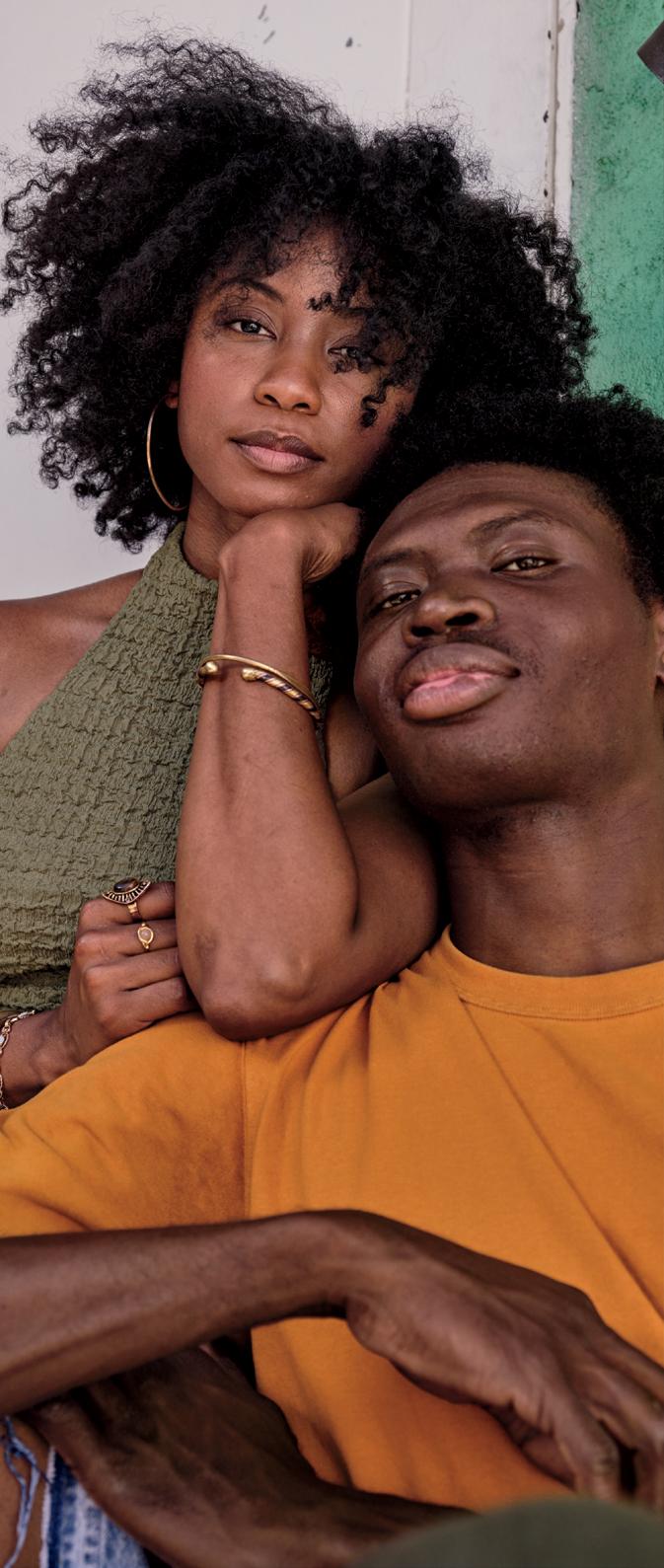
WE ARE ALL IN THIS TOGETHER.
Innovation is the backbone of transforming HIV care. We are committed to driving forward research in pursuit of a cure with more than 100 research partners and clinical trials. We are empowered as a community by the potential of today’s long-acting HIV treatment and prevention options. But medicine alone is not enough. It takes all of us to improve access to care and help to address the differentiated needs of those impacted by HIV in the effort to get closer to our common goal. We’re working together to end the HIV epidemic for everyone, everywhere.
Gilead is a proud sponsor of USCHA 2025.
The 2025 USCHA Conference planning team looks forward to making your participation in USCHA a comfortable and rewarding experience. If you have any questions, do not hesitate to contact the planning team in the Conference Operations Office, located in Marquis Salon 15.
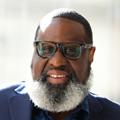
DANNY LINDEN
Director of Conferences
Danny is your contact for all conference-related information and has overall responsibility for the conference.
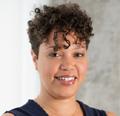
JOI HOWARD
Conferences Manager
Joi is your contact for the conference exhibit hall. Joi is a secondary contact for conference-related information and liaison to the hotel for food and beverage and sleeping rooms at the host hotel.
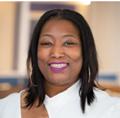
SHANTA’ GRAY
Conferences Associate Manager
Shanta is your contact for conference registration and scholarship concerns. Shanta will be stationed at the “On-Site Solutions” booth at the conference registration desk at the Liberty Ballroom Foyer. Shanta is also the contact for the conference exhibit hall. She can be reached at the Exhibitor Registration booth outside of the Independence and Liberty Ballrooms.
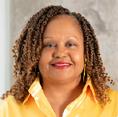
DIANE FERGUSON
Conferences Associate Manager
Diane is your contact for faculty, institutes, workshops, Posters, Affinity Session and App logistics. She will be in the Conference Operations Office, Marquis Salon 15.
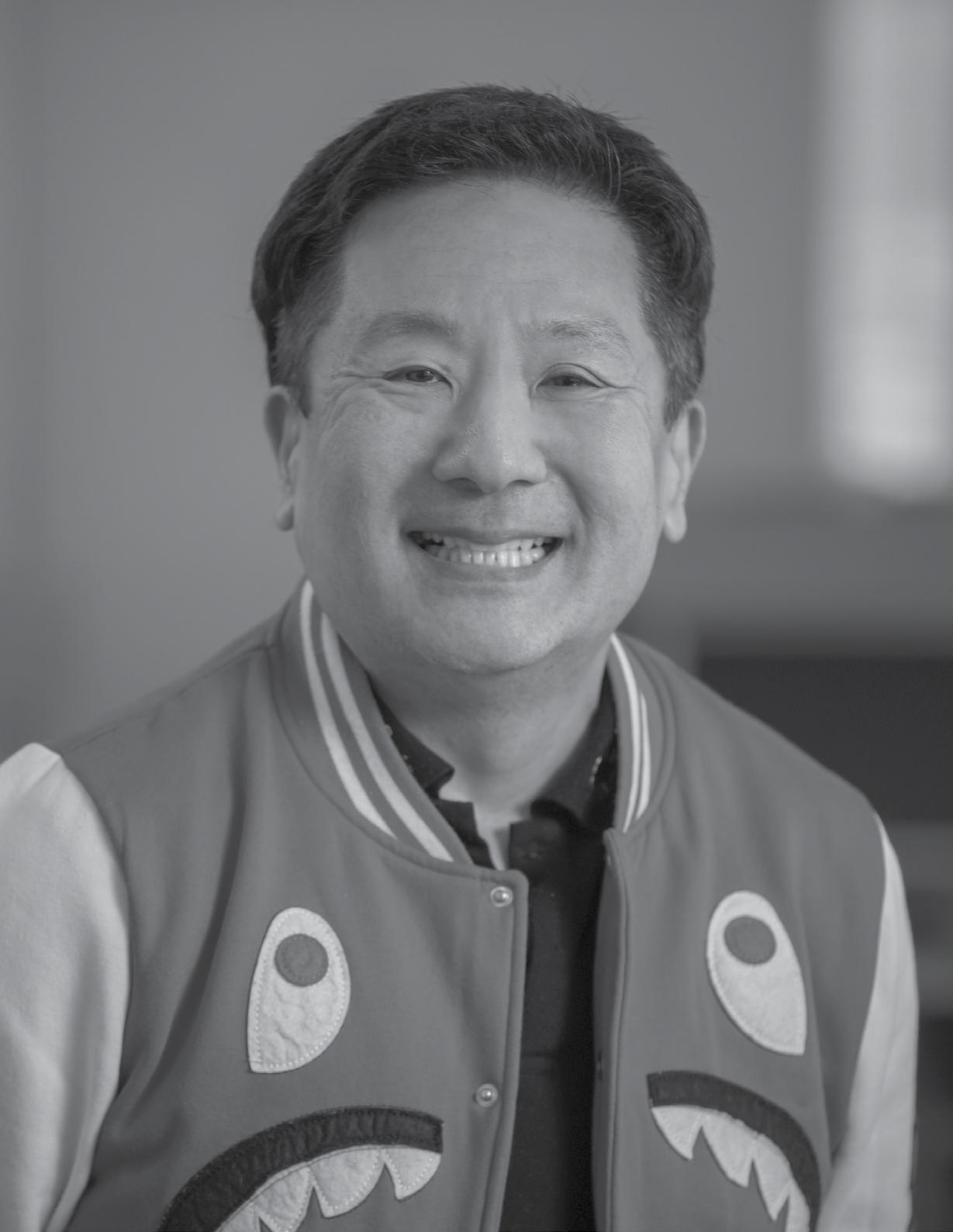
This 2025 USCHA program is dedicated to PAUL
Thank you, Paul, for 36 years of NMAC leadership — and for providing a voice, purpose and advocacy within communities of color affected by HIV/AIDS.
Dear Friends,
Welcome to the 2025 United States Conference on HIV/AIDS (USCHA). It is a profound honor to gather with you in Washington, DC—our nation’s capital and a city that has long been at the heart of advocacy, policy, and the fight for health equity.
This year’s theme, Aging with HIV, speaks to the resilience of our movement and the reality that, whether HIV positive or negative, we are all aging with HIV. Over 40 years into this epidemic, the virus has shaped our communities, our systems, and our lives. We honor the long-term survivors and life-time survivors who have carried us through the darkest days, and we recommit to ensuring that every person aging with HIV receives the care, respect, and support they deserve.
We also recognize the immense challenges facing public health today—shrinking resources, rising stigma, and a shifting political landscape that threatens the progress we’ve made. In this moment, resilience is not optional— it is essential. That’s why this year’s USCHA places a strong emphasis on skills building and workforce development. We are investing in the people who power this movement, equipping them with the tools, training, and strategies needed to meet today’s challenges and build tomorrow’s solutions.
This year also marks a historic transition for NMAC. After 38 years of extraordinary leadership, our Executive Director, Paul Kawata, is retiring. Paul has been a relentless advocate, a visionary leader, and a fierce protector of our communities. His legacy is one of transformation—of lives, of systems, and of hearts. We honor him with deep gratitude and commit to carrying his vision forward.
In this moment, resilience is not optional—it is essential.
USCHA would not be possible without the dedication and generosity of many. We extend our heartfelt thanks to our sponsors, exhibitors, host and program committees, and the incredible volunteers whose time and energy have brought this conference to life. And to the small but mighty NMAC team—thank you for your passion, your perseverance, and your unwavering commitment to justice and equity.
As we come together this week, let us be reminded: we are not alone. We are part of a powerful, intergenerational movement rooted in love, justice, and the unwavering belief that we can—and will—end the HIV epidemic.
Thank you for being here. Thank you for your work. And thank you for continuing this journey with us.
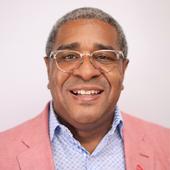
In solidarity, Harold J. Phillips, MRP On behalf of NMAC
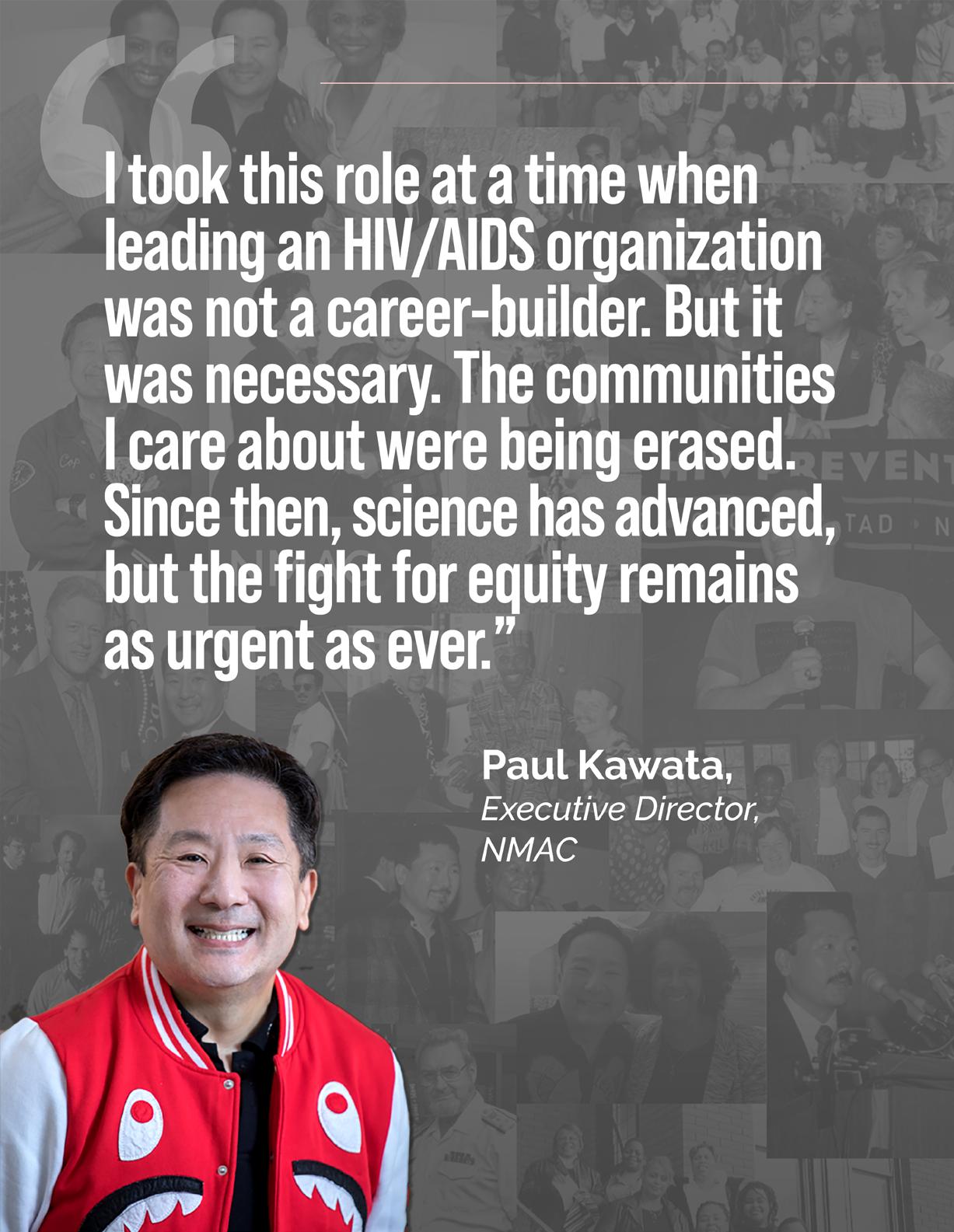
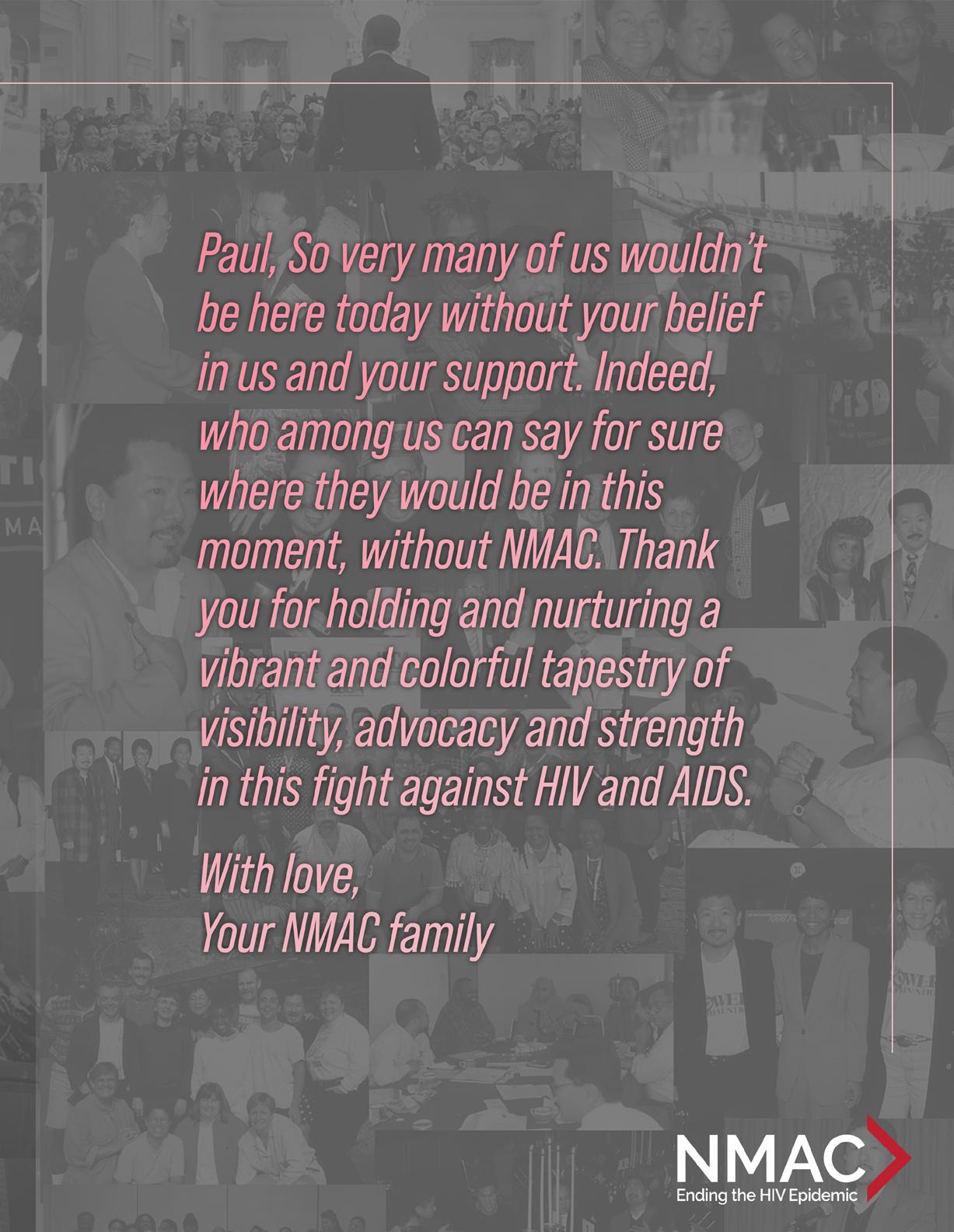
Registration Hours
All attendees must register for the conference. The registration desk is located in the Liberty Ballroom Foyer, Meeting Level 4 (M4) and is open during the following hours:
Wed ......... 2:00 PM - 6:00 PM
Thu .......... 7:30 AM - 5:00 PM
Fri 8:00 AM - 5:00 PM
Sat .......... 8:00 AM - 3:00 PM REGISTRATION OPENS 2:00 PM6:00 PM
Conference Operations Office
The Conference Operations Office is located Marquis Salon 15, Meeting Level 2. Feel free to stop by the office with conference-related questions and concerns during the following times:
Thu ......... 8:00 AM – 6:00 PM
Fri .......... 8:00 AM – 6:00 PM
Sat ......... 9:00 AM – 5:00 PM
Sun ........ 9:00 AM – 1:30 PM
Pre-Conferences
Healing, Hope, & Human Rights: Strengthening FaithBased Responses to HIV & Aging
8:00am – 5:00pm Mentoring the Managers (MtM) Workshop Event: Stepping into Leadership: Managing for Growth and Impact in HIV Prevention 8:00am - 5:00pm Organization Development & Management Meeting (Invitation Only) 8:00am - 5:00pm Catalyzing Collaboration: Preparing Aging Providers for the HIV Landscape 8:30am - 4:30pm
U.S. HIV Philanthropy Forum 9:00am – 4:30pm
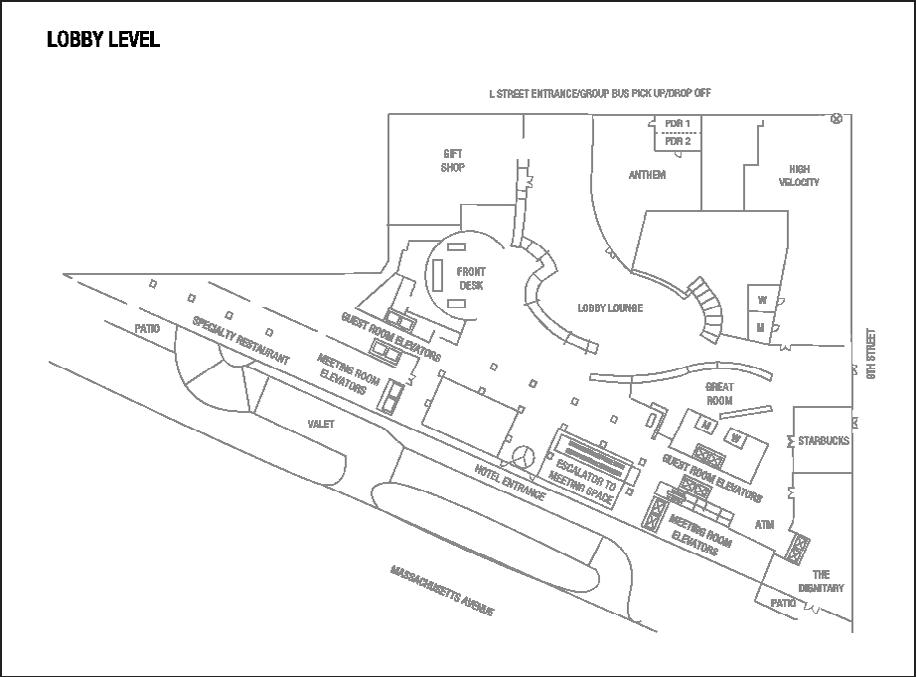
LOBBY LEVEL
MEETING LEVEL 1
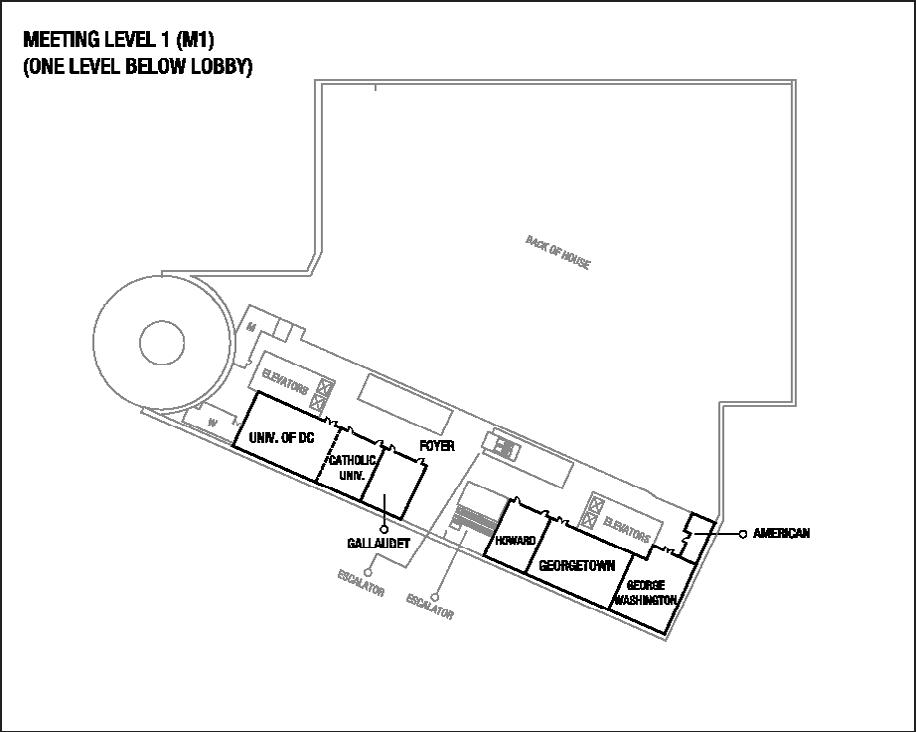
LEVEL TWO/
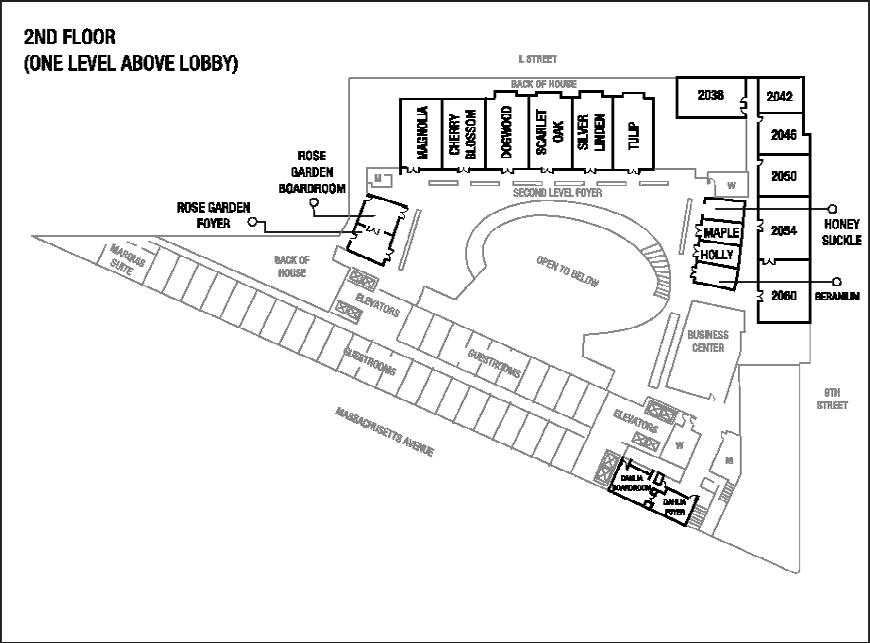
MEETING LEVEL 2
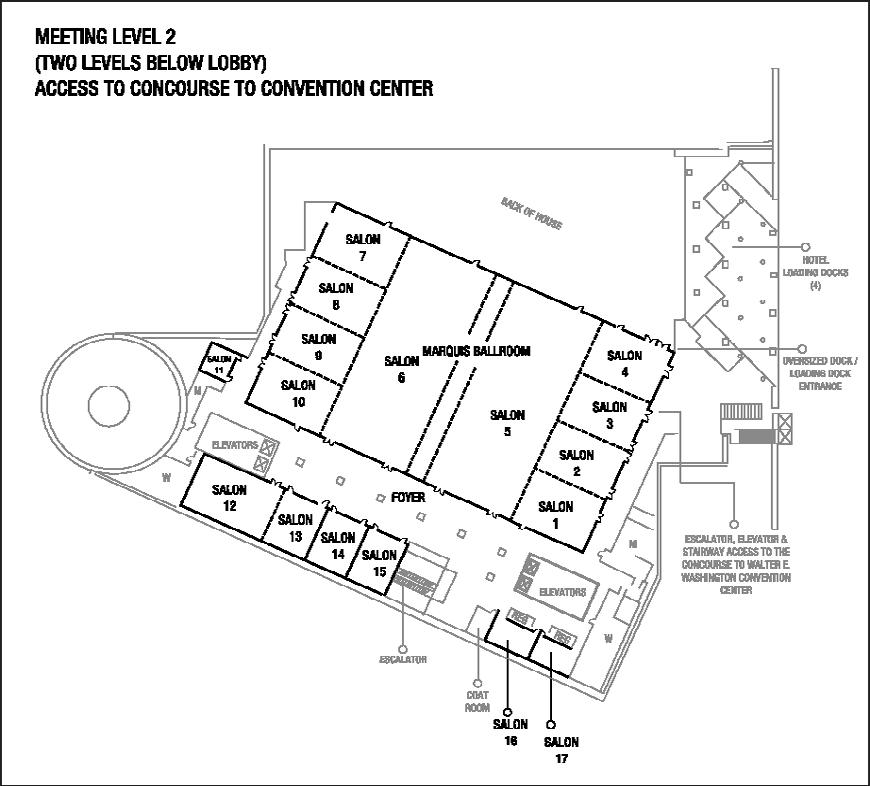
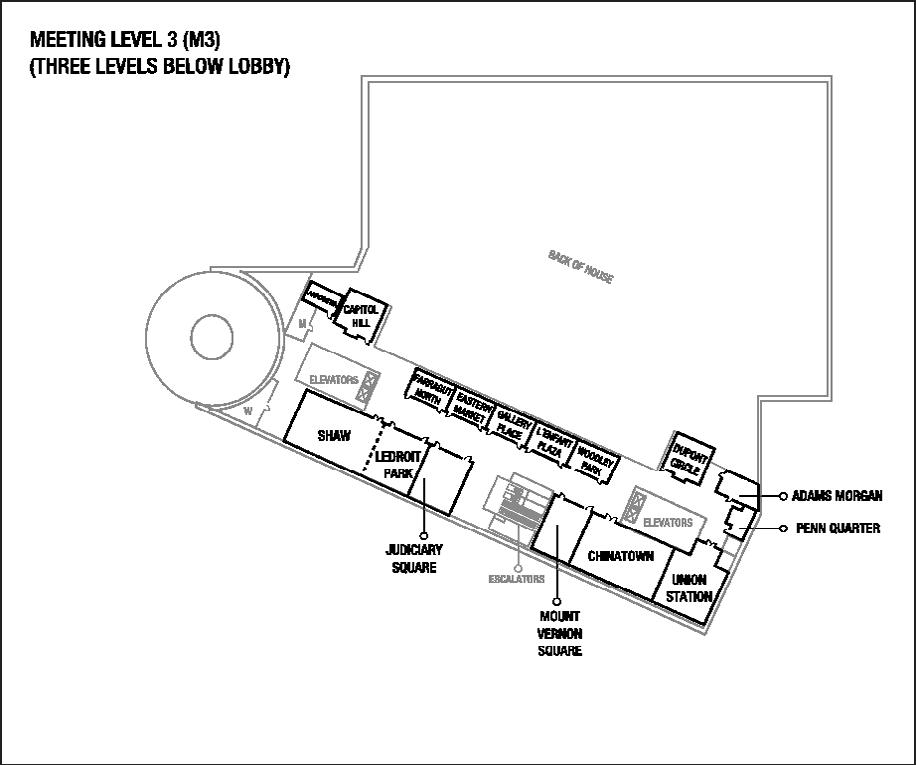
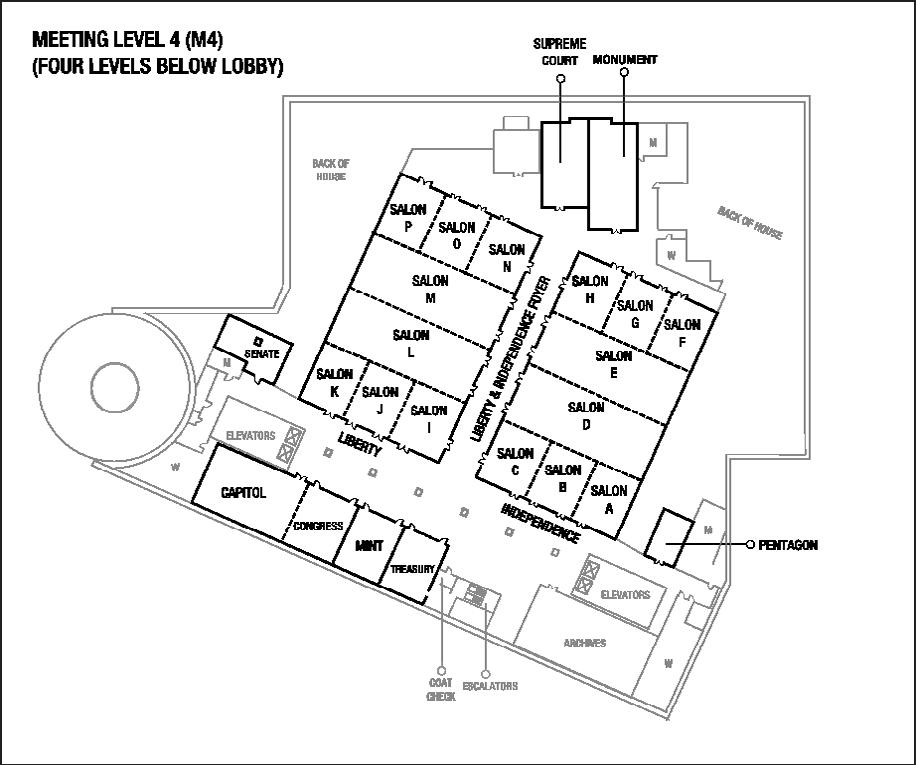
MEETING LEVEL 4
Paul Aguilar
Jeff Berry
Vincent Crisostomo
Porchia Dees
Alicia Diggs
Richard Adkins
Japer Bowles
Martha Cameron
Sean Coleman
Advisory Committee
Denise Drayton
Lillibeth Gonzalez
Mark G.Ing
Monica Johnson
Ronald Johnson
Alicia Downes
Joseph Stango
Aaron Austin
Deja Robinson
Scott Brawley
Carole Treston
Host Committee
Anthony Fox
James Gipson
Kenya Hutton
George Kerr III
Program Planning Committee
Cary Goodman
Dashiell Sears
Maya Hamilton
Lauren Banks
Russell Campbell
Marnina Miller
Chauncey McGlathery
Bridgette Picou
Aracelis Quiñones
Sheila Tumilty
Terri Wilder
Jenne Massey
Rodney McCoy
Valerie Rochester
SaVanna Wanzer
Michelle Scavnicky
Naomi Gaspard
Cedric Pulliam
Michael Elizabeth
Ronald Johnson
Venita Ray
A special thank you to our sponsors who have made significant contributions to the United States Conference on HIV/AIDS
PRESENTING SPONSOR

PREMIERE SPONSORS
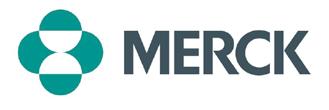
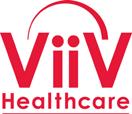
CONTRIBUTING SPONSOR
COLLEAGUE SPONSORS
SUPPORTER SPONSORS






MEDIA SPONSOR







Affinity Sessions are impromptu meetings of conference attendees who want to discuss a particular subject. To schedule an Affinity Session and receive a room assignment, visit the Conference Operations Office, located in Marquis Salon 15, Meeting Level 2. The Affinity Session schedule is as follows:
Thursday:........................ 6:15 p.m. – 7:15 p.m.
Friday: ............................ 6:30 p.m. – 7:30 p.m.
Saturday: ....................... 6:30 p.m. – 7:30 p.m.
USCHA is proudly offering Continuing Education Units (CEUs) for attendees seeking hours toward maintaining or attaining certifications.
• The National Commission for Health Education Credentialing, approved 20 entry-level continuing education contact hours (CECH) Community Health Education Specialist (CHES) credits.
• George Mason University is offering up to 20 General CEUs.
Reporting Security or Safety Incidents
The security and safety of our guests and associates is of utmost importance to us. If a health, safety, or security situation arises, which should be brought to our attention, we ask that you observe the following reporting protocol:
•If the situation is an emergency –call 911 and then call our security team at 202-824-9667
Badges
Badges
Conference attendees must wear their official conference badge to all educational sessions, plenary sessions, special events, and the exhibit hall. For your safety, do not wear your badge outside of the convention hotel. Security will not allow conference attendees to enter plenary sessions or the exhibit hall without a badge. A $10.00 fee will be assessed for replacement badges.
The Conference Operations Office is located Marquis Salon 15, Meeting Level 2. Feel free to stop by the office with conference-related questions and concerns during the following times:
Thursday:........................ 8:00 a.m. – 6:00 p.m.
Friday: ........................... 8:00 a.m. – 6:00 p.m.
Saturday: ....................... 9:00 a.m. – 5:00 p.m.
Sunday: 9:00 a.m. – 1:30 p.m.
Evaluations
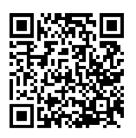
Your feedback provides important information to help us improve USCHA in the future. Please take a few minutes to share your thoughts and input by completing the conference evaluation forms found in the conference app. Or you can scan the QR codes below to access the Overall and Session Specific Evaluations. The QR codes can also be found in each Workshop room.
• National Board of Public Health Examiners is offering up to 20 General CEUs.
Use this QR code to fill out the Session Specific Survey in the USCHA conference App, to receive CEUs.
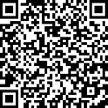
Exhibits
The Exhibit Hall is located in the Independence and Liberty Ballrooms on Meeting Level 4. USCHA conference partners, government agencies, community-based organizations, pharmaceutical companies, and many others will showcase their exhibits, providing valuable information and giveaways. Complimentary desserts will be offered in the exhibit hall on select days. The Exhibit Hall will be open during the following hours:
(closed during plenary sessions)
All attendees must register for the conference. The registration desk is located in the Liberty Ballroom Foyer, Meeting Level 4 (M4) and is open during the following hours:
Wednesday: .................. 2:00 p.m. – 6:00 p.m.
Thursday:........................ 7:30 a.m. – 5:00 p.m.
Friday: 8:00 a.m. – 5:00 p.m. Saturday: ....................... 8:00 a.m. – 3:00 p.m.
•If the matter is NOT an emergency, dial 0 from any hotel phone, ask to speak to the Security on Duty, and repor the matter accordingly.
Our security team is on duty 24 hours each day to assist you.
In non-emergency situations, the following is a list of nearby medical facilities:
Howard University Hospital 2041 Georgia Ave., NW Washington, DC 20060 202-865-6100
George Washington University Hospital 900 23rd St, NW Washington, DC 20037 202-715-2000
CVS Locations 1101 New York Ave., NW Washington, DC 1199 Vermont Ave., NW Washington, DC
Medical Service Information
The Legal Clinic
The Legal Clinic at USCHA will provide attendees with free, general legal guidance on issues impacting their advocacy and community work. Legal professionals will be available to offer support on civil rights, immigration, LGBTQ+ protections, and other key areas. While not a substitute for formal legal representation, this clinic will serve as a resource to help individuals and organizations navigate legal challenges and connect with further support as needed.
Location: Senate, Meeting Level 4
No-Smoking Policy
Hours: Sept 4-6
Sign Language Interpreters
Sign Language Interpreters
Sign language interpreters are available upon request. This service may be requested through the Conference Operations Office located in Marquis Salon 15, Meeting Level 2.
For the health and comfort of conference participants, smoking is not permitted in any of the conference areas. Thank you for your consideration and cooperation.
10:00am – 12:00pm 2:30pm – 5:30pm
NMAC’s Coalition for Justice and Equality Across Movements is bringing the Mental Health Clinic to USCHA! The conference can be overwhelming, and sometimes, you just need somebody to talk to. We’re bringing experienced mental health professionals Hakim Asadi and Caprice Carthans to USCHA to be listening ears.
Location: Howard, Meeting Level 1
Hours: Sept 4-6
10:00am – 12:00pm 2:30pm – 5:30pm
Safety Guidance
Following a presidential order, federal law enforcement agencies and the National Guard have increased their presence in Washington, D.C. This means that DC Police are operating under federal authority, and there is a visible presence of law enforcement officers and federal agents across the city. While the Mariott Marquis and other hotels are private properties, we want our community to be informed and alert, not fearful, while they are in the city.
The NMAC team is closely monitoring and rapidly
gathering information as the situation evolves. You can view and download our comprehensive and bilingual safety guidance for USCHA participants. Your safety and wellbeing are our priority.
For the latest information and updates, please check NMAC’s USCHA Program App. The official USCHA app will be available for download starting August 20. It will be continuously updated and is the best source for real-time information, session locations, and alerts. Search “2025USCHA” in the Apple App Store or Google Play Store.

USCHA is dedicated to a safe, productive, and welcoming environment free from discrimination and harassment. As the convener of USCHA, NMAC expects all conference participants (including attendees, event staff, NMAC/ USCHA staff, presenters, vendors, guests, contractors, and exhibitors) to treat other participants with respect. NMAC does not tolerate harassment of conference participants in any form. “Harassment” includes, but is not limited to:
• Verbal and/or written comments, jokes, or imagery that reinforce negative stereotypes related to gender, gender identity and expression, sexual orientation, disability, physical appearance, body size, race, age, national origin, citizenship, marital status, religion, or sex and any other stats protected under applicable federal, state or local law;
• Inappropriate and unwelcome physical contact;
• Unwelcome sexual attention, including persistent romantic invitations even after such invitations have been declined; and
• Advocating for or encouraging any of the above behavior.
If you are being harassed or have witnessed harassment and would like to make a report, please contact NMAC’s Director of Conferences Danny Linden at 202-302-7515 or send an email to dlinden@nmac.org. If you wish to report a case of harassment confidentially, send an email to conferences@nmac. org. You can also go directly to the Conference Operations Office located in Marquis Salon 15. Counselors are available on-site and on-call. If you have been a victim of assault or believe yourself to be in danger, seek help
immediately by calling 911 or contacting hotel or conference security.
NMAC will investigate allegations of harassment immediately during the conference. Based on the findings of the investigation, the harasser will be issued a warning and/or removed from the conference.
USCHA receives federal financial assistance from HHS. As a result, the HHS has its own mechanism for reporting harassment. If you believe that you have been discriminated against because of your race, color, national origin, disability, age, sex, or religion in programs or activities that HHS directly operates or to which HHS provides federal financial assistance, you may file a complaint with the Office for Civil Rights (OCR). You may file a complaint for yourself or for someone else via this link – HHS Office for Civil Rights (OCR). Filing a complaint with NMAC/USCHA is not required before filing a complaint of discrimination with HHS OCR. Attendees are allowed to report instances of harassment to both HHS OCR as well as NMAC.
Attendees may also report instances of harassment to NIH directly via email (GranteeHarassment@od.nih.gov), phone (301-480-6701) or on-line portal
A report of harassment may result in a warning, removal from or denial of access to NMAC-sponsored meetings and events, and exclusion from future NMAC sponsored meetings or events on a temporary or permanent basis. If a participant is asked to leave the meeting because of a report received under this policy, the participant will not receive a refund.
Plenary sessions are formal, motivational presentations on a specific topic held in the host ballroom and usually feature a guest speaker(s) and breakfast or lunch.
Workshops Institutes
Institutes are 3-hour sessions offering in-depth exploration and discussion of current HIV-related issues and special populations scheduled on Thursday, September 4, 8:00 am – 11:00 am and Friday, September 5, 8:00 am – 11:00 am.
Workshops are in-depth, two hour presentations on topics directly relevant to one or more of the conference tracks.
Poster presentations are placardtype exhibits, which are often accompanied by handouts and/or other material relevant to one of the tracks. Posters are a great vehicle for abstracts that are data-driven and those that are displaying the results of a study. Posters will be displayed on the 2nd Floor, Mezzanine Level.
This year, USCHA will have 10 Pathways. NMAC is grateful to the lead agencies who curated the workshops. As experts in the field, they developed cutting edge sessions that engage USCHA participants.
Track 1: Advancing Research and Treatment for Older Adults
As the population of people living with HIV ages, research and treatment must adapt to address their evolving needs. While advances in antiretroviral therapy (ART) have extended life expectancy, aging with HIV presents distinct challenges, including chronic inflammation, accelerated aging, multiple comorbidities, HIV multidrug resistance (MDR), and increased risks of drug interactions and side effects.
Track 2: Aging with HIV- Political Determinants of Health
Political determinants such as funding priorities, policy enforcement, and legislative barriers can exacerbate disparities, while targeted policy interventions can drive meaningful change. This track examines how policies shape the health and well-being of adults 50+ living with or affected by HIV, highlighting the systemic factors that influence access to care, economic stability, housing, and social support.
Track 3: Behavioral Health and Aging with HIV
Older adults living with HIV face unique challenges due to the virus and disease progression. These obstacles are exacerbated by stigma, social isolation, increased risk of mental health conditions, neurocognitive disorders, and the effects of long-term HIV treatment. This track covers key issues, including best practices for screening, treating and accessing mental health services to address neurocognitive conditions, mental health disorders, depression, anxiety, addiction, and community-based support.
Track 4: Biomedical HIV Prevention
Biomedical HIV prevention has expanded options to stop the spread of the virus. While the conference focuses on aging with HIV, this track will focus on PrEP (Pre-Exposure Prophylaxis), PEP (Post Exposure Prophylaxis), Treatment as Prevention (TasP), U=U and START (Strategic Timing of Antiretroviral Treatment) allowing conference attendees to learn more about new HIV prevention methodologies, approaches and research.
Track 5: Community Building
Community building plays a critical role in improving health outcomes, reducing isolation, and ensuring that aging individuals with HIV receive the support they need. Community-driven initiatives can empower people with HIV to help combat stigma, promote mental and physical well-being, and advocate for policies that address the unique challenges of aging with HIV. This track covers essential community-building issues, including dual stigma, aging-specific HIV programs, peer support networks, long-term survivors’ storytelling, long-time companions, community spaces, and engagement. Strong community networks and leadership are essential for improving the quality of life of older adults with HIV.
6:
The focus of care has shifted from managing HIV as a life-threatening disease to addressing the complex health issues that come with aging. Older adults with HIV face a higher burden of comorbidities, often
developing age-related conditions earlier and more severely than their HIV-negative peers. This shift underscores the need for integrated, multidisciplinary healthcare approaches that address both HIV management and aging-related health concerns. This track aims to address cardiovascular disease (CVD) and metabolic disorders, HAND and dementia, osteoporosis and bone health, kidney and liver disease, cancers, multiple chronic conditions, and secondary prevention.
The intersection of aging and HIV highlights a unique and often overlooked population: individuals who were born with HIV and are now aging into adulthood and beyond. Advances in antiretroviral therapy (ART) have allowed many individuals born with HIV to live well into their 30s, 40s, and beyond, presenting new challenges in healthcare, mental health, and social support systems.
Track 8: The Science of Sexuality and Pleasure
A fulfilling sex life with HIV matters. A focus on pleasure may not only guard against negative outcomes, but it may also contribute to positive outcomes across multiple dimensions of health. For the last four decades, sex has traditionally been a balancing act, mixing pleasure with risk of HIV and other STIs. However, biomedical medical treatment has changed things. This track focuses on sexual health and wellness.
Achieving sustainable health for people aging with HIV requires systemic transformation that is patient-centered and a well-equipped workforce capable of addressing evolving needs. This track explores strategies for systems change, including patient-centered approaches, policy reforms, program integration and innovation, cross-sector collaboration, and capacity-building efforts that enhance service delivery for older adults living with HIV. Workforce development is critical to ensuring providers are trained in age-inclusive, culturally responsive, and trauma-responsive care.
For women aging with HIV, there is a major gap in the understanding of how HIV will affect their lives, and approaches to optimal care are not clear. Comorbidities (infectious and non-infectious) related to HIV or aging are not a unique concern for older women, but the approach to care and the understanding of the disease process may be influenced by sex/gender and race/ethnicity and thus there are some unique care and treatment needs that should be considered as women with HIV age. The care of older women with HIV must integrate biomedical, behavioral, and social science interventions. Our challenge is navigating a fragmented system or creating a model of care with a tailored approach for older HIV-positive women to move between a primary care provider, a gynecologist, and several specialists (HIV/infectious disease, cardiologist, neurologist, nephrologist, and endocrinologist, to name a few) for their medical needs.

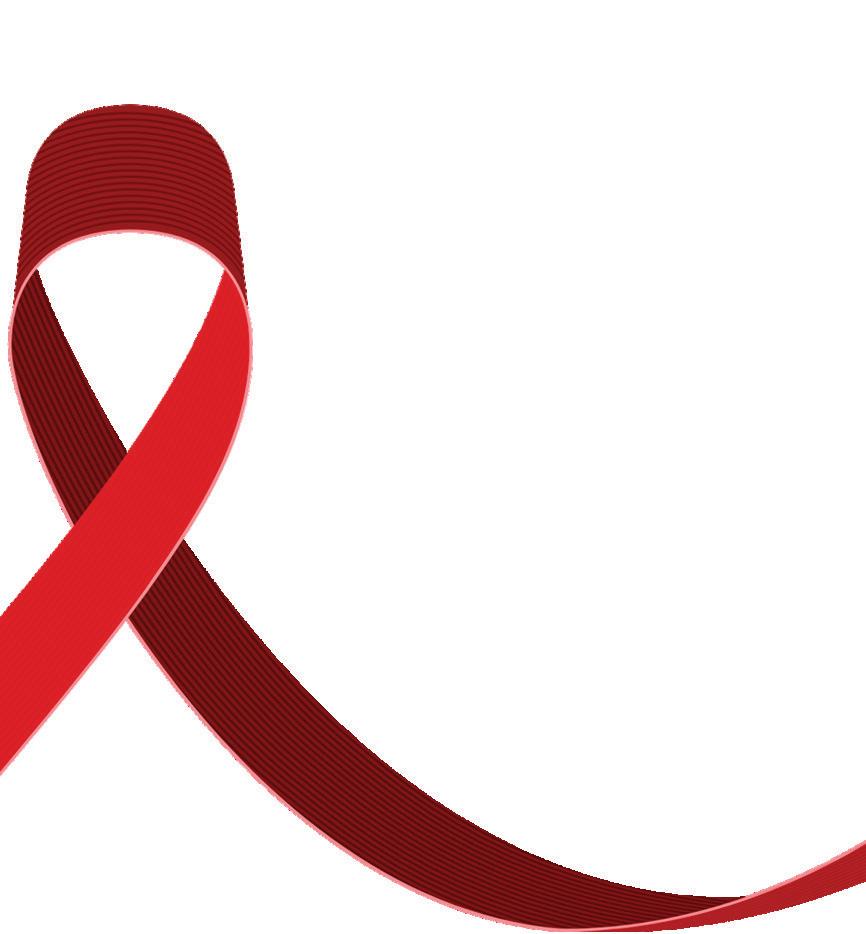
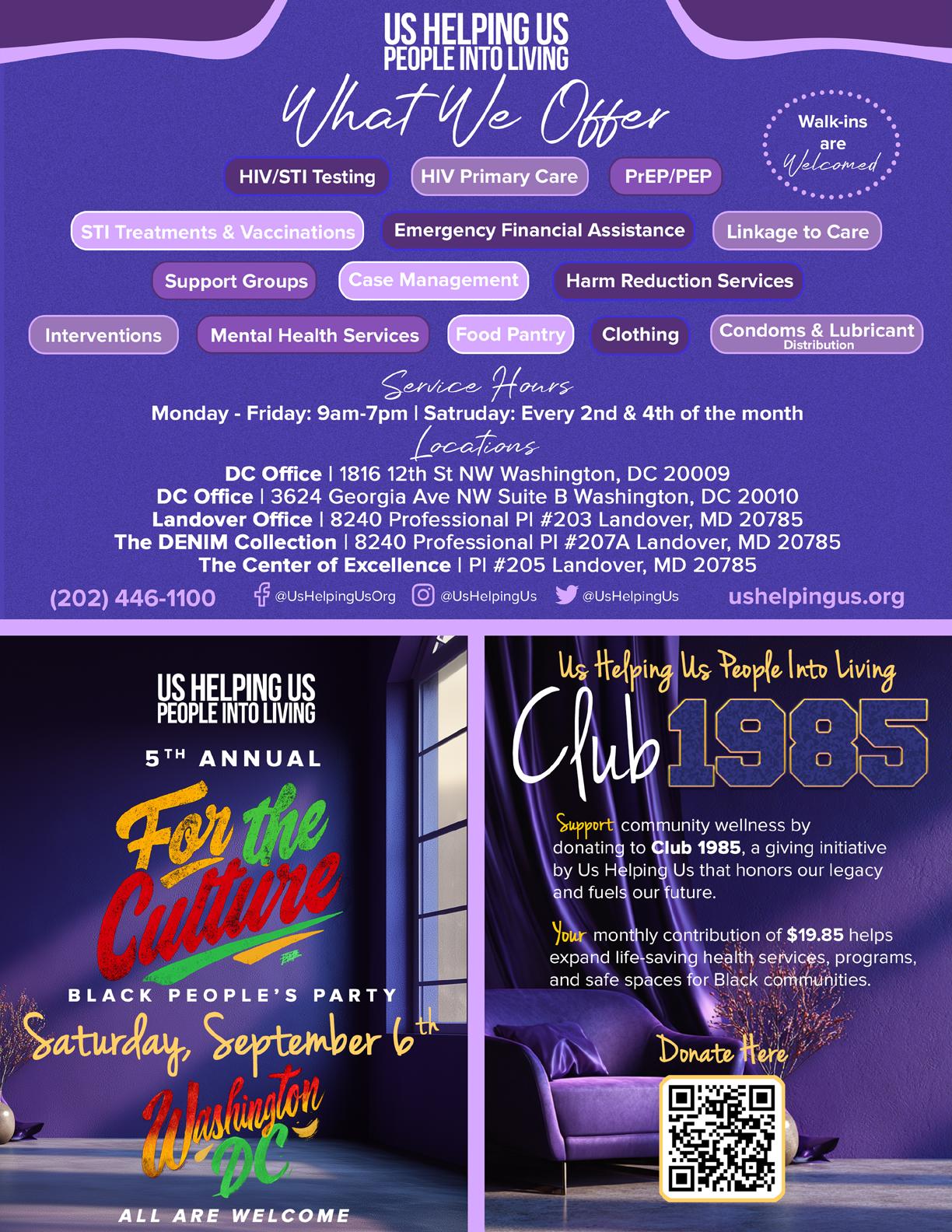
A film viewing and panel discussion
Saturday, September 6, 6:00pm
Marriott Ballroom
Jörg Fockele, Producer/Director Moisés Agosto-Rosario MPH, Panel Moderator
Surviving Voices: HIV Lifetime & LongTerm Survivors captures the journeys of individuals living with HIV/AIDS in raw, honest, and forthright conversations. The filmed conversations highlight not only the vulnerabilities, shame, denial, stigma, and hopelessness they have experienced, but also tell of their individual strength, power, hope and resilience. They emphasize the importance of community, spirit, self-respect, and the will to live with dignity and pride. Several long-term survivors who appear in the documentary will participate in a post-viewing discussion. Featuring
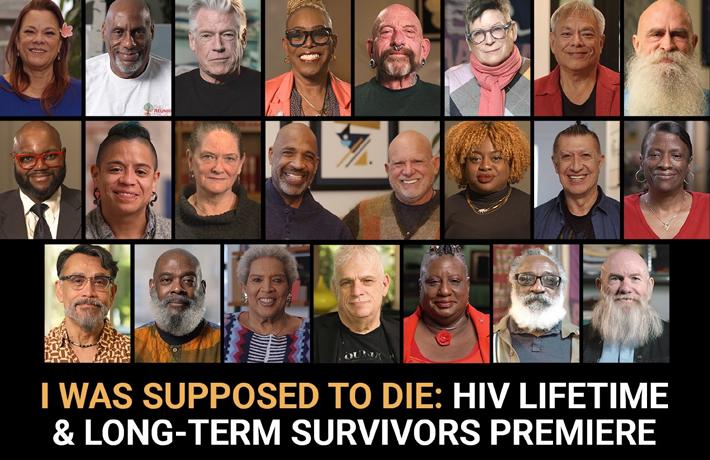
Saturday, September 6, 8:00pm - Midnight
Marriott Ballroom
DJ Jeff Berry
“During the darkest days of the AIDS crisis, we buried our friends in the morning, we protested in the afternoon, and we danced all night. The dance kept us in the fight because it was the dance that we were fighting for. It didn’t look like we were going to win then, and we did. It doesn’t feel like we’re going to win now, but we could. - Keep fighting, keep dancing.” - Dan Savage

DJ Jeff Berry is first and foremost, a lover of dance music and tonight we all will dance! We should also mention that Jeff is the executive director and co-founder of The Reunion Project, the alliance of long-term HIV survivors. An advocate, writer, and speaker for over 30 years, he amplifies the voices of people living with HIV through leadership, media, and international advisory roles. Jeff’s work has appeared in The Advocate, TheBody.com, and an Emmynominated docuseries. Before his advocacy career, Berry was a fixture in Chicago’s gay club scene and was named Gay Chicago’s DJ of the Year in 1990. Jeff currently serves on the 2025 USCHA

HIV Advisory Committee and lives in Chicago with his husband and their two furry companions.


Executive Office
Paul Kawata, Executive Director
Tara Barnes, Deputy Director of Operations
Harold Phillips, Director of Programs
Laura Davidson, Operations Manager
Conferences
Danny Linden, Director of Conferences
Joi Howard, Conferences Manager
Shanta Gray, Conferences Associate Manager
Diane Ferguson, Conference Associate Manager
Communications
Pavni Guharoy, Director of Communications
Taelor Clay, Communications Manager
Treatment
Moisés Agosto-Rosario, Director of Treatment
Damián Cabrera-Candelaria, Program Manager
Audrianna (Dri) Marzette, M.S., Associate Manager
Development
Jennifer Bledsoe, Director of Development
Laura “Mitch” Mitchell, Development Manager
Raven Tucker, Development Coordinator
Strategic Partnerships and Policy
Joe Huang-Racalto, Director
Zack Miller, Manager
Chair
Lance Toma, San Francisco Community Health Center, San Francisco, CA
Board Members
Brenda Hunt
Borderbelt AIDS Resource Team (BART) Lumberton, NC
Monica Johnson
HEROES - Helping Everyone Receive Ongoing Effective Support Columbia, LA
Kelsey Louie, MSW, MBA
The Door – A Center of Alternatives New York, NY
Secretary
Therese Rodriguez, APICHA Community Health Center, New York, NY
NMAC Training Center to End the Epidemic
Sean Smith, Director
Duante’ Brown, Manager
Marshun Redmond, Associate Manager
Christopher Paisano, Partnerships & Stakeholder
Engagement Coordinator
Rishard Butts, Training and Capacity Building Coordinator
Coalition for Justice and Equality Across Movements
Toni Newman, Director
JP Hernández Esq., MBA, Senior National Manager
Destiny Pearson, Associate Manager
Cora Trelles Cartagena, Program Manager
Erin McNeil, B.S., Program Coordinator
Treasurer
Norm Nickens San Francisco, CA
Leonardo Ramon Ortega, MD, MPH Shalom Health Care Center, Inc. Indianapolis, IN
Mario Perez
County of Los Angeles Department of Public Health Office of AIDS Programs & Policy Los Angeles, CA
Rev. Ed Sanders
Metropolitan Interdenominational Church Nashville, TN
Evelyn Ullah
Unique Solutions Broward County, FL
Rodolfo R. Vega
JSI Research & Training Institute, Inc. Boston, MA
Valerie Rochester, The Women’s Collective Washington, DC The AIDS Institute
Fred Hutchinson Cancer Center
International Association of Providers in AIDS Care
National HIV/AIDS Housing Coalition The Collective American Academy of HIV Medicine
Positive Women’s Network - USA
8:00 am5:00 pm
2:00 pm6:00 pm
8:00am – 4:00pm
Building on Progress: The PrEP Systems Change Collaborative
Location: Judiciary Square, Meeting Level 3 (M3)
8:00am – 5:00pm
“Healing, Hope, & Human Rights: Strengthening Faith-Based Responses to HIV & Aging
Location: Tulip, 2nd Floor Level, Mezzanine Foyer
8:00am - 5:00pm
Mentoring the Managers (MtM) Workshop Event: Stepping into Leadership: Managing for Growth and Impact in HIV Prevention
Location: Union Station, Meeting Level 3 (M3)
8:00am - 5:00pm
Organization Development & Management Meeting (Invitation Only)
Location: Gallaudet, Meeting Level 1 (M1)
8:30am – 4:30pm
Catalyzing Collaboration: Preparing Aging Providers for the HIV Landscape
Location: Courtyard Marriott, Shaw A USCHA Pre-Conferences
REGISTRATION OPEN
Location: Liberty Ballroom Foyer, Meeting Level 4 (M4)


MISTR is proud to partner with NMAC and support their continued fight for a world free of HIV/AIDS! As the largest telemedicine provider of free online PrEP, DoxyPEP, STI testing and long-term HIV care in all 50 states, D.C. and Puerto Rico, we share the values of NMAC and all it represents. Gay owned and operated, MISTR has brought together a network of the best doctors, pharmacists and problem solvers to make PrEP, DoxyPEP and HIV care available to all who need it – 100% free. No doctor’s office, no paperwork and free delivery.



7:00 am -
7:45 am AM PRAISE
Location: Honeysuckle, 2nd Floor, Mezzanine Foyer
7:30 am5:00 pm
8:00 am11:00 am
REGISTRATION OPEN
Location: Liberty Ballroom Foyer, Meeting Level 4 (M4)
Yea, Though I Walk: Stories of Healing, Hope, and Holy Joy
Location: Magnolia, 2nd Floor Level, Mezzanine Foyer
AARP Insights: Unified Approaches to HIV, Aging, and Caregiving Needs
Location: University of DC, Meeting Level 1 (M1)
Living, Thriving, and Demanding Better: Aging with HIV in a Shifting Political Climate
Location: Georgetown, Meeting Level 1 (M1)
In Every Stage: Advancing Health Equity for Aging
Trans Men Living with HIV
Location: George Washington, Meeting Level 1 (M1)
Curing Hepatitis C: National Strategy and Federal Leadership in Action
Location: Tulip, 2nd Floor, Mezzanine Foyer
More Than One Truth: A Gender Justice Call to Action
Location: Congress, Meeting Level 4 (M4)
Aging with HIV: Chronic Conditions Across the Life Cycle
Location: Dogwood, 2nd Floor Level, Mezzanine Foyer
10:00 am5:00 pm EXHIBIT HALL OPEN (Closed during plenary session)
Location: Independence and Liberty Ballrooms, Meeting Level 4 (M4)
Becoming a Housing Advocate
Location: Silver Linden, 2nd Floor Level, Mezzanine Foyer
Our Voices, Our Stories: Indigenous Storytelling as Healing and Resistance
Location: Scarlet Oak, 2nd Floor Level, Mezzanine Foyer
HIV Prevention’s Past, Present & Future: A Legacy in Motion
Location: Mount Vernon Square, Meeting Level 3 (M3)
Got to Get Up Early in the Morning: Funding the Gap in Service Delivery for Black Organizations
Location: Treasury, Meeting Level 4 (M4)
HIV and the Law: How Aging Laws Harm People Living with HIV
Location: Union Station: Meeting Level 3 (M3)
Talking Death: A Trauma-Informed Approach to Facing Our Mortality
Location: Cherry Blossom, 2nd Floor Level, Mezzanine Foyer
IAS 2025, the 13th International AIDS Society Conference on HIV Science. A Treatment and Research Institute
Location: Mint, Meeting Level 4 (M4)
11:30 am1:30 pm
Beyond Belief, Presented by ViiV
Location: Marquis Ballroom, Meeting Level 2 (M2)
1:45 pm3:45 pm
Session 1 Workshops
It Takes a Village: A Community in Action
Location: Archives, Meeting Level 4 (M4)
Breaking Barriers: Community-Based Care for TGNC
Mental Health
Location: Marquis Salon 12, Meeting Level 2 (M2)
Aging with HIV and Your Pharmacist: More Years, More Medications
Location: Chinatown, Meeting Level 3 (M3)
Using Faith a Spiritual Catalyst for Women Aging with HIV
Location: Magnolia, 2nd Floor Level, Mezzanine Foyer
Unlocking the Potential of Long-Acting Injectable Therapies
Location: Scarlet Oak, 2nd Floor Level, Mezzanine Foyer
Leveraging Digital Health to Close Gaps in HIV Prevention
Location: Georgetown, Meeting Level 1 (M1)
Forever Undetectable: Harnessing U = U for Older Adults
Location: University of DC, Meeting Level 1 (M1)
Where Did All of the Children Go?
Location: Silver Linden, 2nd Floor, Mezzanine Foyer
Unlearning Survival: Mental Health and the Burdened Woman
Location: Shaw, Meeting Level 3 (M3)
The Guys Like Us Project/ Doing the Mattress Dance
Location: Treasury, Meeting Level 4 (M4)
Exploring Reproductive Aging in Women Living with HIV
Location: Congress, Meeting Level 4 (M4)
HIV Wellness and the Impact of Ageism and Racism in Latino Immigrant Communities Location: Mount Vernon Square, Meeting Level 3 (M3)
Resilience: Parenting an HIV-Positive Child During the Perinatal Epidemic-series
Location: Union Station, Meeting Level 3 (M3)
Straight Talk: Hearing Health and HIV Mint, Meeting Level 4 (M4)
Power, Prevention & Connection: The HIV 50+ Education Experience
Location: Cherry Blossom, 2nd Floor Level, Mezzanine Foyer
HIV and Medicare: What You Need to Know Dogwood, 2nd Floor, Mezzanine Foyer
Developing National Online Health Promotion Platforms for People age 50+ Living with HIV in the U.S.
Location: George Washington, Meeting Level 1 (M1)
4:00 pm6:00 pm
Session 2 Workshops
Bridging Generations: Intergenerational Policy
Advocacy for Adults Living with HIV
Location: Congress, Meeting Level 4 (M4)
Rooted in Resistance: 30 Years of Healing and Syndemic Solutions
Location: Marquis Salon 12, Meeting Level 2 (M2)
Trans Matriarchs in Community: Implications for Troubling Times
Location: Chinatown, Meeting Level 3 (M3)
From Silence to Strength: Latinas and Black Women with HIV
Location: George Washington, Meeting Level 1 (M1)
Building Clinic Partnerships to Support People Aging with HIV
Location: Treasury, Meeting Level 4 (M4)
Mental Health, Memory, and Medical Trauma: Healing for Lifetime Survivors
Location: University of DC, Meeting Level 1 (M1)
Coalitions as Tools for Policy Change and HIV/Aging Justice
Location: Mint, Meeting Level 4 (4)
”Weathering” the Standards of Care
Location: Union Station, Meeting Level 3 (M3)
6:30 pm8:30 pm 6:15 pm7:15 pm
AFFINITY SESSIONS
2025 USCHA WELCOME RECEPTION
Location: Marquis Ballroom, Meeting Level 2 (M2)
What Healthy Aging Looks Like: A Housing Model of Care
Location: Archives, Meeting Level 4 (M4)
Viral Load Monitoring Technologies: NIH Updates & Community Insights
Location: Cherry Blossom, 2nd Floor, Mezzanine Foyer
Grief is More Than Death and Dying: Navigating NonDeath Losses
Location: Shaw, Meeting Level 3 (M3)
Trans for Trans Love: Navigating Pleasure, Status & Identity
Location: Silver Linden, 2nd Floor Level, Mezzanine Foyer
Breaking the Silence: Healing Through Disclosure and Empowerment
Location: Magnolia, 2nd Floor, Mezzanine Foyer
Sacred Transitions: Compassion and the Journey of End-of-Life Care
Location: Dogwood, 2nd Floor, Mezzanine Foyer
Linkage to Care Through Harm Reduction: Community-Led Solutions
Location: Mount Vernon Square, Meeting Level 3 (M3)
All times Eastern Standard Time (eST). See app for full Institute and Workshop descriptions and up-to-date information.
7:00 am - 7:30 am
AM Praise
AM Praise
Location: HoneysuckLe, 2nd FLoor, mezzanine Foyer
7:30 am - 5:00 pm
Registration
Registration Open
Location: Liberty baLLroom Foyer, meeting LeveL 4 (m4)
8:00 AM – 11:00 AM
Session 1 Institutes
Yea, Though I Walk: Stories of Healing, Hope, and Holy Joy
Location: MagnoLia, 2nd FLoor LeveL/Mezzanine Foyer
Presenter:
cary goodMan, the BaLM in giLead, inc., richMond, va
This institute session invites participants into a sacred space of faith, resilience, and the convergence of lived experiences. Through the voices of faith leaders, people living with HIV, and community advocates, this institute explores the transformative power of spiritual care and storytelling in the ongoing journey with HIV. In a world still shaped by stigma and silence, this session centers healing narratives that illuminate the sacred possibilities of joy, justice, and wholeness. Grounded in scripture and radical love, this session will challenge participants to reimagine the role of faith communities in HIV advocacy, care and liberation through interactive vignettes that will add context and value to the discussion
Location: university oF dc, meeting LeveL 1 (m1)
Presenters:
seLena caLdera, aarP, WasHington dc
cassandra burton, aarP, atLanta, ga
JadaWn WrigHt-morgan, training & HeaLtH equity coLLaborative, san Francisco, ca
Jb deL rosario, training & HeaLtH equity coLLaborative, san Francisco, ca
This interactive institute session is a collaboration between AARP and
the Training & Health Equity Collaborative. Together, we will explore the intersection of aging, HIV services, and caregiver support through a collaborative, systems-level lens. The session will begin with foundational knowledge on the social determinants of aging, setting the stage for understanding how health systems can respond more holistically to the needs of older adults living with HIV and their support networks. AARP will present key findings from its Dignity and Caregiver studies, highlighting actionable opportunities for integrating caregivers into health systems and strengthening the workforce that supports aging populations. Participants will engage in facilitated discussions, role play scenarios, and a dynamic panel conversation focused on innovative strategies for caregiver inclusion and cross-sector collaboration. This institute offers practical insights and tools for advancing access, quality, and dignity in care.
Location: georgetown, Meeting LeveL 1 (M1)
Presenters:
KiM Moon, riBBon, atLanta, ga
heLen ziMBa, ashe, daLLas, tX
As the U.S. grapples with an increasingly hostile political climate, people living with HIV (PLHIV)—particularly long-term and lifetime survivors and those aging with HIV—face compounding threats to their health, safety, and dignity. From shrinking safety net programs and health policy rollbacks to increasing stigma and neglect of elder care needs, aging PLHIV are often left out of the national conversation.
This interactive 3-hour pre-institute workshop hosted by the U.S. People Living with HIV (USPLHIV) Caucus will center the voices and experiences of
older PLHIV across race, gender identity, and lived experience—including long-term and lifetime survivors, women, trans individuals, pand those from Afro-Latinx and African immigrant communities. Through two dynamic panels and community dialogue, participants will explore the impact of the current political landscape and engage in collective visioning for what holistic support and improved quality of life for aging PLHIV should look like.
The session includes the screening of the Caucus’ We Demand Better video, small group discussions, and real-time strategy harvesting from attendees to inform future policy, program, and advocacy priorities. The workshop will close with a community affirmation and a call to action rooted in solidarity and liberation.
Location: george WasHington, meeting LeveL 1 (m1)
Presenters:
dr eLiJaH nicHoLas, gteP
Jay austin, rise (reaFFirming individuaLs suPPorting education) aLLiance Lsac (LaW scHooL admissions counciL)
teo drake, transForming Hearts coLLective
Trans men living with HIV represent a critically underserved and understudied population within both HIV and aging research. As HIVpositive individuals age, they face new health challenges including comorbidities, stigma, and reduced access to comprehensive care. For trans men, these are further complicated by limited visibility, underdiagnosis, and systemic transphobia in health settings. This proposal outlines a multifaceted initiative to explore the lived experiences, healthcare needs, and resilience of trans men aged 50 and older who are living with HIV, with the aim of developing responsive interventions and policy strategies.
Location: tuLiP, 2nd FLoor, mezzanine Foyer
Presenters:
naomi gasPard, mPH, tHe aids institute, md zakiya grubbs, mPH, nastad, sc
Please join The AIDS Institute and NASTAD for a comprehensive workshop to advance efforts in eliminating hepatitis B and C in the United States. The workshop will explore key components of the National Hepatitis Elimination Strategy, emphasizing prevention, testing, treatment, and collaboration with HIV prevention and care, and harm reduction programs. We will also focus on the Cure Hepatitis C Act of 2025: a legislative initiative aimed at expanding access to curative HCV treatments. Additionally, participants will gain insights into the US Department of Veterans’ Affairs’ groundbreaking Hepatitis C Elimination Initiative, which has successfully treated over 90% of eligible veterans with chronic hepatitis C. Join us in accelerating the momentum to end viral hepatitis as a public health threat.
Location: congress, meeting LeveL 4 (m4)
Presenters:
tana Pradia, Positive Women’s netWork-usa, Houston, tX maLacHi aLLen, visibiLity t 365, memPHis, tn
Janea Hunter, Positive Women’s netWork-usa, Jackson, ms a J scruggs, visibiLity t 365, PHiLadeLPHia, Pa
In this interactive session, we will bring together people living with HIV across gender identities and generations to explore what it truly means to thrive at every stage of life. Too often, the systems meant to support us, perpetuate erasure across both gender and generational lines. This session aims to break down those silos by centering honest, cross-gender dialogue about identity, aging, and collective care. Together, we’ll reflect on how our lived experiences intersect and diverge and explore what it looks like to actively advocate for one another across differences and in solidarity. Through storytelling, guided discussion, and community visioning, participants will begin building shared strategies for mutual support, visibility, and long-term liberation. We’ll also introduce HIV RESISTS, a bold new campaign mobilizing people living with HIV and our allies to challenge structural violence, reclaim joy, and build collective resistance. Each participant will leave with at least one concrete way to get involved because this is not just another conversation, it’s a call to action.
Location: dogWood, 2nd FLoor, mezzanine Foyer
The interactive institute examines how we assess aging with HIV through the chronic disease lens while building bridges through each life cycle silos across the HIV care continuum. The session includes an interactive session dedicated to engaging participants in designing affirming and integrated aging and HIV services through addressing interventions and policies that address gaps for older adults across different care settings and communities. The session will take a deep dive into assessing the life course impact of early versus late diagnosis, the role of race, gender identity, and socioeconomic status in aging experiences, comorbidity management in HIV care settings, coordinated care and the medical home model, addressing loneliness, isolation, and mental health, and support for caregivers.
Location: siLver Linden, 2nd FLoor LeveL, mezzanine Foyer
The National HIV/AIDS Housing Coalition has designed this institute to empower you with the knowledge and tools to become effective housing advocates in your community. As we know, HOPWA is under attack, and we need everyone to be equipped with the right skills. During this session, we will break down the key strategies and advocacy skills necessary to make a meaningful impact. Participants will explore housing policies, learn how to navigate systems of power, and practice communicating with decisionmakers.
THURSDAY
Location: scarLet oak, 2nd FLoor, mezzanine Foyer
Presenters:
rick Haverkate, mPH, indian HeaLtH service, WasHington, dc
caroLyn meLenani kuaLi i, oakLand, ca
Peter tui siLva, HiLo, Hi
kekoa keaLoHa, HonoLuLu, Hi
Join us for this interactive session focusing on “The OURStory Project,” a celebration of life told through storytelling and oral tradition, a fundamental part of Indigenous knowledge transfer. Next, we’ll learn about “VoiceThread,” a collaborative story-sharing tool that allows us to amplify Indigenous voices, share experiences, and integrate traditional knowledge into modern practices for holistic well-being. Carolyn will explain how Native communities build stories by adding images, documents, videos, and other media to which other users can add comments for discussion and historical safe keeping.
Location: Mount vernon square, Meeting LeveL 3 (M3)
Presenters:
daMián caBrera, nMac, washington, dc víctor Luna, nMac ’ s gay Men oF coLor FeLLow
This 3-hour participatory institute invites attendees to reflect on the history of the HIV epidemic and envision the future we want to collectively create. Through storytelling and collective problem solving, participants will learn from panel discussions, interactive activities, and a mini hackathon that will combine generational knowledge and innovative ideas from the audience to rethink HIV advocacy and care. The purpose of this session is to reimagine an HIV response that’s grounded on lessons from the past while taking into account the challenges ahead.
Location: treasury, Meeting LeveL 4 (M4)
Presenters:
Moderators: dana wiLiaMs, coMMunity weLLness Project, east st. Louis, iL and creoLa haMPton, BLacK LeadershiP advocacy coaLition For heaLthcare equity (BL ache), chicago, iL
congresswoMan roBin KeLLy, iLLinois 2nd congressionaL district, Matteson, iL chris BaLthazar, Phd, ed., tasKForce Prevention and coMMunity services, chicago, iL
vaLerie rochester, the woMen coLLective, washington, dc
tatyana Moaton, Phd, director oF strategic innovation & PartnershiPs, san Francisco coMMunity heaLth center, san Francisco, ca
rae Lewis thornton, author, activist/PLwa Long-tiMe survivor, chicago, iL vanessa sMith, eXecutive director south side heLP center, chicago, iL jesse MiLan, jr., aids united/Long-tiMe survivor, washington dc daFina ward, eXecutive director, southern aids coaLition, BirMinghaM, aL
On January 20, 2025, the newly sworn in president signed Executive Order 14151, “Ending Radical and Wasteful Government DEI Programs and Preferencing.” This order directed agencies to take steps to terminate “equity-related” grants or contracts and all “DEI or DEIA performance requirements for employees, contractors, or grantees”. This significantly impacted non-profits who receive federal funding for such programs. Several executive orders took place that day and, in the days that followed, impacting federal funding for non-profit organizations around the country. While the freeze was temporarily blocked, some funds remain frozen, and this administration continues to pursue the freeze. The CDC’s mandated restrictions limit access to information on sexually transmitted infections (including HIV) and reproductive health. The rollback on DEI policies is leading to funding cuts, reduced partnership opportunities with government agencies, as well as reported funding delays, severely impacting agencies’ ability to provide vital services and programs. This institute will address how we can align ourselves with this new reality and continue to serve those in our communities that have the greatest need of services.
Location: union station, meeting LeveL 3 (m3)
Presenters:
benJamin brooks, Jd, moderator, WHitman-WaLker, WasHington, dc
eLizabetH PinoLini, Jd, WHitman-WaLker, WasHington, dc
micHaeL eLizabetH, u s. PeoPLe Living WitH Hiv caucus
venita ray, u s. PeoPLe Living WitH Hiv caucus
The intersection of HIV and the law is a critical public health and human rights issue. Legal systems can either support or hinder the global response to HIV. In many contexts, the historical and ongoing stigmatization of HIV has perpetuated laws that criminalize HIV transmission, exposure, or non-disclosure, despite the advancements in HIV medicine. Despite the advancements made in the fight, discrimination against people living with HIV (PLHIV) persists in employment, healthcare, and education. The HIV and the Law institute at USCHA will explore some of the ways that an HIV diagnosis can impact a person’s life in the criminal legal, asylum, and public benefits contexts. We will also discuss examples of how advocates have reformed and updated laws that impact the rights and well-being of PLHIV, with the goal of reducing stigma, improving access to care, and promoting public health.
Location: cHerry bLossom, 2nd FLoor LeveL, mezzanine Foyer
Presenters:
vince crisostomo, san Francisco aids Foundation, san Francisco, ca mazdak mazarei, san Francisco aids Foundation, san Francisco, ca
Being a long-term survivor of HIV/AIDS often means carrying a great deal of trauma related to the untimely deaths of our peers, loved ones and community members. The impacts of this trauma can manifest in many ways, including in the understandable tendency to avoid planning for or even having conversations about the realities of death and dying. In this interactive institute, we will create the space for you to explore your own feelings on death and dying. In addition, we will share tools and resources that end-of-life practitioners use to help folx work through their fears and answer their questions about dying in order to release some of the trauma that’s getting in the way of living.
10:00 am - 5:00 pm
Exhibit Hall Open
Location: Independence and Liberty Ballrooms, Meeting Level 4 (M4)
Location: mint, meeting LeveL 4 (m4)
Presenters:
moises agosto, nmac, WasHington, dc
This Treatment and Research Institute provides highlights and the most relevant science from the IAS Conference on HIV Science, the world’s most influential meeting on HIV research and its applications.
11:30 am - 1:30 pm
Opening Plenary Lunch
Location: Marquis Ballroom, Meeting Level 2 (M2)

2025 USCHA’s Opening Plenary titled “Beyond Belief”, explores the strength and resilience that have sustained the HIV movement across generations. Inspired by the spirit of ReViiVal to Care, the session centers real stories of aging, community, and the many forms of belief that continue to move us forward—whether rooted in faith, science, relationships, or lived experience. As the movement evolves, so do the ways we show up for one another. Through music, personal reflections, and shared moments, we’ll highlight the power of care, the importance of staying connected, and the hope that still drives this work.
Presenters:
tHursday LuncHeon PLenary: beyond beLieF, viiv HeaLtHcare
JeFF berry, eXecutive director and co-Founder oF tHe reunion ProJect
grisseL granados, HeaLtH equity strategist
keitH green, eXecutive director, cHicago bLack gay men’s caucus
Louis ortiz-Fonseca, director oF Lgbtq HeaLtH & rigHts, advocates For youtH
rae LeWis-tHornton, emmy aWard Winning aids activist, autHor, and renoWned sociaL Justice advocate
beverLy ross, Hiv Prevention sPeciaList


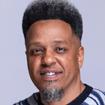



1:45 pm - 3:45 pm EST
Session 1 Workshops
Location: arcHives, meeting LeveL 4 (m4)
track: community buiLding
LeveL: intermediate
Presenters:
kunane dreier, HaWaii HeaLtH & Harm reduction center, HonoLuLu, Hi
Peter tuioLosega siLva, kumukaHi HeaLtH + WeLLness, HonoLuLu, Hi
This community-based workshop will highlight two examples of the coordinated efforts being made in Hawaii to expand and uplift community involvement and incorporate their involvement with HIV care and prevention in Hawaii. First, we will look at the innovative and intentional ways individuals, especially Native Hawaiians and Pacific Islanders, are involved and empowered with the Hawaii Integrated Community Planning Group across 4 counties and 5 islands. Some say we are separated by the ocean; we say the ocean connects us. Second, we will look at Kumukahi Health + Wellness’ (KHW) innovative planning and implementation of the State’s first POZ Living retreat since 2016. KHW’s Client Advisory Board (CAB) was reborn from these talks and now has had more participation than ever. Many changes that have happened with the agency were due in part from the recommendations that came out of the newly invigorated CAB.
Location: marquis saLon 12, meeting LeveL 2 (m2)
track: comorbidities, and muLtiPLe cHronic conditions oF tHose aging WitH Hiv LeveL: beginner
Presenter:
Jam cHen, san Francisco aids Foundation, san Francisco, ca siLvia sandovaL, san Francisco aids Foundation, san Francisco, ca
TransLife, a program of the San Francisco AIDS Foundation, provides a culturally and linguistically responsive model of care for transgender and gender non-conforming (TGNC) folks impacted by HIV. This workshop explores TransLife’s tiered behavioral health strategy, which uses peer-led psychosocial support groups as affirming spaces and gateways to deeper clinical engagement. TGNC peer facilitators are trained to recognize mental distress, conduct informal screenings, and initiate warm handoffs to in-house or community-based therapists for one-on-one counseling. This model of care reduces stigma, builds trust, and normalizes therapy by meeting clients where they are. The model also includes tailored strategies for older TGNC adults living with HIV, addressing aging-related concerns such as neurocognitive decline, compounding trauma,and social isolation. Participants will gain practical tools and insights to replicate or adapt this peer-based approach in their own HIV service settings, bridging psychosocial support with sustained behavioral health care.
Location: chinatown, Meeting LeveL 3 (M3)
tracK: advancing research and treatMent For oLder aduLts
LeveL: Beginner
Presenters:
Kenric ware, Mercer university coLLege oF PharMacy, atLanta, ga russeLL caMPBeLL, hiv/aids networK coordination, seattLe, wa
The number of antiretrovirals (ARVs) that people take to achieve viral suppression has declined over the years, unfortunately, the same cannot be said about non-ARVs that people with HIV (PWH) take while growing older. This higher tally of medications prescribed to PWH reflects the longevity that eluded PWH three decades ago. However, longer lifespans come with multiple health considerations besides HIV that are commonly managed by drug therapies. These medications can present safety concerns and access challenges that could impact quality of life. Furthermore, drug interactions that lower the levels of ARVs in the body could affect viral load statuses and lead to HIV transmissions. This highly interactive presentation, facilitated by an American Academy of HIV Medicine/HIV Pharmacist, will engage audience members with medication scenarios that occur as people navigate aging with HIV and invite attendees to share how medications can be used to optimize HIV and aging processes.
Location: MagnoLia, 2nd FLoor LeveL, Mezzanine Foyer
tracK: woMen aging with hiv
LeveL: interMediate
Presenter:
rev dr sande BaiLey-gwinn, Foundations For Living, coMMerce, ga
This session will create a desire for women who are aging with HIV to add faith and spiritual practices to their daily regiments of healing. We understand that research, technology, healthy diets, biomedical, behavioral, and social science interventions are essential to thrive with this disease. However, faith and spiritual practices of inward healing promotes a more robust additive to the holistic wellness of women that are aging with HIV. Participants will explore the benefits of regular meditation, prayer, and affirmations as offerings of managing their health and wellness for spiritual fulfillment. Finally, members of the audience will have unique faith practices that will close the gap of fully accepting their personal faith regiments without stigma and religious trauma. That may currently hurt or block healing for women aging beautifully with HIV. This session will curate an encouraging space for inward healing through faith and spirituality.
Location: scarLet oaK, 2nd FLoor, Mezzanine Foyer
tracK: BioMedicaL hiv Prevention
Presenters:
christoPher PoLK, Md, viiv, durhaM, nc
quintin roBinson, Md, atLanta, ga
tori cooPer, atLanta, ga
LLuvia “rainy” raMirez, chicago, iL
This workshop highlights the transformative role of long-acting injectable (LAI) strategies in HIV prevention and treatment, showcasing their potential to improve healthcare engagement and patient outcomes. Participants will examine the multidimensional benefits of LAI therapy, such as strengthening patient-provider relationships, enhancing overall well-being, and creating opportunities for broader health interventions through consistent clinic visits. Utilizing case studies and real-world examples, attendees will learn how personalized conversations between providers and patients can aid in selecting the most suitable prevention and treatment options, improve adherence, and foster health equity. The session will also provide actionable strategies and essential questions for effectively implementing LAI therapy, drawing on insights from healthcare providers, community leaders, and implementation experts. Whether you’re a healthcare provider, advocate, or clinic administrator, this workshop offers practical tools to incorporate LAI therapy into care plans and redefine strategies for HIV prevention and treatment. Join us to explore how this innovative approach can transform lives and shape the future of healthcare.
Location: georgetoWn, meeting LeveL 1 (m1)
Join us for an interactive, hands-on session exploring how humancentered design and digital innovation can tackle real-world gaps in HIV prevention. Participants will engage with powerful case studies from DHITs HIV Prevention Innovation Sprints in New Orleans, Birmingham, and Miami, and use design thinking tools to reimagine how we understand, empathize with, and serve communities most affected by HIV. Through immersive exercises in story mining, ideation, and collaborative problem-solving, participants will leave with fresh insights, practical strategies, and a renewed commitment to patient-centered innovation in their work.
Location: university oF dc, Meeting LeveL 1 (M1)
tracK: BioMedicaL hiv Prevention
LeveL: Beginner
Presenters:
monique carry, gLobaL consuLtant, atLanta, ga
natHanieL HoLLey, tHe FreeLuX ProJect, daLLas, tX
Long-term survivors now represent nearly half of all people living with HIV (PLHIV) in the United States, yet viral-suppression and prevention messaging still target younger populations. This interactive workshop spotlights Undetectable = Untransmittable (U = U) as the most underutilized biomedical tool for healthy aging in PLWHIV. Leveraging Prevention Access Campaign’s new U = U University micro-learning platform, CDC’s 2024 Implementing & Scaling Up U = U Resource Guide, and real-world pilots from community clinics and long-term-care facilities, participants will explore how Treatment as Prevention can simultaneously curb onward transmission and improve quality of life for adults 50+. We will demonstrate how age-tailored U = U messaging, geriatric-friendly care models, peer supports, and policy levers can simultaneously boost viral suppression, cut stigma, and improve quality of life. Attendees will leave with tools, action-plan templates, and evaluation metrics to embed U = U across clinics, pharmacies, long-term-care facilities, and community settings.
Location: siLver Linden, 2nd FLoor, Mezzanine Foyer
tracK: dandeLions and LiFetiMe survivors
LeveL: advance
Presenter:
jaMaaL haiLey, Morgan state university, BaLtiMore, Md
Maryland’s Ryan White Part D Network included providers for women, infants, children, and youth (12-24). To capture young people’s experiences and receive feedback on youth-focused HIV prevention and treatment, the Voice of Youth Community Advisory Board (V.O.Y. CAB), consisting of teens and young adults receiving services from two adolescent HIV programs, was created. The Ryan White Part D has since undergone structural changes to a more integrated approach that dissolved many youth-focused programs. While some medical services remain, one question persists: What happened to the youth and young adults who participated in V.O.Y. CAB? This workshop aims to explore the experiences of former pediatric patients who are long-term survivors of behaviorally acquired HIV. A panel of former V.O.Y. CAB members will share their transitions to adult care, access to family planning and reproductive health services, and navigating psychosocial challenges (i.e., survivors’ guilt, finding employment) while living with HIV.
Location: shaw, Meeting LeveL 3 (M3)
tracK: BehavioraL heaLth and aging with hiv
LeveL: advanced
Presenter:
KiMBerLy canady, conversations with KiM, BrooKLyn, ny
This session explores the intersection of mental health, identity, and survival for women—particularly Black and Brown women—navigating the weight of caregiving, perfectionism, and unspoken emotional labor. From “strong Black woman” tropes to intergenerational expectations of sacrifice, many are socialized to over-function, suppress their needs, and equate worth with productivity. This workshop names the psychological toll of this conditioning and offers strategies to unlearn survival as the default mode. Through storytelling, somatic reflection, and culturally grounded discussion, participants will unpack internalized messages, explore healing beyond achievement, and practice boundary setting as a form of self-preservation. Participants will leave with tools to interrupt burnout cycles, reclaim emotional space, and prioritize pleasure, rest, and emotional safety.
Location: treasury, Meeting LeveL 4 (M4)
tracK: aging with hiv - PoLiticaL deterMinants oF heaLth
LeveL: interMediate
Presenter:
aj scruggs, visiBLe truth 365 PhiLadeLPhia, Pa
This 2-hour workshop centers the sexual health, HIV prevention, and lived experiences of trans men, transmasculine people, and nonbinary AFAB individuals across the U.S. The session will introduce the Guys Like Us program—a peer-led initiative that affirms and uplifts transmasculine people in HIV prevention, education, and leadership. This workshop includes an interactive panel discussion titled Preparing to Do the Mattress Dance (SEX), focusing on how trans men experience sex, prevention, and care across different regions. Participants will explore how historical and cultural safety practices intersect with current HIV tools like PrEP, PEP, U=U, and more. The conversation will also address a significant gap in research: the lack of long-term data on aging trans men living in general, and the interaction between HRT and HIV care. Through personal stories, strategies, and regional examples, attendees will leave with a deeper understanding of how to center pleasure and health in our evolving journeys.
Location: congress, Meeting LeveL 4 (M4)
tracK: woMen aging with hiv
LeveL: interMediate
Presenters:
jenniFer garrison, Phd, BucK institute For research on aging, university oF southern caLiFornia, Los angeLes, ca
Linda h scruggs, Mhs, riBBon - a center oF eXceLLence, Largo, Md
sara LooBy, Md, Massachusetts generaL hosPitaL, Boston, Ma
reBecca aBeLMan, Md, university oF caLiFornia, san Francisco, san Francisco, ca
bridgette Picou, Lvn, acLPn - tHe WeLL ProJect, ontario, ca
As the population of women aging with HIV continues to grow, it is essential to deepen our understanding of the complex interplay between HIV, reproductive aging, and overall aging in women across the lifespan. While some attention has been given to menopause in this context, there is a critical need to broaden research to encompass the full spectrum of reproductive aging and how it affects aging related health outcomes beyond reproduction.
This workshop aims to bring together leading experts in women’s health, HIV, and reproductive aging to explore the latest research and insights into how HIV and antiretroviral therapy (ART) impact the reproductive aging process and in turn how this affects the aging processes of women. The goal is to enhance our understanding of the biological, clinical, and psychosocial aspects of reproductive aging in women living with HIV.
Location: mount vernon square, meeting LeveL 3 (m3)
Presenters:
césar veLazquez, nmac ’s gay men oF coLor FeLLoW
raúL marca, nmac ’s gay men oF coLor FeLLoW
This workshop will share the experience of Spanish-speaking LGBTQ+ immigrants living with and without HIV about the impacts of the current political climate. The workshop will present stories from Latino men over 50 to explore these realities obtained through guided conversation, community mapping, and shared resilience-building strategies. Topics will include the compounding effects of immigration stress, stigma, aging, and HIV-related health challenges. Participants will gain tools to build culturally grounded peer support networks, promote culturally competent care, and apply trauma-informed strategies in their work. The session emphasizes lived experience, community wisdom, and practical action, offering replicable models for supporting this underserved population. This workshop centers advocacy policy, healing, collective power, and the transformative potential of community.”
Location: union station, meeting LeveL 3 (m3)
Presenters:
dr aLLison agWu, JoHns HoPkins university scHooL oF medicine, baLtimore, md
This workshop will focus on the voices of caregivers who raised HIVpositive children during the early years of the HIV epidemic. Parents and guardians, in addition to sustaining while navigating profound grief, medical uncertainty and stigma were also left to make difficult decisions. This session explores the impossible questions faced by these parents and guardians, who to tell, how to talk to their children, and how to protect them from an already difficult world. Panelists will reflect on the recurring themes of boundary-setting, disclosure, secrecy, and resilience and how these can impact family dynamics.
Location: Mint, Meeting LeveL 4 (M4)
Presenters:
RichaRd adkins, MontgoMeRy county caB, icons and Rising staRs, gaitheRsBuRg Md
denfoRd gaLLoway, Ryan white PLanning counciL ManageR, sheLBy county (tn)
heaLth dePaRtMent, MeMPhis tn
kaLvin MaRshaLL, houston tX
LaRRy BRyant, Reunion PRoject, BRookLyn ny
This session provides a safe space for heterosexual men to share lived experiences with HIV, address trauma, stigma, and substance use, and explore healing strategies. It will feature an intergenerational dialogue with younger participants and focus on culturally relevant education, resilience, and community building.
Location: cHerry bLossom, 2nd FLoor LeveL, mezzanine Foyer track: community buiLding
Presenters:
audrianna marzette, nmac, WasHington, dc moisés agosto-rosario mPH, nmac, WasHington, dc
micHaeL smitH, Jr., mPH, emory university, atLanta, ga bruny veLázquez, Fáctica, WasHington, dc
Join us for the official launch of NMAC’s HIV 50+ Community Education
Project—a bilingual (English/Spanish) online learning platform designed to educate and empower people living with HIV over age 50. This session will showcase the platform, walk through the development process, and offer a chance to enroll in the next cohort. Modules cover key health issues such as HIV and diabetes, cardiovascular health, mental wellness, and HIV-Associated Neurocognitive Disorder (HAND). Taught by peer educators, public health advocates, and medical professionals, this community-driven resource connects participants to local and national tools for long-term wellness. The platform promotes community connection, personal empowerment, and grassroots advocacy through NMAC’s National HIV Aging & Advocacy Network (NHAAN). Whether you’re a provider or a person living with HIV over 50, this is your invitation to learn, connect, and take action.
Location: dogWood, 2nd FLoor, mezzanine Foyer
Presenter:
danieL WiLson, ncoa, WasHington, dc
See app for descritpion.
Location: george WasHington, meeting LeveL 1 (m1)
Presenters:
micHaeL, smitH, Jr., emory university, dePartment oF ePidemioLogy, atLanta, ga
audrianna marzette, nmac, WasHington, dc
damián cabrera, nmac, WasHington, dc
bruny veLázquez, Fáctica, san Juan, Pr
JaeLyn otero, Fáctica, san Juan, Pr
This session will overview the development and implementation of a national online health promotion project entitled ‘HIV50+ Community Education Project’ by NMAC for people age 50 and older living with HIV in the United States (U.S.). Session will explore challenges, strengths, and opportunities related to developing online educational videos, interactive activities, support and resources that focuses on policy & advocacy, cardiovascular health, diabetes, HIV-associated neurocognitive disorder, healthy living and mental health. Curriculum development & rationale, online pedagogical methods/curriculum engagement, pilot evaluation data and recruitment/marketing strategies will be described, analyzed and assessed in an effort to understanding ways to increase community education among people age 50 and over living with HIV in the U.S.
4:00 PM – 6:00 PM
Location: congress, Meeting LeveL 4 (M4)
track: aging WitH Hiv - PoLiticaL determinants oF HeaLtH
LeveL: intermediate
Presenter:
J. cHristoPHer JoHnson, ba, mobiLizing miLLenniaLs organization, neW orLeans, L a
This interactive workshop investigates the possibilities for intergenerational collaboration used to circumvent political and structural barriers, affecting adults 50+ living with or impacted by HIV. Political determinants, including prohibitive legislation, inequitable funding and poorly enforced policies, contribute to the inequities present in access to healthcare, housing, and social support. Drawing from the work of Mobilizing Millennials, participants will develop an understanding of the power of coalitions that are led by young people and informed by the wisdom of elders towards advancing inclusive, justice-oriented policy change. The workshop will present real-world case studies, policy mapping exercises, and storytelling practices to enable attendees to identify concrete action plans towards systemic change. The workshop also centers the lived experiences of the aging adults living with HIV, while also preparing younger advocates to be allies and policy change agents.
Location: marquis saLon 12, meeting LeveL 2 (m2)
track: comorbidities, and muLtiPLe cHronic conditions oF tHose beginner
Presenter:
cHarLie WiLson, san Francisco aids Foundation, san Francisco, ca
Through Black Brothers Esteem (BBE)—a legacy program of the San Francisco AIDS Foundation—this interactive workshop celebrates 30 years of community-rooted resistance and resilience. Participants will explore syndemic approaches that address HIV, mental health, and substance use as interconnected issues impacting Black men who have sex with men (MSM) in San Francisco.
The session will introduce trauma-informed and culturally affirming care models that integrate psychosocial support with HIV prevention and treatment. Using case studies, group dialogue, and insights from community-based programs, presenters will highlight best practices in peer-led harm reduction, care coordination, and client engagement.
This workshop centers the lived experiences of Black MSM while addressing the impact of stigma, systemic racism, and trauma. Attendees will gain practical tools to strengthen service integration in their own programs and improve health outcomes through holistic, communitycentered strategies.
Location: cHinatoWn, meeting LeveL 3 (m3)
track: advancing researcH and treatment For oLder aduLts
LeveL: intermediate
Presenters:
sonya arreoLa, university oF caLiFornia, san Francisco, division oF Prevention science, san Francisco, ca
Luis gutierrez-mock, university oF caLiFornia, san Francisco, division oF Prevention science, san Francisco, ca
Luz venegas, university oF caLiFornia, san Francisco, division oF Prevention science, san Francisco, ca
Jesus ramirez-vaLLes, university oF caLiFornia, san Francisco, division oF Prevention science, san Francisco, ca
The Matriarch Study explored social and structural drivers of wellbeing among aging trans women, including women living with HIV. This workshop will focus on how Matriarch women navigated distinct challenges of their generations to advance their wellbeing in the context of multiple forms of stigmatization and discrimination. We will begin by presenting study findings and lessons learned from interviews with trans women. Then, we will engage in an interactive group discussion about findings and implications for strengthening community and health systems that support evolving needs of aging trans women. With this context, the remainder of the workshop will focus on how to apply the study and discussion results to practical settings that can benefit trans women, including programming, advocacy and research. Attendees will join one of three break out groups to discuss implications for one of the three respective settings and all three groups will rejoin for larger group conclusions.
Location: george WasHington, meeting LeveL 1 (m1)
tracK: woMen aging with hiv
LeveL: interMediate
Presenters:
eLia siLveyra, Msw ucL a , Los angeLes, ca
rhea van BrocKLin, christie’s PLace, san diego, ca
citLaLin LoPez-torres, ucL a , Los angeLes, ca
This Confessions podcast-based workshop explores the overlooked voices of women aging with HIV. Through Confessions: HIV Positive Women—a bilingual storytelling series centering women’s lived experiences—we highlight narratives of women navigating long-term survivorship, late diagnoses, stigma, and resilience. Season 5 of the podcast, “Aging Loudly,” serves as the foundation for this session, offering attendees a multimedia and intergenerational experience. Participants will engage with audio excerpts, behind-the-scenes content, and community discussion as we unpack how storytelling can drive health equity, increase visibility, and support culturally responsive care for older women living with HIV.
Location: treasury, meeting LeveL 4 (m4)
tracK: coMMunity BuiLding
LeveL: Beginner
Presenters:
jasMine Peterson, MPh- director oF coMMunity reLations at can coMMunity heaLth, taMPa, FL
wyatt deihL, MPh- coMMunity Liaison at can coMMunity heaLth, taMPa, FL
As people with HIV age, clinics are uniquely positioned to identify their evolving needs and connect them to comprehensive support services through formalized, community-driven partnerships. In this interactive workshop, CAN Community Health’s Community Engagement Team will guide participants through clinic-focused strategies for assessing the needs of older clients, identifying service gaps, and developing strategic partnerships using tools such as Memorandums of Understanding (MOUs) and other formal agreements. Attendees will learn how to build a community resource bank that enhances referrals and strengthens clinic-to-community coordination. Through real-world examples, templates, and discussion, this session will equip healthcare providers and clinic administrators with practical tools to create sustainable, person-centered systems of support for aging individuals with HIV.
Location: university oF dc, Meeting LeveL 1 (M1)
tracK: dandeLions and LiFetiMe survivors
LeveL: Beginner
Presenters:
kimberLy canady, conversations WitH kim, brookLyn, ny
antoinette knoWLes, dandeLions inc., atLanta, ga
derintHia WiLLiams, dandeLions inc., detroit, mi
This session explores the long-term impact of perinatal HIV acquisition, with a focus on the psychosocial and mental health challenges that arise from growing up medicalized, often isolated, and frequently misunderstood. Drawing on the O’Neill Institute’s 2025 Big Ideas policy brief and informed by the lived experiences of Lifetime Survivors—also known as Dandelions—this presentation uplifts their calls for peer-led healing, visibility, and integration across care systems. Attendees will examine the gaps in the current continuum of care and envision policy and practice models rooted in trauma-informed and lifespan-affirming approaches.
Location: Mint, Meeting LeveL 4 (M4)
tracK: aging with hiv - PoLiticaL deteRMinants of heaLth
LeveL: interMediate
Presenters:
terri L wiLder, sage, MinneaPoLis, Mn
MiKe weir, nastad, washington, dc
MaLcoLM reid, us PeoPLe Living with hiv caucus/unity arc advocacy grouP, LLc, atLanta, ga
Bridgette Picou, the weLL Project, Fontana, ca
Coalitions play a vital role in advancing health outcomes, shaping HIV policy, and protecting access to care—particularly for people aging with HIV. As federal programs face proposed restructuring and funding cuts, coalition-led advocacy is increasingly necessary to preserve essential services and respond to political determinants of health. This interactive session offers a roadmap for people to join or lead coalitions engaged in policy development, implementation, and public education. Facilitators will clarify the distinctions between education, advocacy, and lobbying, and how organizations and individuals supported by federal funding can engage policymakers within legal boundaries. Participants will gain tools to strengthen coalition infrastructure, advocate for resources, and elevate the priorities of people aging with HIV. Attendees will leave with strategies to protect HIV prevention and care systems and ensure people aging with HIV remain centered in the national response. In a time of uncertainty, coalition work is not optional—it’s essential.
Location: union station, meeting LeveL 3 (m3)
track: systems cHange and WorkForce deveLoPment
LeveL: advanced
Presenters:
vaLerie rocHester, tHe Women’s coLLective, WasHington, dc
sHaquita miLes, tHe Women’s coLLective, WasHington, dc
This session will focus on a different perspective of HIV & Aging. Not chronological again but the premature aging of the body. Discussion will include factors that can impact standards of care from a social, political and corporate determinants of health framing. The compounding impact of daily stressors driven by societal, economic and political factors, to name a few, have been documented to prematurely age the body - a syndrome known as weathering which can lead to increased risk of preventable conditions and progression of existing ones. This syndrome, first documented in Black women, has significance also in discussions of HIV & Aging. Lessons learned from community informed, and community led programs centered on addressing impact of weathering will be discussed and time spent on adapting this approach to be applied in community settings.
Location: arcHives, meeting LeveL 4 (m4)
track: community buiLding
LeveL: intermediate
Presenters:
evany turk, cHicago House and sociaL service agency, cHicago, iL
JuditH PerLoFF, cHicago House and sociaL service agency, cHicago, iL
As the HIV-positive population continues to age and in alignment with the recent focus on quality-of-life metrics in the USA response to the HIV epidemic, the need for sustainable, affirming housing models tailored to the realities of long-term survivors becomes increasingly urgent. This workshop will explore an innovative Aging in Place Housing Model that includes housing care combined with social care as a solution to support healthy aging to address the complex needs older adults living with HIV encounter as they age.
We will showcase a video which brings to life the stories of those aging with HIV and underscores the importance of housing that adapts to their evolving health needs.
The session will conclude with a panel discussion featuring housing experts, adults living with HIV, and program developers. We will explore together how aging in place housing models can improve quality of life and reduce health disparities.
Location: cHerry bLossom, 2nd FLoor, mezzanine Foyer
Presenters:
geri donenberg, PHd, oFFice oF aids researcH, rockviLLe, md
sHaWn muLvaney, PHd, nationaL institute oF biomedicaL imaging and bioengineering, betHesda, md
mr. JoHn meade, Jr, avac/ FederaL aids PoLicy PartnersHiP, neW york, ny
ms venita ray, u s. PLHiv caucus, WasHington, dc
dr mitcHeLL J. WHarton, us HeLPing us, WasHington, dc
dr susan tuddenHam, JoHns HoPkins university, baLtimore, md
Accessible, affordable, timely viral load (VL) monitoring is essential to prevent HIV transmission and assess antiretroviral therapy responses among people with HIV. This dynamic workshop will feature an information exchange between NIH officials, the Federal AIDS Policy Partnership (FAPP), and community members regarding viral load monitoring technologies needs and progress. NIH presentations from the Office of AIDS Research and National Institute of Biomedical Imaging and Bioengineering will share the latest progress in developing point-of-care viral load technologies through the innovative NIH Rapid Acceleration of Diagnostics (RADx®) Technology initiative. FAPP members will facilitate an interactive discussion with the audience, including people with HIV and care providers, to characterize unmet needs and share ideas to improve VL monitoring across settings and populations. Input will be used to guide and refine VL monitoring products under development and being prepared for FDA regulatory approval.
Location: sHaW, meeting LeveL 3 (m3)
track: beHavioraL HeaLtH and aging WitH Hiv
LeveL: beginner
Presenter:
mary Lucero-HiLL, ma, tHe emPoWerment Program, denver, co
Grief extends beyond the loss of life; it encompasses various non-death losses that significantly impact individuals emotionally, psychologically, physically, even spiritually. For individuals diagnosed, and especially aging with HIV, these losses are seen over decades of carrying the weight of stigma, isolation, and vulnerability. This workshop delves into the multilayered nature of grief: exploring losses such as the end of relationships, health declines, job transitions, and the loss of community or traditions. Participants will gain insights into the symptoms and manifestations of grief, understand the stages of grieving, and learn effective coping strategies. Through interactive discussions and reflective exercises, attendees will discover the potential for personal growth and resilience that can emerge from navigating grief. This session aims to equip individuals with the tools to recognize and process various forms of loss, fostering a deeper understanding and empathy towards themselves and others.
Location: siLver Linden, 2nd FLoor LeveL, mezzanine Foyer
track: tHe science oF seXuaLity
LeveL: intermediate
Presenter:
mX trinitee-immanueL de’von WiLson, bL aqLov3 incorPorated, PHiLadeLPHia, Pa
Celebrating the resilience, eroticism, and complexity of Trans for Trans (T4T) love among Black and Brown transgender and gender nonconforming (TGNC) individuals. Centering serodiscordant relationships and transdiscordant dynamics—including polyamorous couples—this session explores how intimacy, status, and identity intersect. Through a panel of TGNC individuals (single and coupled), participants will gain insight into navigating love, sex, and pleasure while challenging stigma around HIV and gender variance. This experience-based, trauma-informed session includes pleasure-mapping, disclosure scripting, and cultural practices grounded in harm reduction, U=U, and PrEP awareness. Whether you are part of a T4T relationship, a care provider, or navigating these issues individually, this workshop offers a liberating and affirming space to reframe serodiscordance and sexual health. Amid rising legislative attacks that seek to erase trans lives and restrict HIV-related care, this session also calls on participants to envision solidarity, advocacy, and resource mobilization as essential tools of resistance.
Location: magnoLia, 2nd FLoor, mezzanine Foyer
Presenter:
PorcHia dees, LiFetime survivors netWork, HigHLand, ca
This workshop aims to explore the lifelong impact of HIV disclosure, stigma and trauma on people born with HIV. Often raised in environments where silence equaled safety, many Lifetime Survivors internalized shame and fear around their diagnosis, leading to very complex emotional realities that affect their ability to form and sustain healthy relationships. This session will engage in a no-filter, open dialogue about pleasure, intimacy, trust, boundaries and self-worth, all while centering U=U, safer sex practices, and reproductive health. This session will share practical tools for building and sustaining healthy relationships. Participants will be able to engage in dialogue about the unique family dynamics, sex positivity, cultural expectations, criminalization, the burden of secrecy and how breaking the silence can become the act of healing. This session will
6:15 pm - 7:15 pm
AFFINITY SESSIONS
6:30 pm - 8:30 pm
WELCOME RECEPTION
Location: marquis baLLroom, meeting LeveL 2 (m2)
also provide tools to reclaim power through advocacy, communication, peer mentorship, disclosure and self-compassion strategies in dating, relationships and healthcare settings.
Location: dogWood, 2nd FLoor, mezzanine Foyer
Presenter:
dr ayo Jordan, LiFe ceLebration grouP, LLc, nortH cHesterFieLd, va
End-of-life care is not only a medical or legal matter, it is a deeply spiritual journey. For individuals living with HIV, end-of-life care is often shaped by a legacy of stigma, spiritual trauma and systemic inequity that centers the role of faith in reclaiming dignity, healing, and peace at life’s end. This session will explore how faith traditions can offer spiritual comfort, ethical guidance, and practical support to individuals navigating advanced illness, aging with HIV, or end-of-life planning.
Participants will reflect on the theological dimensions of mortality, address the unique emotional and pastoral needs of people living with HIV and learn how to initiate compassionate, justice-informed conversations around death and legacy - conversations that affirm life, reduce fear, restore sacred worth and equips participants to lead or support compassionate, faith-informed end of life conversations and planning.
Location: mount vernon square, meeting LeveL 3 (m3)
Presenters:
kunane dreier, HaWaii HeaLtH & Harm reduction, HonoLuLu, Hi
amanda reed, muskogee creek nation, muskogee, ok
rydeLL curLey, gaLLuP indian medicaL center, gaLLuP, nm
HannaH gumLickPuk, aLaska native tribaL HeaLtH consortium, ancHorage, ak
kendra LeWis, cHerokee nation, taHLequaH, ok
This session will explore how culturally grounded harm reduction strategies—such as safer use education, naloxone distribution, and nonjudgmental outreach—can open doors to testing, treatment, and care for Indigenous communities. Panelists will share real-world examples of building trust, reducing stigma, and removing barriers through harm reduction, offering practical tools for integrating these approaches into linkage-to-care programs.
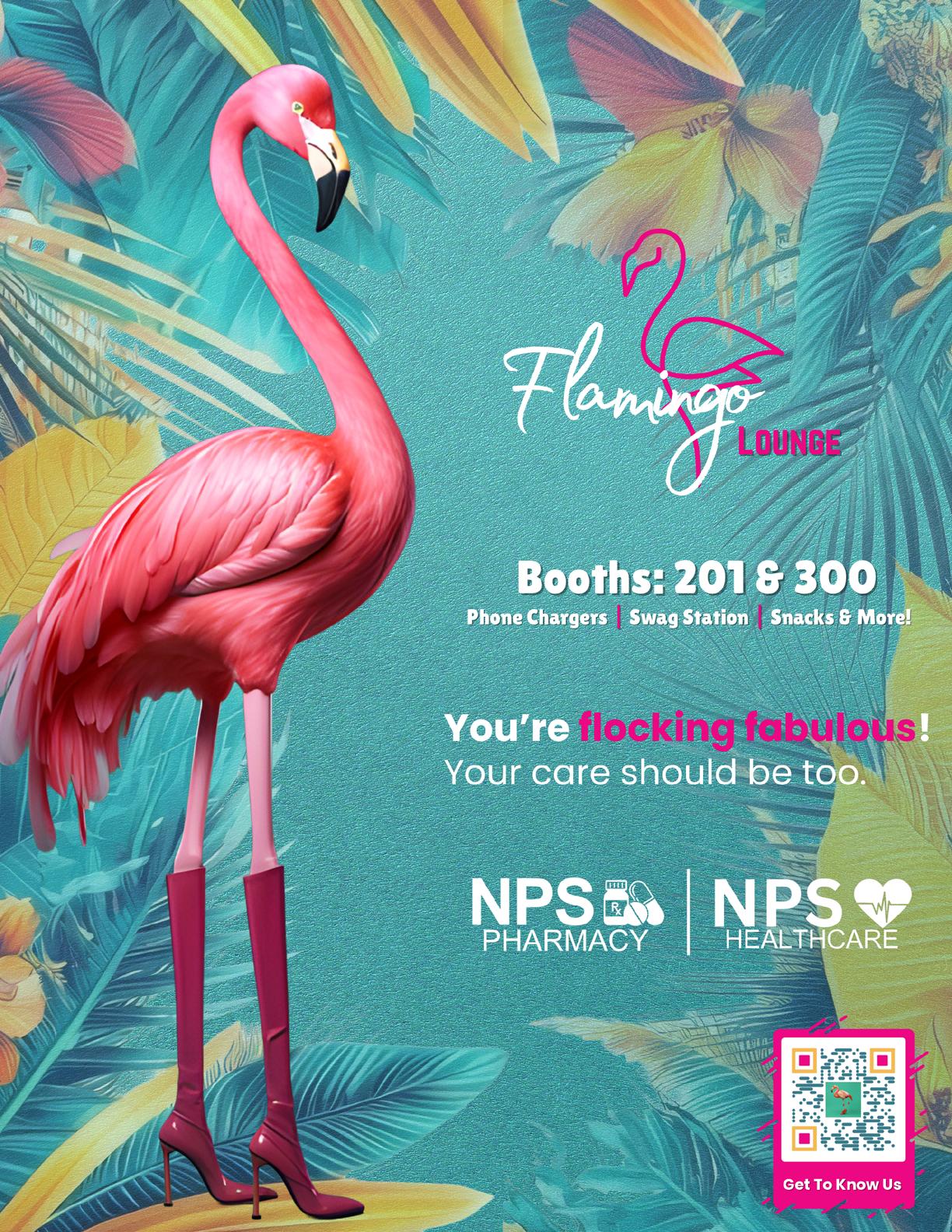
7:00 am -
7:45 am AM PRAISE
Location: Honeysuckle, 2nd Floor, Mezzanine Foyer
8:00 am -
5:00 pm REGISTRATION OPEN
Location: Liberty Ballroom Foyer, Meeting Level 4 (M4)
8:00 am -
11:00 am
2 Institutes
Sex Never Gets Old: HIV/STI Prevention for Older Adults
Location: Georgetown, Meeting Level 1 (M1)
Prepped to Serve: A Playbook for Implementing HIV Prevention Services in Community Pharmacies
Location: George Washington, Meeting Level 1 (M1)
Clinical Guidelines and Recommendations for Meeting the Needs of an Aging Population with HIV
Location: Dogwood, 2nd Floor, Mezzanine Foyer
Rapidly Adapting HIV Care Amidst Radically Reshaped Public Health Infrastructure
Location: Congress, Meeting Level 4 (M4)
Navigating the Policy Web: HIV in a Complex Health System
Location: Magnolia, 2nd Floor, Mezzanine Foyer
Living in Visibility: Health, Resilience, and Equity for Aging Trans Women with HIV
Location: University of DC, Meeting Level 1 (M1)
10:00 am -
5:00 pm EXHIBIT HALL OPEN
Location: Independence and Liberty Ballrooms, Meeting Level 4 (M4)
The Hispanic/Latine Leadership Health Institute
Location: Mint, Meeting Level 4 (M4)
Aging with HIV and the Importance of Housing
Location: Treasury, Meeting Level 4 (M4)
Amplifying Public Health Infrastructure: CoalitionBuilding for Communities Aging with HIV
Location: Silver Linden, 2nd Floor Level, Mezzanine Foyer
Ask a Provider: U=U and More!
Location: Cherry Blossom, 2nd Floor Level/Mezzanine Foyer
From Law to Liberation: ADA, Community Organizing, and Funding Tools in the Fight Against HIV Criminalization
Location: Union Station, Meeting Level 3 (M3)
Weathering the Storm: The Healing and Resilience of Lifetime Survivors
Location: Mount Vernon Square, Meeting Level 3 (M3)
Still Here, Still Powerful: Black Women, HIV & Aging with Grace and Grit
Scarlet Oak, 2nd Floor, Mezzanine Foyer
11:30 am1:30 pm
Plenary Lunch
Luncheon Plenary: Survival and Legacy, Presented by NMAC
Location: Marquis Ballroom, Meeting Level 2 (M2)
1:30 pm2:00 pm
2:00 pm4:00 pm
POSTER SESSIONS
Location: M1 Foyer, Meeting Level 1 (M1)
Innovation in PrEP: Strategies in Today’s Climate for Reaching, Retaining and Reengaging PrEP Clients
Location: Georgetown, Meeting Level 1 (M1)
Reclaiming Space: Aging, Identity, and HIV/AIDS in Latino Communities
Location: Archives, Meeting Level 4 (M4)
Rest in Unrest: A Faith Response to HIV in Today’s Socio-Political Climate
Location: Dogwood, 2nd Floor Level, Mezzanine Foyer
Sexual Pleasures and Taboos in an Unstable Funding Environment
Location: Silver Linden, 2nd Floor Level, Mezzanine Foyer
Addressing the Opioid Use Disorder/HIV/Hepatitis
C Syndemic Through Mobile Clinics
Location: Union Station, Meeting Level 3 (M3)
Still Here- Community for Lesbians/Queer Women
Aging with HIV
Location: Magnolia, 2nd Floor, Mezzanine Foyer
Securing the Bag: Financial and Career Growth as Lifetime Survivor
Location: Congress, Meeting Level 4 (M4)
Syndemic Theory to Practice: Linking and Retaining People with HIV
Location: Tulip, 2nd Floor, Mezzanine Foyer
Intermediary Funders: Catalysts for Equitable Systems Change
Location: Cherry Blossom, 2nd Floor, Mezzanine Foyer
Ballroom Health Equity in Action
Location: Treasury, Meeting Level 4 (M4)
Beauty & Wellness: Reimagining HIV Prevention Spaces for Black Women
Location: University of DC, Meeting Level 1 (M1)
Lifestyle-Based Interventions for Prevention and Management of HIV-Associated Comorbidities
Location: Mint, Meeting Level 4 (M4)
The HIV/AIDS Nexus: Despair, Research, Hope, Movement
Location: Shaw, Meeting Level 3 (M3)
Pivot to Power: Strength in the Collective
Location: Scarlet Oak, 2nd Floor, Mezzanine Foyer
What Do Longterm Survivors Want in an HIV Cure?
Location: Chinatown, Meeting Level 3 (M3)
PrEP as Pleasure: Reimagining HIV Prevention Through Sex-Positive Education
Location: George Washington, Meeting Level 1 (M1)
Linkage in Action: PrEP, DoxyPEP, Telehealth, and Navigation
Location: Mount Vernon Square, Meeting Level 3 (M3)
4:15 pm6:15 pm
Session 4: Workshops
The Pause and the Positive: Navigating Menopause with HIV
Location: Silver Linden, 2nd Floor, Mezzanine Foyer
Strategies to Address Medical Needs for People
Aging with HIV
Location: Chinatown, Meeting Level 3 (M3)
Aging With Purpose: Cultivating Wellness at Every Stage
Location: Scarlet Oak, 2nd Floor, Mezzanine Foyer
Our Bodies, Our Desire: Trans Pleasure, Power, Healing, and Pride
Location: Union Station, Meeting Level 3 (M3)
Wounds That Heal: Embracing Resilience, Honoring Lives, and Reclaiming Wholeness
Location: Congress, Meeting Level 4 (M4)
Gilead Patient Ambassador Program: Journey Beyond HIV
Location: Georgetown, Meeting Level 1 (M1)
Aging with HIV: Process What’s Lost to Welcome What’s Next
Location: Treasury, Meeting Level 4 (M4)
Expanding PrEP Access Through Pharmacist-Led
Initiation
Location: Magnolia, 2nd Floor, Mezzanine Foyer
6:30 pm7:30 pm AFFINITY SESSIONS
The Generational Dynamics of Living with HIV
Location: George Washington, Meeting Level 1 (M1)
Disclosure and Intimate Partner Violence - It is Complicated!!!
Location: Cherry Blossom, 2nd Floor, Mezzanine Foyer
From Policy to Infrastructure, Exploring Integrating HIV and Aging Systems
Location: Tulip, 2nd Floor, Mezzanine Foyer
Facilitating Engagement Between Women and Providers About Sex and Pleasure
Location: Dogwood, 2nd Floor, Mezzanine Foyer
Feeling Knotty: Sexual Health Across the Lifespan
Location: Archives, Meeting Level 4 (M4)
Aging While Black & LGBTQ+/SGL: Policy, Power, and Possibility
Location: University of DC, Meeting Level 1 (M1)
Legacy, Leadership, and Leverage: Power of the National Pan-Hellenic Council
Location: Mint, Meeting Level 4 (M4)

Congratulations to NMAC on a Remarkable 2025 USCHA and to the Advocates and Survivors Leading the Way in Aging with HIV.
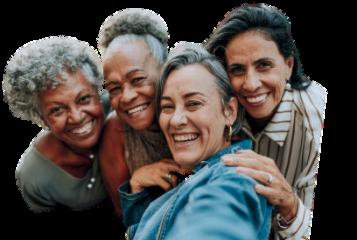
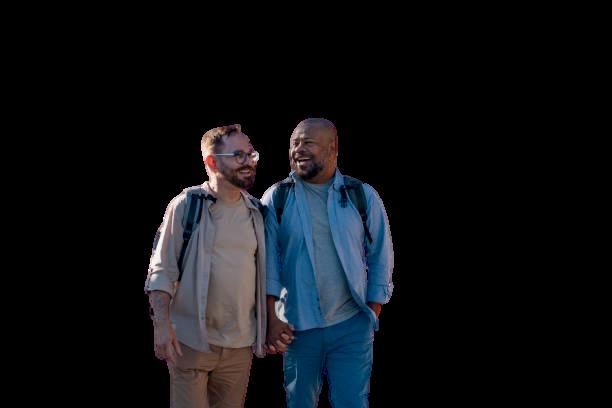
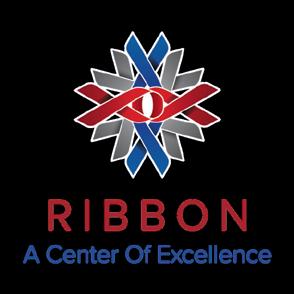
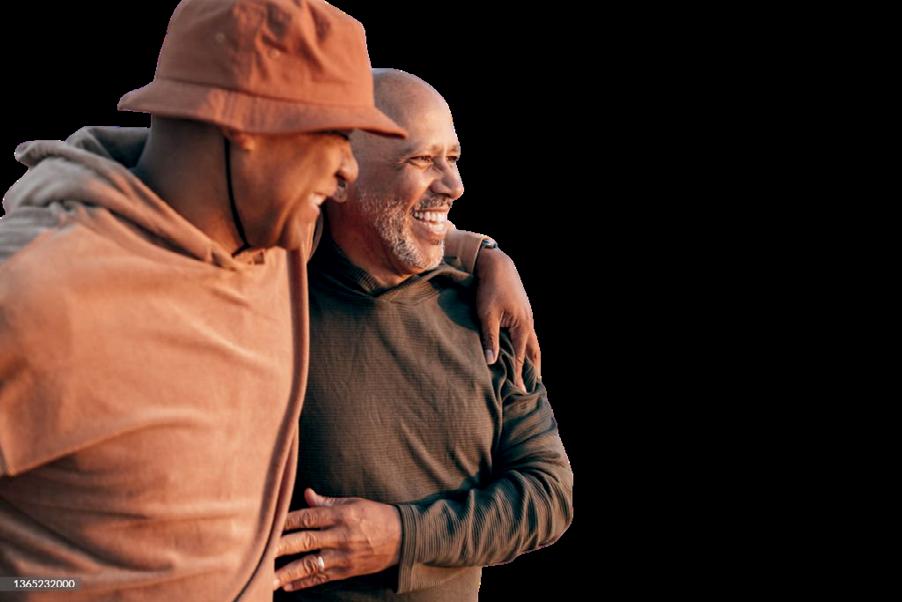
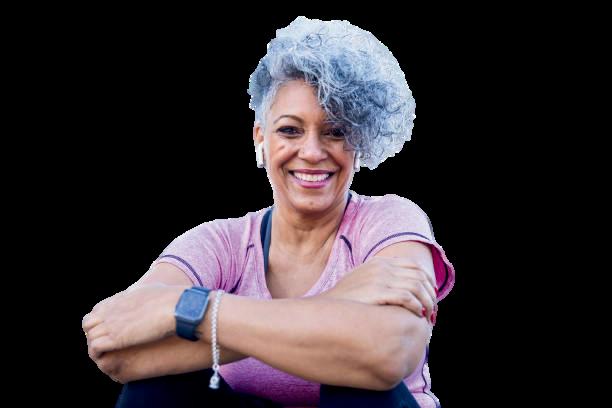
Today, over half of people living with HIV are aged 50 and older. As they age, they encounter unique health issues, social barriers, and stigma
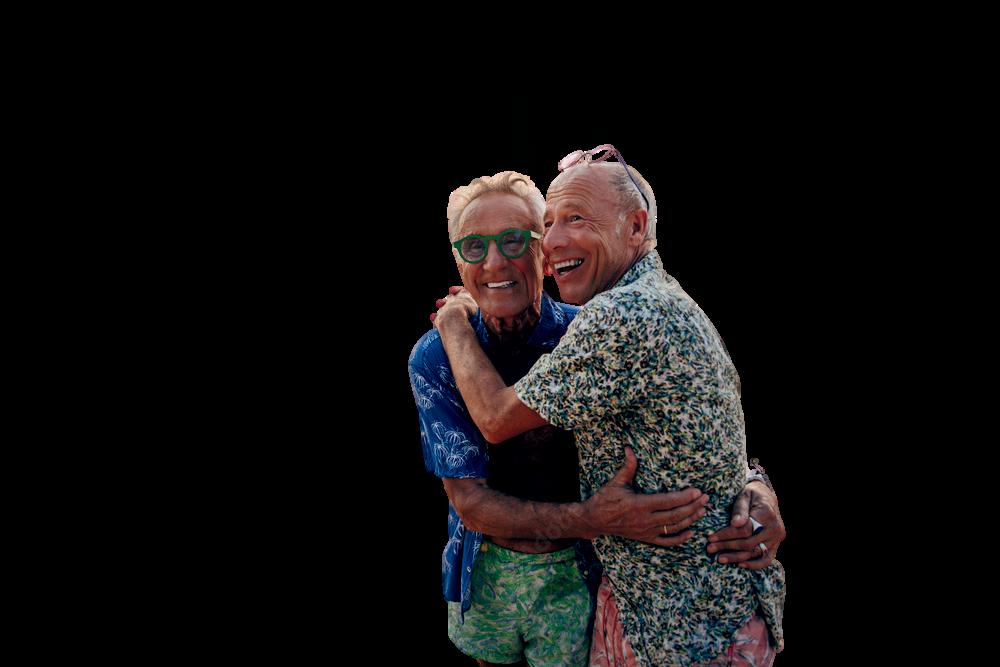
Ribbon, in partnership with Gilead Sciences’ HIV Age Positively initiative, proudly leads the Center for Excellence 4 Healthy Living—uniting 23 national and community partners to uplift and empower older adults living with HIV. We are redefining aging with HIV—through connection, Everyone deserves to age with pride.

Discover how Ribbon is redefining aging with HIV—scan to learn more.


SESSION 2 INSTITUTES
All times Eastern Standard Time (EST). See app for full Institute and Workshop descriptions and up-to-date information.
7:00 am - 7:45 am
AM Praise
AM Praise
Location: HoneysuckLe, 2nd FLoor, mezzanine Foyer
8:00 am - 5:00 pm
Registration
Registration Open
Location: Liberty baLLroom Foyer, meeting LeveL 4 (m4)
8:00 am - 11:00 am
Institutes 2
Location: georgetoWn, meeting LeveL 1 (m1)
Presenters:
russeLL camPbeLL, oFFice oF Hiv/aids netWork coordination, seattLe, Wa
dazon diXon diaLLo, sisterLove, atLanta, ga
carLos rodriguez-diaz, boston university, boston, ma
murPH Fuentes, oFFice oF Hiv/aids netWork coordination, seattLe, Wa
kenric Ware, mercer university coLLege oF PHarmacy, atLanta, ga
Minimal attention has been given to older adults in the context of meaningful HIV/STI prevention. Psychosocial challenges facing older adults living with or at increased susceptibility for HIV are often ignored or downplayed. Systemic ageism, lower rates of pre-exposure prophylaxis (PrEP) uptake for HIV prevention, a lack of conversations around sex and sexual health with healthcare providers, along with the absence of older adults featured in PrEP and sexual health media further complicate the path towards effective HIV prevention for older adults. This institute will feature a panel of providers, change agents and individuals with lived experience who will present and invite participants to engage in conversations around a variety of issues, including accessing DoxyPEP, changing bodies, and health challenges related to aging. In addition, the launch of a new sex-positive health campaign, specifically designed for older adults will be featured.
Location: george WasHington, meeting LeveL 1 (m1)
Presenters:
keLsea gaLLegos aragon, university oF neW meXico coLLege oF PHarmacy, aLbuquerque, nm
micHaeL murPHy, american PHarmacists association, WasHington, dc tamara mccants, nationaL PHarmaceuticaL association, WasHington, dc
aLFtan dyson, viiv HeaLtHcare, montgomery, aL
danieLLe Pierce, equitasHeaLtH, coLumbus, oHio sara zeigLer, courage ForWard strategies, atLanta, ga
This session introduces Prepped to Serve: The Community Pharmacy’s HIV Prevention Toolkit (The Toolkit), a new technical package developed through national expert consultation, real-world implementation experience, and evidence review. Designed for pharmacists, public health leaders, and implementation partners, the Toolkit outlines actionable strategies—each paired with checklists and tools—to support high-quality, sustainable delivery of HIV prevention and linkage to services including HIV screening, PrEP, and PEP.
Developed through the RxEACH Initiative, the Toolkit is built for postpolicy environments—where legal authority exists, but systems-level and operational supports are still needed to turn policy into practice. It provides a practical roadmap for building capacity, developing partnerships, strengthening workflows, and creating stigma-free, patient-centered pharmacy environments.
This Institute will blend orientation to the tool with interactive exercises and real-world problem-solving. Participants will examine common challenges, learn from emerging practices, and walk away with concrete strategies to strengthen pharmacy readiness and expand access to HIV prevention in the communities most affected by HIV.
Location: dogWood, 2nd FLoor, mezzanine Foyer
Presenters:
scott braWLey, american academy oF Hiv medicine, WasHington dc
deJa robinson, american academy oF Hiv medicine, WasHington, dc
Beginning in 2010, the American Academy of HIV Medicine and American Geriatrics Society identified HIV and Aging as a chronically understudied and understood topic. That year, a panel of expert medical professionals representing HIV, gerontology, aging and primary care came together to identify topics and resources that health care professionals should understand to meet the needs of an aging population with HIV. The result was a suite of guidelines and recommendations encompassing 23 topics initially published on the independent website HIV-age.org. In 2015, the Academy converted this exiting suite of materials into an accredited, continuing professional education activity for physicians, physician assistants, nurse practitioners, nurses and pharmacists to gain practical knowledge on topics related to aging and HIV. To date, this resource is the only published guidelines and recommendations for health care professionals to meet the needs of their aging patients with HIV.
For the foreseeable future, it is doubtful that the US Department of Health and Human Services will publish formal guidelines and recommendations for the care and treatment of older patients with HIV. As such, the Academy is considering converting the existing 23 chapters into a compendium document to train and educate health care professionals about the unique topics related to aging with HIV. The Academy would like to ensure that patient and advocate voices are adequately represented in this future document and is inviting participants to a listening session to ensure the compendium document adequately addresses the concerns of patients. This interactive, open discussion round table conversation will ensure that patient voices are incorporated into future training and professional development opportunities for health care professionals treating people with HIV.
Location: congress, meeting LeveL 4 (m4)
Presenters:
aLicia doWnes, LmsW, director oF FederaL Programs, aids united, WasHington, dc
dreW gibson, director oF advocacy, aids united, WasHington, dc
Jacobi Hunter-WrigHt, ma, senior Program manager, aids united, WasHington, dc
JosePH d stango, senior Program manager, aids united, WasHington, dc
This institute will examine how HIV-service organizations are adapting to growing socio-political pressures currently reshaping public health infrastructure and funding. In Part 1, drawing on findings from a recent landscape assessment, presenters will explore the impact of emerging policy changes—including reductions in force (RIFs), cancelations and
delays in already appropriated federal funding, shifts in Medicaid policy, discriminatory policies targeting underserved communities, and the reorganization of public health agencies. In Part 2, staff from an HIVservice organization will share how these changes have altered their service delivery model and affected the continuity of care for clients. In Part 3, presenters will introduce tools developed by AIDS United (AU) supporting organizational responses to these challenges. Through a case study, participants will explore how one grantee used AU tools to navigate a shifting environment. The institute will conclude with an overview of AU’s current programmatic responses and updates on national advocacy efforts.
Location: magnoLia, 2nd FLoor, mezzanine Foyer
Presenters:
racHeL kLein, tHe aids institute, tamPa, FL
stePHanie Hengst, tHe aids institute, tamPa, FL
nick armstrong, tHe aids institute, WasHington, dc
LesLie mcgorman, aids united, WasHington, dc
eLizabetH kaPLan, center For HeaLtH LaW & PoLicy innovation, Harvard LaW scHooL, cambridge, ma
This institute will explore how public policy shapes access to care for people aging with and at risk of HIV. Policy systems like Medicaid, Medicare, the ACA, and private insurance may seem separate, but they interact in complex ways that determine who gets care—and who is left behind. Participants will learn how federal proposals like the Republican reconciliation package, shifting regulatory actions, and changes to discretionary HIV funding threaten critical services. The session will also highlight how federal decisions ripple through state and local policies, influencing everything from prevention to treatment access. Policy experts will guide participants through a deep dive into each of these systems, helping them understand how they function, where they intersect, and how advocates can respond. Designed for advocates, providers, and people living with HIV, this institute will equip attendees with the knowledge to navigate and influence the policy landscape that shapes aging with HIV
Location: university oF dc, meeting LeveL 1 (m1)
Presenters:
Jordan bLaza oLsen, transgender strategy center
ceciLia cHung, transgender LaW center, oakLand, ca
marissa miLLer cornerstone consuLtants grouP, cHicago, iL
arianna Lint, ariana’s center, Fort LauderdaLe, FL
Transgender women, particularly women of color, remain one of the most affected populations in the HIV epidemic. While much research and programmatic focus have been placed on prevention and care for young transgender women, limited attention has been paid to the unique SESSION 2 INSTITUTES
experiences and health outcomes of aging trans women living with HIV. This proposal seeks to examine the intersectional challenges faced by this population—addressing gaps in care, social isolation, mental health, access to gender-affirming services, and long-term HIV management. Our goal is to develop inclusive, community-informed interventions that support healthy aging and dignity.
Location: mint, meeting LeveL 4 (m4)
Presenters:
rosy mota, Latino commission on aids, neW york, ny
roy cosme, arcos communications, neW york, ny
iván meLéndez rivera, md, FaaFP, centro ararat, san Juan, Pr
WiLL ramirez, soutHern aids coaLition, birmingHam, aL
eric Figueroa, Latino commission on aids, neW york, ny
guiLLermo cHacon, Latino commission on aids, neW york, ny
JuditH montenegro, Latino commission on aids, neW york, ny
The Hispanic/Latine Leadership Health Institute at the United States Conference on HIV/AIDS (USCHA) will present an opportunity to share our solidarity, network, and develop strategies to advance the goals of the Federal, States and Puerto Rico to Ending the HIV Epidemic (ETE) plans. The institute will bring together providers, community advocates, researchers, and public health officials concerned about the health challenges faced by the communities we serve. The institute will also seek to renew its commitment to work together toward addressing ongoing health inequities especially in this federal climate. In collaboration with providers, community advocates, researchers, and public health officials, the National Hispanic/Latine Health Leadership Network hopes to provide opportunities to strengthen multi-issue and multi-sectoral partnerships, solidarity with LGBTQ+ and Transgender communities, and support community mobilization efforts to achieve health equity, free of stigma and discrimination.
Location: treasury, meeting LeveL 4 (m4)
Presenters:
JosH dubensky, sage inc., WasHington, dc Joy berry, nationaL Hiv/aids Housing coaLition, WasHington, dc
Over half of the people living with HIV in the U.S. are now 50 or older. At the same time, nearly 1 in 5 people experiencing homelessness are 55 or older. For many aging with HIV, housing instability is a daily reality, with serious consequences for health, dignity, and longevity. This session will go beyond the data to explore what it really means to age with HIV without a safe place to call home. We’ll discuss stigma, highlight solutions, and look at how housing must be integrated into HIV care systems to ensure people can age with stability, support, and fairness.
Location: siLver Linden, 2nd FLoor LeveL, mezzanine Foyer
Presenters:
matty HeLton, nastad, WasHington, dc aimee sHiPman, mPH, PH d, nastad, boise, id
Communities aging with HIV have historically fought for advances in treatment and prevention yet have not been the immediate beneficiaries of the support provided by the public health infrastructure that they helped to create. This interactive institute looks to build off NASTAD’s 2024 National Consultation on Populations Aging with and Vulnerable to HIV, exploring existing partnerships and identifying opportunities to leverage the networks of health departments, community-based organizations (CBOs), and community to build coalitions and stronger partnerships through which to address the myriad complications, issues, and challenges facing various and diverse communities aging with HIV.
Location: cHerry bLossom, 2nd FLoor LeveL, mezzanine Foyer
Presenters:
JenniFer beLFry, dnP, rn, q-care PLus, Providence, ri JeFFrey kWong, dnP, rn, nyu Langone medicaL grouP, neW york, ny deondre b moore, u=u taskForce, Prevention access camPaign, daLLas, tX moderator: caroLe treston, rn, mPH, Faan, anac, PHiLadeLPHia, Pa
This lively and interactive session will begin with approaches to support people in their journey to sustain viral suppression through the messages of Undetectable = Untransmittable (U=U). Studies have shown that clinical providers do not consistently share the U=U message. Together, we will examine how to amplify the U=U message as a powerful tool for individual wellness and testing, prevention and engagement in care to end the HIV epidemic. And the best part is the open dialogue- all the things you want to ask at your provider visit – but may be too rushed or uncomfortable to ask. Bring your concerns to this non-judgement space where you can ask experienced HIV Nurse Practitioners all your questions about U=U and HIV, STIs, aging with HIV, medications and overall health and wellness issues. Consumers and providers are welcome to join in the dialogue and to share experiences and gain new knowledge.
Location: union station, meeting LeveL 3 (m3)
Presenters:
Jada Hicks, cHLP, WasHington, dc
timotHy Jackson aids Foundation oF cHicago, cHicago, iL robert suttLe, consuLting, neW york, ny
FRIDAY
This session will explore how people living with HIV (PLHIV) are using the Americans with Disabilities Act (ADA) to challenge discrimination and dismantle HIV criminalization laws. The session will examine how legal protections under the ADA can be activated by PLHIV to assert their rights and resist unjust prosecution. A 15–20-minute visual segment, HIV Criminalization: Visualizing the Threat to Our Communities, will ground the discussion in the lived realities of criminalization and its impact on communities.
Participants will also learn how PLHIV advocates are leveraging micro grant models to implement local mitigation strategies and how the Rapid Response Mechanism (RRM) is enabling swift, community-led interventions. With community organizing as the foundation, this session will highlight how legal tools, funding mechanisms, and grassroots leadership converge to drive systemic change and protect the rights and dignity of PLHIV.
Location: mount vernon square, meeting LeveL 3 (m3)
Presenters:
sHayLa knigHton-bLack, mPH, tHe LiFetime survivors netWork, taLLaHassee, FL mario castiLLo, tHe LiFetime survivors netWork, neW york, ny
Lifetime Survivors have a lifelong experience with chronic illness, often their mental health needs are often overlooked. This workshop explores the psychological toll of growing up positive, including the impact of grief,
10:00 am - 5:00 pm
Location: Independence and Liberty Ballrooms, Meeting Level 4 (M4)
SESSION 2 INSTITUTES
depression, anxiety, and trauma. This session will incorporate clinical and community-based mental health strategies to emphasize holistic approaches to whole person’s health. Participants will explore how a whole person’s care involves mind, body and spirit all while centering wellness, emotional resilience and dealing with trauma.
Location: scarLet oak, 2nd FLoor, mezzanine Foyer
moderator: dr marissa robinson, WasHington, dc
dorcas baker, randaLLstoWn, md
Patrice Henry, esseX, md
dr. Hanna tessema, WasHington, dc
Linda H scruggs, Largo, md
“Still Here, Still Powerful: Black Women, HIV & Aging with Grace and Grit” is a 3-hour panel exploring the intersection of HIV, aging, and Black womanhood. Through thematic discussions on menopause, diminishing social capital, and the power of legacy, panelists will address how stigma, racial disparities, and structural inequities shape the experiences of older Black women living with HIV. The session will highlight strategies for fostering sisterhood, intergenerational mentorship, and policy advocacy to combat invisibility and promote equity. Participants will engage in reflection and dialogue to identify ways they can help create more inclusive, affirming spaces for aging Black women with HIV.
11:30 am - 1:30 pm
Plenary Lunch
Location: marriott baLLroom
The legacy of the HIV epidemic is still being written by long-term survivors who continue to face health and social challenges, while also leading the fight for a future free from stigma and discrimination.
As we honor the 35th anniversary of the Ryan White HIV/AIDS Program that has been historically administered by HRSA, that legacy is also still being written by the late Ryan White and his impact on public perception and policy regarding HIV/AIDS. Ryan’s advocacy and story helped dispel misinformation and stigma surrounding the disease, leading to increased awareness and support for those affected. Moreover, his legacy helped contribute to the passage of the Ryan White Comprehensive AIDS Resources Emergency (CARE) Act. The Ryan White HIV/AIDS Program provides vital access to medical care, treatment, and support services for people living with HIV/AIDS. Sports legend and businessman, Earvin “Magic” Johnson, who was diagnosed with HIV in 1991, and Jeanne Ginder-White, mother of the late Ryan White were cast into the national spotlight of fear, discrimination, and uncertainty about the future. Their dual experiences and stories of advocacy, survival, and legacy are framed and are at the heart of this NMAC plenary.
Presenters:
earvin “magic” JoHnson Jr., cHairman and cHieF eXecutive oFFicer, magic JoHnson enterPrises
Jeanne WHite-ginder, aids activist and motHer oF ryan WHite
1:30 pm - 2:00 pm
Poster Presentations
Poster Presentations
Location: M1 Foyer, Meeting Level 1 (M1)
2:00 pm - 4:00 pm
Session 3: Workshops
Innovation in PrEP: Strategies in Today’s Climate for Reaching,
Location: georgetown, Meeting LeveL 1 (M1)
Presenters:
moderator: Patrick suLLivan, PHd, roLLins scHooL oF PubLic HeaLtH, emory university, atLanta, ga
dr kyLe benda, WHitman-WaLker, WasHington, dc
catHerine o ’connor, rn, msn, nortHeastern univ scHooL oF nursing, boston, ma
deWayne croWder, msW, carL bean men’s HeaLtH and WeLLness center and a vision 4 HoPe, atLanta, ga
kevin aLoysius, PHarmd, Legacy community HeaLtH, Houston, tX
What does it take to make PrEP work—at scale, in communities with the greatest need, and long-term? This session brings together a panel of PrEP implementation leaders who are answering these questions. These leaders will share how they’re scaling both oral and long-acting PrEP, improving

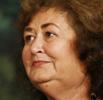
adherence, reengaging clients who’ve disengaged, and helping make measurable improvements in their local HIV epidemics.
The conversation will focus on what it takes to operationalize equitable access, support adherence, and deliver impact where it’s needed most. This is a session for anyone ready to learn what’s working now and what’s next.
Location: arcHives, meeting LeveL 4 (m4)
track: community buiLding
LeveL: intermediate
Presenter:
Luis nava moLero, Latino commission on aids (Lcoa), neW york, ny
Leandro rodriguez, Latino commission on aids (Lcoa), neW york, ny
This is only a brief summary of important information about BIKTARVY® and does not replace talking to your healthcare provider about your condition and your treatment.
BIKTARVY may cause serious side e ects, including:
Worsening of hepatitis B (HBV) infection. Your healthcare provider will test you for HBV. If you have both HIV-1 and HBV, your HBV may suddenly get worse if you stop taking BIKTARVY. Do not stop taking BIKTARVY without fi rst talking to your healthcare provider, as they will need to check your health regularly for several months, and may give you HBV medicine.
BIKTARVY is a complete, 1-pill, once-a-day prescription medicine used to treat HIV-1 in adults and children who weigh at least 55 pounds. It can either be used in people who have never taken HIV-1 medicines before, or people who are replacing their current HIV-1 medicines and whose healthcare provider determines they meet certain requirements.
gilead center spread
BIKTARVY does not cure HIV-1 or AIDS. HIV-1 is the virus that causes AIDS.
Do NOT take BIKTARVY if you also take a medicine that contains:
dofetilide
rifampin
any other medicines to treat HIV-1
Tell your healthcare provider if you:
Have or have had any kidney or liver problems, including hepatitis infection.
Have any other health problems.
Are pregnant or plan to become pregnant. Tell your healthcare provider if you become pregnant while taking BIKTARVY.
Are breastfeeding (nursing) or plan to breastfeed. Talk to your healthcare provider about the risks of breastfeeding during treatment with BIKTARVY. Tell your healthcare provider about all the medicines you take:
Keep a list that includes all prescription and over-thecounter medicines, antacids, laxatives, vitamins, and herbal supplements, and show it to your healthcare provider and pharmacist.
BIKTARVY and other medicines may a ect each other. Ask your healthcare provider and pharmacist about medicines that interact with BIKTARVY, and ask if it is safe to take BIKTARVY with all your other medicines.
BIKTARVY may cause serious side e ects, including:
Those in the “Most Important Information About BIKTARVY” section.
biktarvy 1 of 2
Changes in your immune system. Your immune system may get stronger and begin to fight infections that may have been hidden in your body. Tell your healthcare provider if you have any new symptoms after you start taking BIKTARVY.
Kidney problems, including kidney failure. Your healthcare provider should do blood and urine tests to check your kidneys. If you develop new or worse kidney problems, they may tell you to stop taking BIKTARVY.
Too much lactic acid in your blood (lactic acidosis), which is a serious but rare medical emergency that can lead to death. Tell your healthcare provider right away if you get these symptoms: weakness or being more tired than usual, unusual muscle pain, being short of breath or fast breathing, stomach pain with nausea and vomiting, cold or blue hands and feet, feel dizzy or lightheaded, or a fast or abnormal heartbeat.
Severe liver problems, which in rare cases can lead to death. Tell your healthcare provider right away if you get these symptoms: skin or the white part of your eyes turns yellow, dark “tea-colored” urine, light-colored stools, loss of appetite for several days or longer, nausea, or stomach-area pain.
The most common side e ects of BIKTARVY in clinical studies were diarrhea (6%), nausea (6%), and headache (5%).
These are not all the possible side e ects of BIKTARVY. Tell your healthcare provider right away if you have any new symptoms while taking BIKTARVY.
You are encouraged to report negative side e ects of prescription drugs to the FDA. Visit www.FDA.gov/medwatch or call 1-800-FDA-1088.
Your healthcare provider will need to do tests to monitor your health before and during treatment with BIKTARVY.
Take BIKTARVY 1 time each day with or without food.
This is only a brief summary of important information about BIKTARVY. Talk to your healthcare provider or pharmacist to learn more.
Go to BIKTARVY.com or call 1-800-GILEAD-5.
If you need help paying for your medicine, visit BIKTARVY.com for program information.








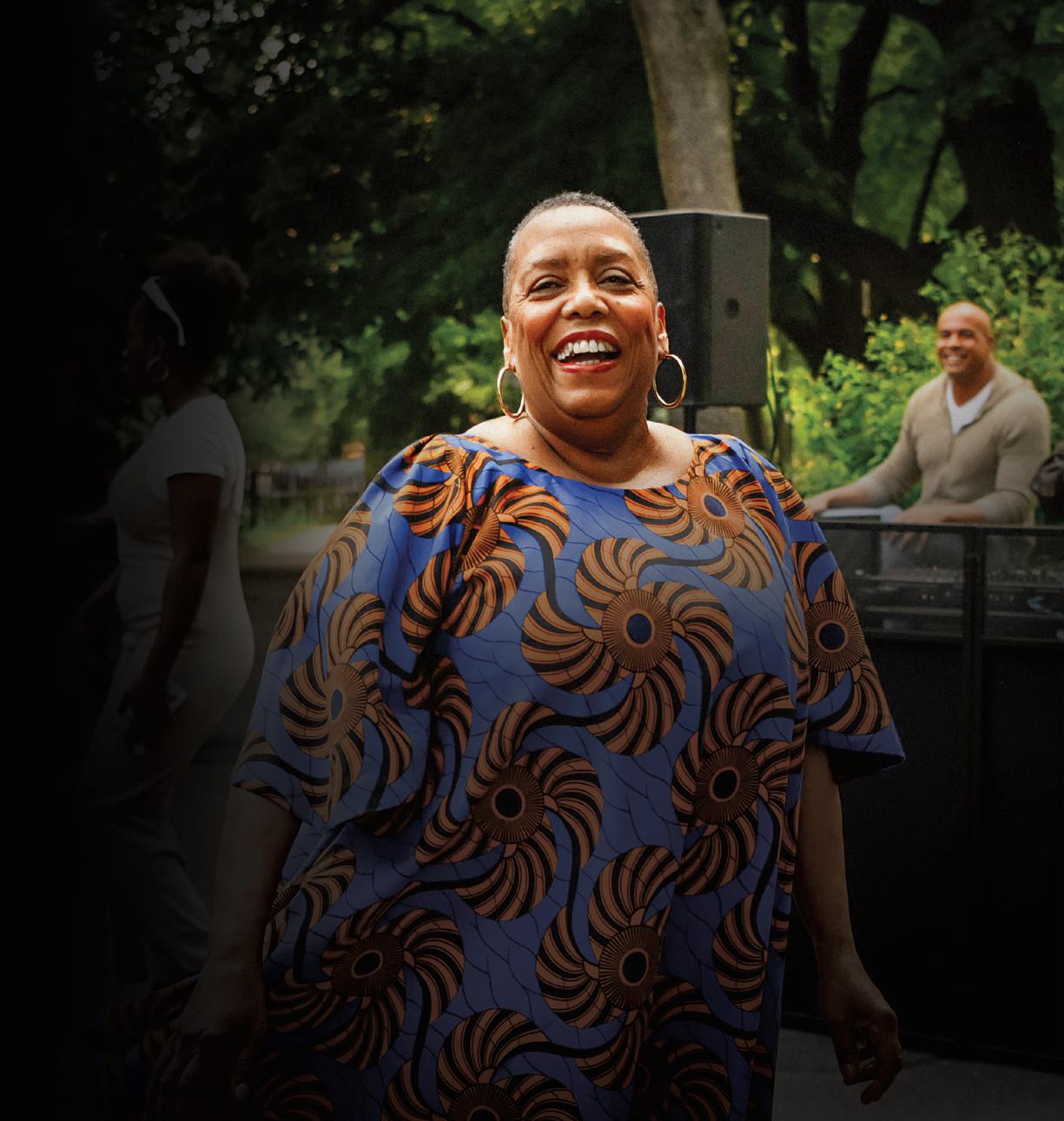









This workshop addresses the unique challenges faced by older Latino adults living with HIV in the United States. As advances in antiretroviral therapy extend life expectancy, this population is growing but remains largely invisible in public health research and services. Participants will explore the intersection of aging, HIV, and cultural stigma, as well as the systemic barriers to healthcare access, such as language, economic hardship, and mistrust. Through interactive discussions, group activities, and resource sharing, the session highlights the critical role of family, faithbased organizations, and community networks in reducing isolation and fostering resilience. The workshop emphasizes the importance of culturally competent care, aging-specific support, and policy reform to shift from a survival-based approach to one of dignity, inclusion, and thriving. Whether facilitated in English or Spanish, this session empowers communities and professionals to advocate for equitable and compassionate care for aging Latino adults with HIV.
Socio-Political Climate
Location: siLver Linden, 2nd FLoor LeveL, mezzanine Foyer
Presenters:
rev dr. WiLLie d. Francois, iii, Fountain baPtist cHurcH oF summit, nJ
In a time marked by rising political hostility, healthcare disparities, and renewed stigma around HIV, faith communities are uniquely positioned to be both sanctuary and catalyst.
This session will explore how spiritual practice, prophetic witness, and community care can co-exist and thrive in the face of systemic injustice. Drawing on sacred traditions and present-day activism, this session invites participants to consider how faith can offer rest without retreat, and how sacred rest can fuel sustained resistance. Attendees will engage in dialogue, reflection, and strategy-sharing to equip their ministries and communities for faithful, justice-driven responses to HIV amidst sociopolitical unrest.
Location: siLver Linden, 2nd FLoor LeveL, mezzanine Foyer
track: tHe science oF seXuaLity
LeveL: beginner
Presenters:
david mosqueda, Payasos L a, Los angeLes, ca cLaudio Hernandez, Payasos L a, Los angeLes, ca
This workshop explores the histories of kink and fetish underground cultures as they have related to the fight against HIV and AIDS from the 1810s to today. This workshop will be led by two prominent Latino leather men working in the field of HIV prevention and treatment to discuss how their understandings of sexuality and pleasure affect retention and
enrollment rates to prevention and treatment for HIV and STI services in Los Angeles. They will also discuss how their visibility as Latino men helps break taboos and stigmas surrounding the pleasures of sex and getting tested.
Location: union station, meeting LeveL 3 (m3)
tracK: BioMedicaL hiv PRevention
LeveL: interMediate
Presenter:
Peter ParK, aLcheMy, BrooKLyn, ny
People who inject drugs (PWID) account for 20% of new HIV infections and nearly 70% of new Hepatitis C (HCV) cases in the U.S., yet just one in three addiction treatment programs offers on-site testing for either disease. Alchemy supports STD clinics across the country to launch mobile clinics that meet PWID where they are: methadone clinics, addiction treatment centers, and other community-based sites. These programs provide rapid and confirmatory testing, harm reduction services, and in many cases, same-day treatment initiation for PrEP and HepC. The results are staggering. HCV positivity rates are up to 25x higher than in traditional clinic settings, evidence these programs reach people otherwise missed by the healthcare system. Peter Park, Alchemy’s Founder and Co-CEO, will share a playbook to launch a mobile clinic that treats hard-to-reach populations, serves as a revenue center for the clinic, and addresses this critical vector of HIV and HCV transmission.
Location: magnoLia, 2nd FLoor, mezzanine Foyer
track: Women aging WitH Hiv
LeveL: beginner
Presenter:
eLder antionettea etienne PWn-nys & Love aLive internationaL sanctuary oF Praise, brookLyn, ny
Lesbians and queer women aging with HIV face unique, often invisible struggles that extend far beyond the clinic. This workshop centers community knowledge, lived experience, and grassroots strategies to support aging with dignity, connection, and power. Participants will explore how systems of care often exclude or erase queer women, how stigma and isolation affect mental health, and how we can build affirming networks of support rooted in trust, identity, and resilience. We will lift up creative aging strategies designed by and for queer women living with HIV. This session is a call to action for service providers, advocates, and community leaders to co-create care models that honor aging as a process of wisdom, strength, and transformation outside of traditional family structures. SESSION 3
Location: congress, meeting LeveL 4 (m4)
track: dandeLions and LiFetime survivors
LeveL: intermediate
Presenter:
sHayLa knigHton-bLack, mPH- tHe LiFetime survivors netWork, taLLaHassee, FL
Lifetime Survivors have endured disrupted schooling, stigma-based job discrimination, and chronic health issues that hinder traditional career pathways. This workshop addresses how lifetime survivors can build thriving futures by developing career plans, pursuing education, navigating disclosure and building financial literacy. This session also explores systemic barriers to financial stability and provides strategies for empowerment, economic justice and long-term self- sufficiency. participants will hear from Lifetime Survivors who have created personal and professional success despite the odds.
Location: tuLiP, 2nd FLoor, mezzanine Foyer
tracK: systeMs change and worKForce deveLoPMent
LeveL: beginner
Presenters:
marianna o ’ree, Jsi, atLanta, ga
raHab goodWin, acg, cHester, Pa
HaroLd PHiLLiPs, nmac, WasHington, dc
Since 2020, GLAAD, in partnership with Gilead Sciences, has tracked the State of HIV Stigma in Today, nearly half of Ryan White HIV/AIDS Program (RWHAP) clients are over 50, and are impacted by co-occurring epidemics that amplify disproportionate disease burden. To address this, the Minority HIV/AIDS Fund (MHAF) and Health Resources and Services Administration (HRSA) HIV/AIDS Bureau (HAB) RWHAP Part F Special Projects of National Significance launched a syndemics initiative to link, retain, and re-engage people with HIV who are out of care. The MHAF addresses critical emerging needs and improves federal investments’ efficiency, effectiveness, and impact in HIV programs and services. This initiative prioritizes mental health, substance use, and other key non-health factors among six demonstration systems in implementing and evaluating a syndemic approach to HIV services. This workshop will present a pre-implementation toolkit to strengthen services and system-level supports. AIDS Care Group (ACG) in Chester, PA, will share their syndemic approaches to improve HIV care and outcomes.
Location: cHerry bLossom, 2nd FLoor, mezzanine Foyer
track: systems cHange and WorkForce deveLoPment
LeveL: beginner
Presenter:
marveLL terry ii, Funders concerned about aids, atLanta, ga
This workshop explores the pivotal role of intermediary funders in strengthening HIV systems, advancing workforce development, and advocating for communities often excluded from traditional philanthropy, particularly older adults living with HIV. Intermediary funders act as bridges between institutional donors and grassroots organizations, channeling resources, building capacity, and fueling policy change rooted in equity. Moderated by Funders Concerned About AIDS (FCAA), the panel will feature leaders from AIDS Funding Collaborative, AIDS United, and Southern AIDS Coalition, highlighting how intermediary models are building infrastructure, investing in advocacy, and transforming how HIV funding systems work—especially for aging populations and frontline providers.
Location: treasury, meeting LeveL 4 (m4)
track: community buiLding
LeveL: intermediate
Presenter:
Princess Jauan durbin, meHarry medicaL coLLege, atLanta, ga
Ballroom Health Equity in Action is an immersive, youth-developed workshop that brings the Atlanta Kiki Leaders Collective fellowship to life. Participants engage in a dynamic ballroom-inspired experience, navigating real-world scenarios highlighting structural determinants of health, HIV prevention, peer navigation, and community advocacy. Structured similarly to ballroom competitions, participants form “houses,” earning points through roleplay exercises, health equity decision-making challenges, and resource navigation simulations. This format uniquely centers youth voices, creating space for intentional conversation, practical learning, and community-informed advocacy strategies. By providing firsthand engagement with health inequities faced by LGBTQ+ youth in Southern ballroom communities, participants will gain tangible skills and insights, further developing leadership capacity and knowledge to enhance HIV prevention efforts and health equity outcomes within their communities.
Location: university oF dc, Meeting LeveL 1 (M1)
tracK: BioMedicaL hiv Prevention
LeveL: interMediate
Presenters:
dr hanna tesseMa, drPh, MPh, Msw, BLacK woMen’s Learning institute, washington, dc
dr deja Knight, Phd, MPh, Ma , johns hoPKins BLooMBerg schooL oF PuBLic heaLth, BaLtiMore, Md
dr brenice duroseau, PHd(c), msn, FnP-c, rnc-ob, aaHivs, JoHns HoPkins scHooL oF nursing, baLtimore, md
This workshop will examine barriers and facilitators to PrEP uptake among women of color, with a focus on long-acting biomedical prevention options. Despite PrEP’s effectiveness, Black women remain underrepresented among users due to provider disengagement and missed prevention opportunities. Research on cisgender and transgender women of color’s preferences for long-acting options is limited. Taking a lifespan approach, this session will explore PrEP needs at different life stages, including preliminary findings from a study on emerging and older adult Black cisgender women. Presenters will share qualitative research insights on women of color’s preferences, barriers, and facilitators for long-acting and oral formulations of PrEP. Additionally, we will be sharing research methodology based on the key constructs of the Diffusion of Innovations Theory to better understand what drives or slows the pace of adoption of long-acting biomedical innovations among women of color, specifically Black women.
Lifestyle-Based Interventions for Prevention and Management of HIV-Associated Comorbidities
Location: mint, meeting LeveL 4 (m4)
Presenters: add
mr ricHard adkins, dc center For aids researcH, icons and rising stars, WasHington, dc
raymond Jones, PHd, university oF aLabama, birmingHam, aL
mecHeLLe r sanders, PHd, university oF rocHester, rocHester, ny
marianna WetHeriLL, PHd, mPH, rdn, university oF okLaHoma, tuLsa, ok minnJuan FLournoy FLoyd, PHd, mPH, mba, nationaL institute oF diabetes and digestive and kidney diseases, niH, rockviLLe, md
Heiyoung Park, PHd, nationaL institute oF artHritis and muscuLoskeLetaL and skin diseases, niH, rockviLLe, md
mary masterson, PHd, ms, nationaL Heart, Lung, and bLood institute, niH, rockviLLe, md
vasundHara vartHakavi, dvm, PHd, nationaL institute on drug abuse, niH, rockviLLe, md
candace Webb, mPH, mcHes, nationaL institute on drug abuse, niH, rockviLLe, md
The HIV epidemic has evolved significantly since its onset in the early 1980s. Due to highly effective antiretroviral therapies (ART), HIV has changed from a fatal condition into a manageable, chronic condition, supporting longer life expectancies for many people with HIV (PWH). However, PWH are at higher risk of developing certain conditions, particularly metabolic dysfunction and disorders, and have a higher prevalence of chronic complications and comorbidities such as diabetes, cardiovascular disease, chronic kidney disease, and multimorbidity. These conditions may be influenced by HIV, long-term usage of ART, and/or accelerated aging. Evidence-based interventions such as those based on lifestyle changes can promote health awareness and outcomes at the community and/or individual level. This workshop will highlight recent NIH-funded research including effectiveness and implementation science research, meant to support the prevention and management of HIV-associated comorbidities through effective lifestyle-based strategies/ interventions, with the ultimate goal to improve health outcomes for PWH.
Location: sHaW, meeting LeveL 3 (m3)
Presenters:
PauL kaWata, nmac, WasHington d c
mark Harrington, treatment action grouP, neW york, ny
moises agosto, nmac, WasHington d c
steven saWye, Pocaan, seattLe, Wa
danieL casteLLanos, Latino commission on aids, neW york, ny
russeLL camPbeLL, Hanc, seattLe, Wa
dazon diXon-diaLLo, sisterLove, atLanta, ga
Lynda dee, aids action baLtimore, baLtimore, md
In 1981 the Centers for Disease Control and Prevention (CDC) reported unusual cases of pneumonia and Kaposi’s sarcoma among gay men. Over the past forty-four years, the world has witnessed devastating losses of life as a result of HIV. During this same period of loss, there has been tremendous progress as a result of advocacy and research. This forty-fouryear journey has come with a range of emotions, fears, hopes, lessons learned and a better understanding of community and solidarity.
This workshop will feature individuals who will share their experiences from the pre-HIV/AIDS days to the present. Panelists will highlight their contributions to the movement and how they navigated the uncertainty, advances in HIV research and the promises of the ending of the HIV epidemic. Workshop attendees will be invited to participate and share their perspectives.
Location: scarLet oak, 2nd FLoor, mezzanine Foyer
track: community buiLding
Presenters:
micHaeL everett, edd, intimacy in coLor, FayetteviLLe, ga bianca Ward, eXternaL aFFairs community Liaison, viiv, HyattsviLLe, md
In times of rapid change, this workshop will focus on what’s truly within our control, drawing on the unique strengths and potential each of us carries to advance public health, advocacy, innovation, and community impact. Together, we’ll explore how our individual capabilities combine to create powerful collective momentum. We’ll honor the dedication of the HIV workforce and channel our shared drive to reconnect, refine, and broaden access to HIV prevention and care. Whether you’re new to this work or a long-standing advocate, join ViiV to pause, reflect, and rise with renewed purpose through art, story, and community.
Location: cHinatoWn, meeting LeveL 3 (m3)
track: advancing researcH and treatment For oLder aduLts
LeveL: intermediate
Presenters:
JeFF tayLo, martin deLaney reversing immune deFiciency coLLaboratory & Hiv+aging researcH ProJect, PaLm sPrings, ca Lynda dee-- deLaney aids researcH enterPrise & aids action, baLtimore, md
We will learn the current landscape of HIV cure research: where are we now? Where are we going? And what do we need to get there? We will explore what long-term HIV survivors want and need in a cure, and in the research needed to get there. We’ll also look at what a cure could mean for long-term survivors and is it something they actually want or need?
Location: george washington, Meeting LeveL 1 (M1)
tracK: BioMedicaL hiv Prevention
LeveL: Beginner
Presenters:
Jasmine Peterson, mPH, can community HeaLtH, tamPa, FL
Wyatt deiHL, mPH, can community HeaLtH, tamPa, FL
What if HIV prevention centered pleasure, not just risk? This session explores how public health professionals can reframe PrEP (Pre-Exposure Prophylaxis) education through a sex-positive lens using evidence-based models like the Health Belief Model, Social Cognitive Theory, and harm reduction. By emphasizing autonomy, intimacy, and empowerment, “PrEP as Pleasure” shifts prevention from fear-based messaging to affirming, person-centered conversations.
Attendees will learn strategies for integrating pleasure into biomedical prevention education, improving PrEP uptake and engagement, especially among LGBTQ+ individuals, youth, and communities of color. Real-world examples will illustrate how this approach increases risk perception accuracy, self-efficacy, and sustained behavior change.
Location: mount vernon square, meeting LeveL 3 (m3)
Presenters:
PHiLL russeLL, kumukaHi HeaLtH + WeLLness, HiLo, Hi
kekoa keaLoHa, HaWaii HeaLtH & Harm reduction center, HonoLuLu, Hi kunane dreier, HaWaii HeaLtH & Harm reduction, HonoLuLu, Hi
LauraLi riLey, aLaska native tribaL HeaLtH consortium, ancHorage, ak amanda reed, muskogee creek nation, muskogee, ok taryn Watson, indian HeaLtH service, PHoeniX, az
ceLena gHost dog, nortHWest PortLand area indian HeaLtH board, PortLand, or biLL HaLL, seattLe indian HeaLtH board, seattLe, Wa HannaH gumLickPuk, aLaska native tribaL HeaLtH consortium, ancHorage, ak
This session will highlight the role of patient navigators, case managers, and community health representatives in connecting Indigenous community members to testing, treatment, and supportive services. Panelists will share success stories and practical approaches for overcoming systemic barriers and ensuring continuous engagement in care. And explore how Indigenous communities are expanding access to HIV and STI prevention through PrEP and DoxyPEP. Panelists will share culturally relevant outreach strategies, discuss challenges and successes in rural and urban settings, and offer guidance on integrating these tools into broader linkage-to-care efforts.
4:15 pm - 6:15 pm
Session 4: Workshops
Location: siLver Linden, 2nd FLoor, mezzanine Foyer
tracK: woMen aging with hiv
LeveL: advanced
Presenters:
Freda jones, Lotus (Loving ourseLves through unity and strength), atLanta, ga
Kennedi LowMan, Lotus (Loving ourseLves through unity and strength), atLanta, ga
As women with HIV age, they face a dual challenge: navigating the complex biological and emotional transition of menopause while managing a lifelong chronic condition. Yet menopause is rarely addressed in HIV care settings. This interactive workshop explores the intersection of HIV and menopause, shedding light on early onset, intensified symptoms, overlooked mental health concerns, and gaps in clinical support.
Participants will gain practical tools to identify and respond to menopausal symptoms in HIV-positive women, hear directly from lived experience, and discuss how stigma, racism, and gender inequality further complicate care. Through storytelling, evidence-based insights, and collaborative dialogue, this session empowers providers, advocates, and community leaders to integrate menopause awareness into comprehensive HIV care.
Location: chinatown, Meeting LeveL 3 (M3)
tracK: advancing research and treatMent For oLder aduLts
LeveL: interMediate
Presenters:
cLeMens steinBocK, new yorK state dePartMent oF heaLth/heaLth research inc., new yorK, ny aBigaiL BaiM-Lance, Mount sinai Beth israeL, new yorK, ny archana asundi, Boston MedicaL center, Boston, Ma iván Báez santos, centro ararat, inc., Ponce, Pr erin BurK-Leaver, coLorado heaLth networK inc., denver, co caryn gee Morse, waKe Forest university heaLth sciences, winston-saLeM, nc rich dunviLLe, norc at the university oF chicago, atLanta, ga
HRSA Ryan White HIV/AIDS Program (RWHAP) provides a comprehensive system of HIV primary medical care, medications, and essential support
services for low-income people with HIV. HIV primary medical care provided through the RWHAP has adapted over time to address the emerging needs of people with HIV. Nearly half the people served by the RWHAP are over 50 years old. As people with HIV age, their medical needs change. Frailty, polypharmacy, and changes in cognition are examples of medical needs and geriatric conditions that people aging with HIV experience. RWHAP providers can address frailty, polypharmacy, and cognitive health through the provision of HIV primary care. During this workshop, RWHAP Part F Special Projects of National Significance (SPNS) Aging Initiative demonstration sites will share how they screen and manage frailty, polypharmacy, and cognitive health among their clients; and discuss how they changed their interventions and activities to ease or facilitate implementation.
Location: scarLet oak, 2nd FLoor, mezzanine Foyer
track: comorbidities, and muLtiPLe cHronic conditions oF tHose aging WitH Hiv
LeveL: beginner
Presenters:
samir HoLLiday, immunodeFicieny center at JeFFerson einstein, PHiLadeLPHia, Pa
coty murPHy, immunodeFicieny center at JeFFerson einstein, PHiLadeLPHia, Pa
nicoLa d’souza, immunodeFicieny center at JeFFerson einstein, PHiLadeLPHia, Pa
sHakeera Wynne, immunodeFicieny center at JeFFerson einstein, PHiLadeLPHia, Pa
In the United States, over 50% of people living with HIV (PLWH) are now over the age of 50, and this age group accounted for 16% of new HIV diagnoses in 2022 (HIV.gov, 2024). The Immunodeficieny Center (IDC) at Jefferson Einstein Philadelphia serves 1019 patients and the demographics reflect the overall population of PLWH in the US: 52% of patients at the IDC are over 50 and this has remained consistent over the last 5 years. This demographic shift required the development of tailored clinical strategies and workforce training to meet the needs of older adults living with HIV.
In response, the IDC implemented an Aging Readiness Protocol specifically designed for patients aged 50 and older. This comprehensive protocol includes age-stratified assessments, in-home service coordination, and non-medical interventions aimed at increasing socialization and combating isolation, key factors in promoting health and well-being among aging PLWH.
Location: union station, meeting LeveL 3 (m3)
track: tHe science oF seXuaLity
LeveL: intermediate
Presenters:
kaniya WaLker, Heart to Hand inc. WasHington dc tyree WiLLiams, bonds, Petersburg, va
This workshop centers the sexual empowerment and erotic wellness of transmen and transwomen of color—groups often erased from conversations around pleasure, desire, and HIV. With biomedical tools like PrEP, PEP, and U=U changing what’s possible, it’s time to reclaim our bodies and narratives. Created by and for Black and Brown trans people, this session explores how gender affirmation, trauma, and cultural resilience impact pleasure and intimacy. Through open dialogue and community-based strategies, participants will gain tools to support safety, self-expression, and sexual liberation.
Location: congress, meeting LeveL 4 (m4)
track: ending tHe ePidemic – neXt stePs
LeveL: intermediate
Presenters:
dr cary goodman, tHe baLm in giLead, inc., ricHmond, va
J. donte Prayer, tHe center For bLack HeaLtH and equity, cHarLotte, nc rev brenton m brock, mdiv, university oF tHe district oF coLumbia, WasHington, dc miriam WHiteHead, system: sHare your story to emPoWer many, gynn oak, md
Many have walked away from places of worship carrying deep spiritual wounds. This session will create a compassionate and brave space to name and begin the healing process from the trauma experienced in religious settings. Grounded in truth-telling and resilience, this session will center the lived experiences of those who have survived spiritual rejection, stigma and shame finding ways to reclaim faith, joy and self-worth. Through testimonies and interactive dialogue, we will explore how faith communities can become places of healing rather than harm.
Location: georgetoWn, meeting LeveL 1 (m1)
Presenters:
trina scott, giLead community Liaison team, Foster city, ca antHony gutierrez, giLead community Liaison team, Foster city, ca
Learn about an HIV treatment option and meet people living with HIV. Hear their stories, ask them questions, and learn how they rise above their HIV diagnosis while being over 50.
Location: treasury, meeting LeveL 4 (m4)
track: community buiLding
LeveL: intermediate
Presenters:
rev carmarion d anderson-Harvey, tHe reunion ProJect, birmingHam, aL
mark s king, my FabuLous disease, atLanta, ga
Larry bryant, Jr., tHe reunion ProJect, neW york city, ny
JeFF berry, tHe reunion ProJect, cHicago, iL
This unique workshop experience (hosted by The Reunion Project, an alliance of HIV long-term survivors) addresses the realities of aging with a simple question: how do we properly process what aging takes from us in order to make room for what comes next for us? Facilitated by Rev. Carmarion D. Anderson-Harvey and HIV survivor Mark S. King (My Fabulous Disease), the workshop will focus on four areas: our physical bodies, our sex lives, our sense of community, and our country. Through dialogue and interactive exercises, attendees will discuss those changes and then go a step further by planning for what comes next in our lives - including the gifts that aging could have in store for us. Whether you are a long-term HIV/AIDS survivor or someone working in the field feeling the effects of aging, this candid workshop will provide a different way of viewing our common human journey.
Location: magnoLia, 2nd FLoor, mezzanine Foyer
track: biomedicaL Hiv Prevention
LeveL: beginner
Presenter: susie croWe, PHarmd, mPH, aLcHemy, indianaPoLis, in
In-house pharmacists are an underutilized resource in the fight to end HIV. In states where pharmacists are authorized to prescribe PrEP under Collaborative Practice Agreements (CPAs), clinics can reduce time to initiation, improve retention, and lower the number of patients lost in referral loops. Pharmacist-led PrEP starts offering a same-day, streamlined pathway that meets patients where they are—especially critical for populations facing stigma, inconsistent access, or provider shortages. At Alchemy, we’ve implemented this model across diverse clinic settings, including an FQHC in Indiana and an STD clinic in Nevada. Pharmacists assess eligibility, conduct point-of-care HIV testing, initiate PrEP, and provide follow-up, all within a single encounter. In this session, Alchemy’s Founder and Chief Pharmacist Susie Crowe will share lessons learned from operationalizing this model, including workflow design, CPA setup, and financial sustainability. Attendees will gain actionable tools for leveraging in-house pharmacy teams to drive HIV prevention.
Location: george washington, Meeting LeveL 1 (M1)
tracK: dandeLions and LiFetiMe survivors
LeveL: intermediate
Presenter:
PorcHia dees, LiFetime survivors netWork, HigHLand, ca
This session will explore the intergenerational dynamics of living with HIV, with a focus on those living with perinatally acquired HIV or those who were diagnosed in early childhood and their parents. This facilitated conversation will bring together multiple generations of people living with HIV– parents from the early HIV epidemic and their adult children who will offer insights into their experiences. This workshop amplifies generational conversations around living with HIV, seeks to showcase the perspectives of women, men, and gender-diverse people living with HIV to foster a greater understanding, reduce stigma, and inform more inclusive health care practices.
Location: cherry BLossoM, 2nd FLoor, Mezzanine Foyer
tracK: systeMs change and worKForce deveLoPMent
LeveL: beginner
Presenter:
robin Pereira, nationaL netWork to end domestic vioLence (nnedv), WasHington, dc
This interactive workshop invites case managers, service providers, and community members to explore a unique, survivor-informed toolkit on HIV disclosure, designed specifically for providers, especially those working in the field of intimate partner violence (IPV). Developed by women living with HIV through Positive Women’s Network (PWN) in partnership with the National Network to End Domestic Violence (NNEDV), this toolkit centers the lived experiences and expertise of women navigating both IPV and HIV. Participants will gain insight into how to use the toolkit in trauma-informed, clientcentered ways that prioritize safety, autonomy, and dignity. Guided by subject matter experts who are themselves women living with HIV and IPV survivors, the session offers a powerful opportunity to listen, learn, and enhance practice through a lens of empowerment and equity. Join us to deepen your understanding and support disclosure in ways that truly honor survivor voices.
Location: tuLiP, 2nd FLoor, Mezzanine Foyer
Presenters:
racHeL kLein, tHe aids institute, tamPa, FL
stePHanie Hengst, tHe aids institute, tamPa, FL
danieL castiLLo, Latino commission on aids, neW york, ny
kate mcmanus, ryan WHite Provider
Federal policies and public health infrastructures often operate in the background; however, they impact the navigation of healthcare systems and shape the care received. As the growing population of people aging with HIV, 55 and above, experience challenges inherent to accelerated and accentuated aging, the health policies and systems must become responsive to address their unique needs.
This workshop will examine the full spectrum of interconnected policy and infrastructure factors influencing the care of individuals aging with HIV. It will cover macro-level policies such as Medicare, Medicaid, and the Ryan White HIV/AIDS Program, the meso-level aspects of state and county public health infrastructures, and the micro-level considerations of funding, resources, and workforce at the clinical level. This presentation will highlight key data and analysis of the complex healthcare system and engage participants in discussions about policy and infrastructure reforms designed to serve better individuals aging with HIV.
Location: dogWood, 2nd FLoor, mezzanine Foyer
tracK: the science oF seXuaLity
LeveL: intermediate
Presenters:
kimberLy canady, conversations WitH kim, LLc; brookLyn, ny
oLivia g. Ford, tHe WeLL ProJect, brookLyn, ny
tiommi Luckett, transgender LaW center, LittLe rock, ar bridgette Picou, Lvn, acLPn, tHe WeLL ProJect, PaLm sPrings, ca
tonia Poteat, PHd, Pa -c, mPH, duke university scHooL oF nursing, durHam, nc
All women across the gender spectrum and the lifespan, including women living with HIV, have the potential, and the right, to feel sexy. The World Health Organization, United Nations Declaration on Human Rights, and other global bodies have recognized the ability to have pleasurable, safe sexual experiences as a central aspect of health and wellbeing. Not only does it feel good, but experiencing sexual pleasure can confer emotional and physical benefits including lower stress, improved sleep, and more.
However, we have a long way to go in making these assertions a reality for all women. Healthcare providers must be equipped to discuss pleasure and HIV prevention with women of all ages as part of their overall wellness. Through meaningful dialogue rooted in shared decision-making and respect, providers can normalize discussions about HIV and integrate prevention into efforts to support women’s health – including their sexual health, pleasure, and bodily autonomy. SESSION 4
Location: archives, Meeting LeveL 4 (M4)
tracK: coMMunity BuiLding
LeveL: intermediate
Presenters:
naomi gasPard, tHe aids institute, rockviLLe, md
mackenzie FLynn, aids united, WasHington, dc
Sexual health is central to HIV advocacy. All individuals, regardless of their age, have the right to make informed, autonomous decisions about their reproductive health. For people with HIV, these decisions can be more complex. Now, as HIV drugs are allowing many to lead longer, healthier lives, and as over 50% of people living with HIV in the U.S. are aged 50+, discussions about getting and being older with HIV need more attention – and that includes the disregard for the sexual health of people along the HIV continuum of care. This presentation will help identify gaps in the care and resources available for people aging with HIV, which ultimately lead to stigma as well as community and structural barriers, and will lead into a panel discussion with CBOs doing this work to discuss lessons learned and best practices for addressing the unique intersections of HIV, sexual health, and aging.
Location: university oF dc, Meeting LeveL 1 (M1)
tracK: aging with hiv - PoLiticaL deteRMinants of heaLth
LeveL: advanced
Presenter:
tramour WiLson, Pride center oF maryLand, baLtimore, maryLand
This workshop explores the intersection of race, sexuality, gender identity, and aging through the lived experiences of Black LGBTQ+/SGL individuals aging with HIV. Drawing on community narratives and frameworks like
Raymond Jetson’s Aging While Black, the session reimagines aging not just as decline, but as a space for legacy-building, political empowerment, and systemic change. Participants will examine how public policy, systemic racism, healthcare access, and economic inequity shape aging trajectories for Black LGBTQ+/SGL people living with HIV.
This interactive session highlights disparities while amplifying communityled models of resistance and resilience. Through policy analysis, storytelling, and group dialogue, attendees will engage strategies for coalition-building, affirming care models, and advocacy rooted in cultural and generational wisdom. Participants will leave equipped to challenge the political determinants that limit healthy aging and co-create pathways that honor the power of Black LGBTQ+ elders.
Location mint, meeting LeveL 4 (m4)
track: biomedicaL Hiv Prevention
LeveL: beginner
Presenter:
kyLe gordon, Hvtn Los angeLes, ca
The National Pan-Hellenic Council (NPHC), comprising nine historically Black Greek-letter fraternities and sororities, has long served as a cornerstone of civic engagement, leadership development, and community mobilization within African American communities. The organizations of the NPHC are uniquely positioned to address evolving public health challenges—including the HIV epidemic—through their embedded community trust, intergenerational networks, and sustained commitment to social justice in communities with Ending the Epidemics priority jurisdiction. This panel assembles NPHC public health advocates of the HIV workforce, to examine their experiences in how their respective organizations are uniquely equipped to respond to emerging public health threats, including HIV prevention, treatment, and healthcare access.
6:30 pm - 7:30 pm
AFFINITY SESSIONS
PROCEED (Invitation Only)
Location: siLver Linden, 2nd FLoor, mezzanine Foyer
GMoC Mentors Meeting (Invitation Only)
Location: maPLe, 2nd FLoor LeveL, mezzanine Foyer
7:00 am7:45 am AM PRAISE
Location: Honeysuckle, 2nd Floor, Mezzanine Foyer
8:00 am3:00 pm
9:00 am11:00 am
REGISTRATION OPEN
Location: Liberty Ballroom Foyer, Meeting Level 4 (M4)
Session 5 Workshops
HIV and Aging: Understanding the Policy and Legal Landscape
Location: Silver Linden, 2nd Floor, Mezzanine Foyer
Aging with Dignity: Building a Community-Led, Status-Neutral LAI ART Program
Location: Chinatown, Meeting Level 3 (M3)
Pleasure with Purpose: Owning Desire, Identity, and Joy
Location: Dogwood, 2nd Floor, Mezzanine Foyer
Military Veteran Voices: Building HIV-Inclusive Communities Through Dialogue
Location: Archives, Meeting Level 4 (M4)
Centering Black Women in PrEP Access and HIV Prevention
Location: Georgetown, Meeting Level 1 (M1)
HIV and Aging: Centering Disability Justice and Complex Chronic Illnesses
Location: Marquis Salon 12, Meeting Level 2, (M2)
Aging with HIV, Wellness Model for Black Heterosexual Cis Women
Location: Union Station, Meeting Level 3, (M3)
10:00 am5:00 pm
EXHIBIT HALL OPEN
Location: Independence and Liberty Ballrooms, Meeting Level 4 (M4)
Parenting While Positive: Navigating Fertility, Family Planning, and Fear
Location: George Washington, Meeting Level 2 (M2)
Strengthening Collaborations Between Grassroots Organizations and Bigger Institutions Location: Magnolia, 2nd Floor, Mezzanine Foyer
Listen Up: How Music Artists Shape HIV Prevention & Storytelling
Location: Treasury, Meeting Level 4 (M4)
Women Leading Change: Local Action, National Impact
Location: Mint, Meeting Level 4 (M4)
Equity in Aging: Tailored HIV Care for Older Women
Location: Cherry Blossom, 2nd Floor Level, Mezzanine Foyer
The HIV+ Aging Research Project (HARP-PS)
Location: Tulip, 2nd Floor, Mezzanine Foyer
Understanding Perspectives of HIV Cure Trial Designs which Include an Analytical Treatment Interruption (ATI)
Location: Mount Vernon Square, Meeting Level 3 (M3)
Lunch 11:30 am1:30 pm
Timeline of Innovation: Moments that Changed HIV, Presented by Gilead
Location: Marquis Ballroom, Meeting Level 2 (M2)
1:30 pm2:00 pm
2:00 pm4:00 pm
Presentations
POSTER PRESENTATIONS
Location: M1 Foyer, Meeting Level 1 (M1)
Session 6 Workshops
Community Mapping for Impact: Strengthening HIV Outreach with Aging Populations
Location: Treasury, Meeting Level 4 (M4)
Getting to Zero, “There is Nothing for Us Without Us”!!!
Location: Congress, Meeting Level 4 (M4)
Outside. Inside: A Fresh Approach to Engage Southern Rural Communities
Location: Chinatown, Meeting Level 3 (M3)
Start-Stay-Return: An Innovative Approach for Continuous Engagement and Reengagement in HIV Care
Location: Georgetown, Meeting Level 1 (M1)
Sankofa Rising: Honoring Legacy and Leadership of Black Aging Women
Location: Archives, Meeting Level 4 (M4)
Aging with Power: Addressing Menopause, Weight, HIV, and Bone Health
Location: Magnolia, 2nd Floor, Mezzanine Foyer
Dandelions Movement: The Journey to Lifetime of Liberation
Location: Cherry Blossom, 2nd Floor, Mezzanine Foyer
Wisdom in the Body: Healing What Talk Therapy Can’t Reach
Location: Shaw, Meeting Level 3 (M3)
6:30 pm7:30 pm AFFINITY SESSIONS
Innovative Mobile-Based Biomedical HIV Prevention/Treatment for Asylum Seekers in NYC
Location: Dogwood, 2nd Floor, Mezzanine Foyer
Transforming Care for Adults Aging with HIV
Location: Union Station, Meeting Level 3 (M3)
Community Model: Addressing Employment Needs of People Living with HIV
Location: Scarlet Oak, 2nd Floor, Mezzanine Foyer
Sexual Pleasure, HIV & STI Prevention Across Generations
Location: George Washington, Meeting Level 1 (M1)
Saving Ourselves: Transgender Advocates Navigating HRT, PrEP and TaSP
Location: Mount Vernon Square, Meeting Level 3 (M3)
Ageism, HIV, and the Overlooked Impact of HIV Criminalization
Location: Silver Linden, 2nd Floor, Mezzanine Foyer
Taking It Into Our Own Hands: Policy Tools for Gay Men of Color in Today’s Political
Location: Tulip, 2nd Floor, Mezzanine Level
Redemptive Masculinities: Exploring LGBTQIA+ Allyship among CisHet Men in Faith Spaces
Location: Mint, Meeting Level 4 (M4)
Sisterhood & Survival: Our Lifelong Legacy of Power and Perseverance
Location: Gallaudet, Meeting Level 1 (M1)
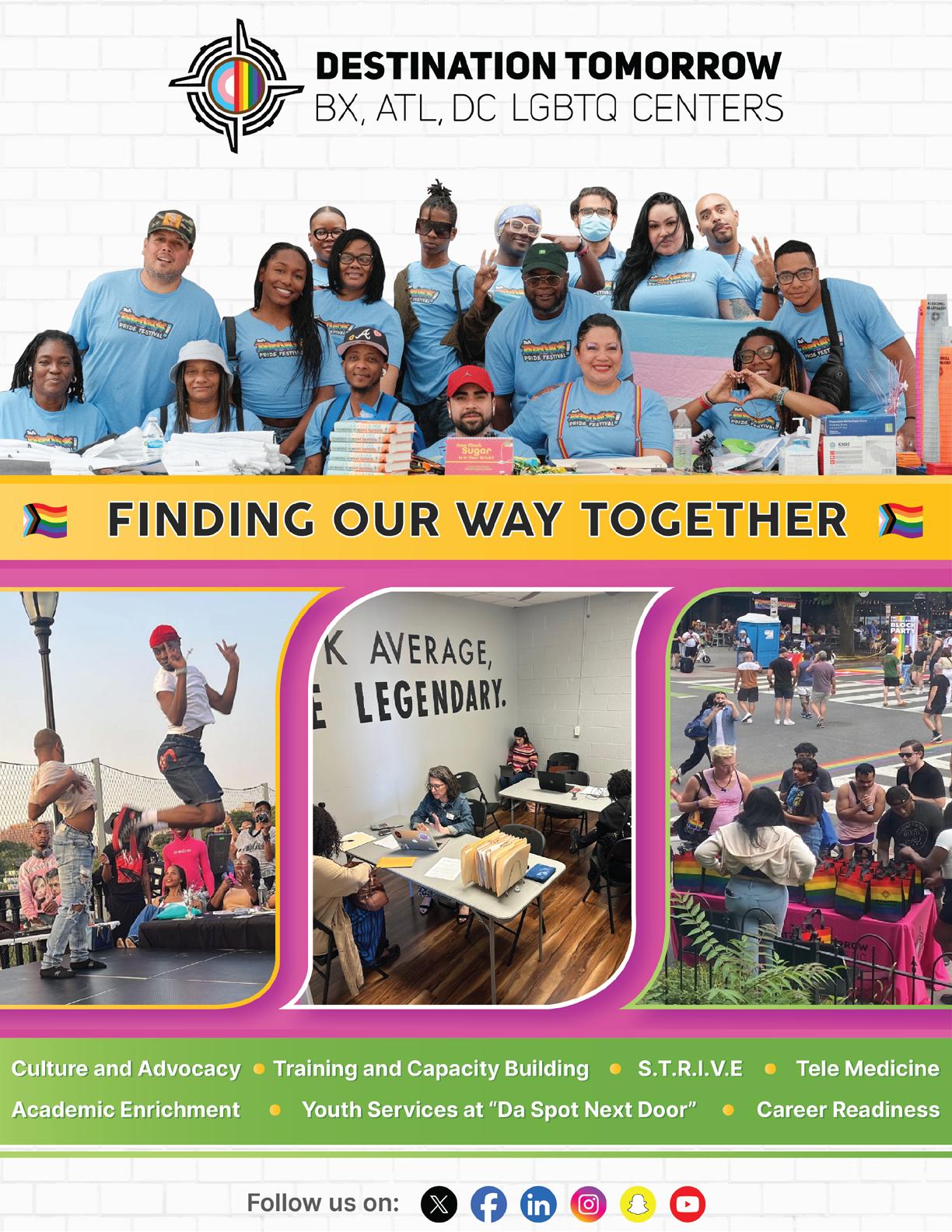
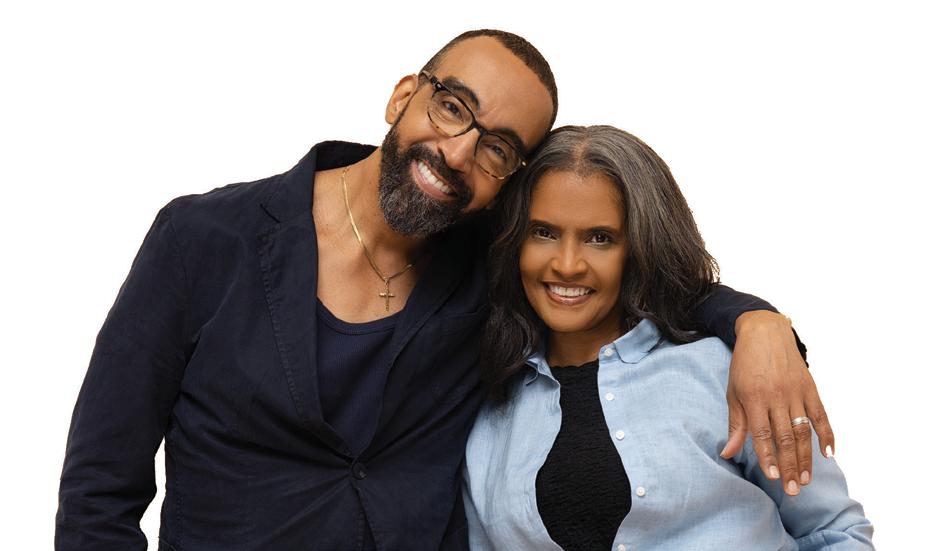
As the pioneer in long-acting injectable HIV treatment and prevention, we believe our medicines and pipeline have an essential role to play in ending the HIV epidemic. Our commitment to the community is unwavering and we won’t stop innovating until we meet the unique needs of all those affected by HIV.
Learn more about our commitment
SATURDAY
All times Eastern Standard Time (EST). See app for full Institute and Workshop descriptions and up-to-date information.
7:00 am - 7:45 am
AM Praise
AM Praise
Location: Honeysuckle, 2nd Floor, Mezzanine Foyer
8:00 am - 3:00 pm
Registration
Registration Open
Location: Liberty Ballroom Foyer, Meeting Level 4 (M4)
9:00 AM - 11:00 am
Session 5: Workshops
HIV and Aging: Understanding the Policy and Legal Landscape
Location: tuLiP, 2nd FLoor, mezzanine Foyer
tracK: aging with hiv - PoLiticaL deterMinants oF heaLth
LeveL: interMediate
Presenters:
terri L wiLder, sage, MinneaPoLis, Mn
ronaLd johnson, us PeoPLe Living with hiv caucus, siLver sPrings, Md
KirK grishaM, georgetown university o’neiLL institute For nationaL and gLoBaL heaLth Law, washington, dc
Kae greenBerg, the center For hiv Law and PoLicy, PhiLadeLPhia, Pa
This interactive session will introduce two key resources supporting People Living and Aging with HIV (PLAHIV): Aging & HIV, a legal primer by CHLP, and the O’Neill Institute’s report Better Integration Between HIV and Aging Systems Is Critical. These resources outline legal and policy barriers faced by PLAHIV and offer strategies to support aging with dignity. Presenters will review legislation and policy recommendations that expand equitable access to prevention and care while ensuring services are culturally appropriate. Topics include systemic service barriers, innovations in care delivery, and improvements to quality of life for PLAHIV. Emphasis will be placed on the Meaningful Involvement of People with HIV/AIDS (MIPA) in shaping effective policies. Through brief presentations and open discussion, attendees will explore how community collaboration can advance autonomy, care access, and dignity for PLAHIV.
SESSION 5 WORKSHOPS
Location: cHinatoWn, meeting LeveL 3 (m3)
track: advancing researcH and treatment For oLder aduLts
LeveL: intermediate
Presenter: meLissa curry, abounding ProsPerity inc., daLLas, tX
Jacobi Hunter-WrigHt, abounding ProsPerity inc., daLLas, tX
yoLonda beLL, abounding ProsPerity inc., daLLas, tX
Are you ready to transform HIV prevention and care for People Aging with HIV in your community? Join us for a hands-on workshop focused on building a community-led, status-neutral model using Long-Acting Injectable (LAI) ARTs tailored to older adults living with or vulnerable to HIV. As people age with HIV, they often face challenges like comorbidities, isolation, and medication fatigue. Abounding Prosperity Inc.’s approach removes the divide between prevention and treatment, offering equitable, stigma-free care. This session will provide you with practical tools, expert guidance, and funding strategies to implement a sustainable LAI ART program rooted in the lived experiences of older adults.
Location: dogWood, 2nd FLoor, mezzanine Foyer
track: biomedicaL Hiv Prevention
LeveL: beginner
Presenters:
stePHanie camPos, Proceed, inc nctsta (nationaL center For training, suPPort and tecHnicaL assistance), eLizabetH, nJ
brenda cruz scotton, Proceed, inc nctsta (nationaL center For training, suPPort and tecHnicaL assistance), eLizabetH, nJ
giseLe Pemberton, Proceed, inc nctsta (nationaL center For training, suPPort and tecHnicaL assistance), eLizabetH, nJ
Older adults aging with HIV often face dual invisibility—overlooked in conversations about both sexual pleasure and aging. This interactive workshop invites participants to shift that narrative by centering the voices, identities, and desires of people aging with HIV. Through a sex-positive, person-centered lens, the session will explore how ageism, stigma, and a narrow focus on disease management in healthcare settings can unintentionally overlook or silence sexual expression in later life. Participants will engage in critical dialogue and interactive activities that illuminate how pleasure, intimacy, and sexual identity remain vital throughout the lifespan. We will explore language, perspectives, and practices that affirm pleasure, build connection, and celebrate sexual self-determination in older age. Rather than centering HIV solely as a medical condition, this session is designed to bring conversations about sexual pleasure and relationships to the forefront—restoring wholeness and agency to how we talk about aging with HIV.
Location: arcHives, meeting LeveL 4 (m4)
track: community buiLding
LeveL: beginner
Presenters:
Louis sHackeLFord, active air Force reserve, Hiv vaccine triaLs netWork (Hvtn), seattLe, Wa
dr eLiJaH nicHoLas, air Force veteran, nationaL trans visibiLity marcH, atLanta, ga
dr tatyana moaton, army veteran, san Francisco community HeaLtH center, san Francisco, ca
dr dontá morrison, air Force veteran, XHaLe WitHin, Los angeLes, ca cHristoPHer Hucks-ortiz, air Force veteran, Hiv Prevention triaLs netWork, seattLe, Wa
This dynamic 90-minute panel discussion will center the lived experiences of veterans across the spectrum of gender, sexuality, and HIV status, with a focus on building inclusive, veteran-affirming HIV communities. Serving on our panel are Air Force veterans Dr. Elijah Nicholas and Christopher Hucks-Ortiz, and Army veterans Dr. Tatyana Moaton and Dr. Dontá Morrison, and moderated by Active Air Force Reservist Louis Shackelford. The session will highlight stories of resilience, stigma, community, and identity. Attendees will hear directly from veterans about navigating military culture, health care systems, and life after service. Emphasis will be placed on how diverse voices can shape community-building efforts, inform HIV-related programming, and challenge the dual stigmas faced by veterans. Attendees will leave with actionable insights on fostering inclusive, veteran-centered HIV initiatives.
Location: georgetoWn, meeting LeveL 1 (m1)
track: biomedicaL Hiv Prevention
LeveL: advanced
Presenters:
Jersy
Despite the proven effectiveness of Pre-Exposure Prophylaxis (PrEP) in preventing HIV, uptake remains disproportionately low among Black cisgender women—a population at heightened risk for HIV acquisition. This interactive workshop explores the findings from the dissertation The Underutilization of PrEP as HIV Prevention in Black Cisgender Women at Risk for HIV Acquisition and offers participants a deeper understanding of the structural, cultural, and healthcare-related barriers that limit access and utilization.
Participants will examine innovative, community-informed strategies designed to increase PrEP awareness, reduce stigma, and promote culturally responsive care. The session will include discussion of provider engagement models, trauma-informed outreach, and peer-driven approaches that center they lived experiences of Black women. Attendees will leave with practical tools to inform PrEP programming, service delivery, and advocacy efforts aimed at eliminating disparities in biomedical HIV prevention.
Location: marquis saLon 12, meeting LeveL 2 (m2)
track: comorbidities, and muLtiPLe cHronic conditions oF tHose aging WitH Hiv
LeveL: beginner
Presenter:
gabrieL san emeterio, strategies For HigH imPact/Long covid Justice, neW york, ny
This workshop explores quality of life through a disability justice framework. Most care systems accommodate permanent disabilities but fail to support dynamic disabilities. People living with HIV (PLHIV), service providers, and advocates must understand ableism and disability with nuance, recognize it as political, and address the evolving needs of PLHIV.
The UN reports that people with disabilities are more likely to be exposed to HIV, and most PLHIV will experience disability, either episodic or permanent. The COVID-19 pandemic has heightened this vulnerability, as PLHIV are two to four times more likely to develop Long COVID. Marginalized communities, including transgender people and people of color, are disproportionately affected. Conditions like frailty may lead to permanent disability, while Long COVID and other infection-associated complex chronic conditions, such as ME/CFS, dysautonomia, etc., cause fluctuating impairments in daily living. To ensure equitable support, care systems must acknowledge and accommodate dynamic disabilities.
SATURDAY
Location: union station, meeting LeveL 3 (m3)
tracK: woMen aging with hiv
LeveL: interMediate
Presenter:
shawn tinsLey, hiv PossiBLe, Ft. LauderdaLe, FL
ceciLia Page, hiv PossiBLe, BurLington, nc
Brittany Bethea, hiv PossiBLe, red sPrings, nc
jaLeeL Page, hiv PossiBLe, BurLington, nc
Aging with HIV presents unique challenges that require a multifaceted approach to care—especially for Black heterosexual cis-gender women, who face compounded barriers related to race, gender, and health disparities. Centering a Black women-focused framework, this session will demonstrate how collaborative, intersectional approaches can redefine aging with HIV and drive systemic change across the U.S. HIV POSSIBLE and (SOS) are leading community-based organizations experienced in addressing these disparities. Our model integrates culturally responsive community-building strategies, targeted interventions, advocacy and self empowerment, to enhance the quality of life for Black women aging with HIV. This workshop will explore the power of peer-led support networks and examine comorbidities such as cardiovascular disease, drug resistance, and neurocognitive decline. Through real-world case studies and interactive discussions, attendees will gain practical tools to build sustainable networks, strengthen support systems, and implement culturally responsive care—centering Black women’s lived experiences to improve long-term health and wellness outcomes.
Location: george WasHington, meeting LeveL 2 (m2)
track: dandeLions and LiFetime survivors
LeveL: advanced
Presenters:
kimberLy canady, conversations WitH kim, brookLyn, ny
Parenting While Positive: Navigating Fertility, Family Planning, and Fear centers the voices of adults born with HIV who are building families despite layered challenges. While perinatal transmissions have dramatically declined, over 10,000 U.S. adults living with HIV since birth now face underdiscussed reproductive questions—from fertility after decades of ART to disrupting cycles of secrecy with their children.
This session explores what it means to parent when your own childhood was shaped by HIV medicalization and loss. Through lived-experience narratives and guided dialogue, we address transmission fears, disclosure to children, and parenting through trauma. Participants will gain tools to navigate reproductive healthcare systems, communicate with providers,
and create family models that replace stigma with transparency and joy. A justice-oriented space, it honors lifetime survivors not just as patients but as whole parents rewriting narratives for future generations.
Location: magnoLia, 2nd FLoor, mezzanine Foyer
track: systems cHange and WorkForce deveLoPment
LeveL: intermediate
Presenters:
Finn scHubert, tsc, neW york, ny
racHeL camPbeLL, tsc, WasHington, dc
Our movement includes organizations of all sizes, from small communitybased groups to large health systems. We all have a role to play, and when we work together, we can strengthen the impact of each other’s work. But often, there can be barriers for very small community groups and very large service providers to partner effectively. This workshop will look at challenges including organizational structure, funding sources, institutional culture and policies, and communication, and will provide case studies based on real experiences to help participants understand and think through challenges to envision stronger and more effective partnerships
Location: treasury, meeting LeveL 4 (m4)
track: community buiLding
LeveL: beginner
Presenters:
dasHaWn usHer, gL aad, atLanta, ga
JuLian J. WaLker, gL aad, nasHviLLe, tn
This session spotlights GLAAD’s Equity in Media and Entertainment Initiative (EMEI) Year 2 cohort: 10 Black LGBTQ+ musicians who use their artistry to reshape narratives around HIV, and identity. Participants will experience an exclusive screening of a documentary-style video capturing the cohort’s journey, highlighting how storytelling through music and visual media can foster resilience and community.
Following the screening, a live talkback with cohort members Damez, Victor Jackson, 2AM Ricky, Asiahn, and Neverending Nina will delve into their creative processes and the role of art in HIV advocacy. This session offers a unique perspective on how media and storytelling serve as powerful tools for community building and combating stigma among aging individuals living with HIV.
Location: mint, meeting LeveL 4 (m4)
track: race and racism
LeveL: intermediate
Presenter:
annette sandovaL (gLoW cHicago 2024)
meyonna Jabbaar (gLoW cHicago 2024)
citLaLin LoPez-torres and mariLynn ramos (gLoW Los angeLes 2024)
miLa HeLLFyre Hernandez (gLoW Puerto rico 2024)
Lina rodriguez (gLoW neW york 2024)
This bilingual session will be presented in both English and Spanish to reflect the linguistic and cultural inclusivity of GLOW: Growing Leadership Opportunities for Women, a national initiative centering cisgender and transgender women in HIV advocacy, leadership, and wellness. In 2024, GLOW conducted trainings in both English and Spanish with a specific focus on engaging and empowering Latina women.
In this session, GLOW participants will share their mini grant-funded community projects from culturally rooted educational workshops to wellness-centered HIV outreach efforts demonstrating how they have applied their training to lead change at the local level. The session will also include insights from the program’s evaluation team and highlight GLOW’s commitment to bilingual, gender-responsive capacity building that equips women to become public health ambassadors in their communities.
Location: cHerry bLossom, 2nd FLoor LeveL, mezzanine Foyer
track: Women aging WitH Hiv
LeveL: intermediate
Presenters:
WaHeedaH sHabazz-eL tHe reunion ProJect PHiLadeLPHia, Pa
HeatHer o ’connor tHe reunion ProJect Woodbridge, va yoLanda ross Harris county PubLic HeaLtH dePt. Houston, tX katie WiLLingHam Positive Women’s netWork usa birmingHam, aL
The purpose of this workshop is to develop a comprehensive, CommunityCentered Care Tool for women aging with HIV that addresses their unique needs, including compounded challenges related to aging, stigma, and chronic illness that are routinely overlooked by traditional healthcare systems.
This workshop’s goal is to center the voices of women aging with HIV by affirming their dignity and leadership as subject matter experts and collectively determine a replicable community-based Care Tool that can be adapted across diverse settings.
Using facilitated story-sharing circles, we will outline a responsive care framework that integrates mental health, gender-affirming care, comorbidities and co-infections, nutrition, mobility support, digital literacy, spirituality, and effective communication for self-advocacy.
Discussions will culminate in an Interlocking puzzle piece exercise that creates a visual of a Community-Centered Care Tool created by and for older women living with HIV.
Location: tuLiP, 2nd FLoor, mezzanine Foyer
See app for description.
Location: mount vernon square, meeting LeveL 3 (m3)
Presenter: kWanza Price, giLead sciences, Foster city, ca
Presentation highlighting Gilead’s research to understand people with HIV’s perspectives on trial designs for HIV cure trials inclusive of an Analytical Treatment Interruption (ATI). An update on a two-part observational study composed of a qualitative phase and a quantitative phase will be presented. Gilead looks forward to feedback from participants.
10:00 am - 5:00 pm
Exhibitions
Exhibit Hall Open
Location: Independence and Liberty Ballrooms, Meeting Level 4 (M4)
11:30 am - 1:30 pm
Plenary Lunch
Location: Marquis Ballroom, Meeting Level 2 (M2)
The history of the HIV epidemic is a history of innovation, more than 40 years of progress in scientific advancement, community engagement, and medical and social innovations. It is a history built on moments of heartbreak and hope, with individuals, communities and organizations striving towards and reaching milestones in treatment, prevention, equity, and access. It can be a history that has enabled a world where long-term thriving with and alongside HIV is possible.
Join Gilead for a plenary luncheon and a journey along the Timeline of Innovation, told in human stories, shared by the people who lived those moments. Together, we acknowledge the past and look toward a future shaped by our shared work toward helping end the epidemic for everyone, everywhere.
Presenters:
dougLas m brooks, msW, senior LeadersHiP FeLLoW, university oF PennsyLvania
myron s coHen, md, gLobaL HeaLtH director, institute For gLobaL HeaLtH and inFectious diseases , unc scHooL oF medicine
tori cooPer, director oF strategic outreacH and training, Human rigHts camPaign
arianna Lint, eXecutive director, arianna’s center
Leandro mena, md, cLinician-researcHer and PubLic HeaLtH advocate, emory scHooL oF medicine
tyLer termeer, PHd, ceo, san Francisco aids Foundation
dasHaWn usHer, senior director, communities oF coLor and media, gL aad and many more
1:30 pm - 2:00 pm
Poster Presentations
POSTER PRESENTATIONS
Location: M1 Foyer, Meeting Level 1 (M1)
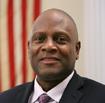
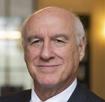

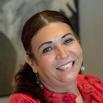
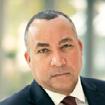
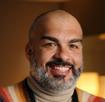

2:00 pm - 4:00 pm
Location: treasury, meeting LeveL 4 (m4)
track: community buiLding
LeveL: beginner
Presenters:
LaWrence WHite, cai gLobaL, cLeveLand, oH dr migueL cHion, cai gLobaL, Los angeLes, ca bennett reagan, cai gLobaL, Los angeLes, ca
JuLie commisso, cai gLobaL, goodLettsviLLe, tn
This interactive workshop equips organizations with tools to discover the needs of the 50+ community, and ways to build authentic partnerships with community resources and fellow organizations. During this workshop, facilitators will discuss the state of people 50+ with HIV and vulnerable to HIV and how current services may not be meeting their needs. Modeled after a National HIV Learning Center course, the session will share some principles and tools used to engage the community and will provide key information for programs to consider when designing or adapting programs to better meet the needs of aging populations.
Attendees will engage in group activities to reassess current partnerships, identify new collaborators, and develop a tailored action plan to enhance community engagement. Participants will leave with refreshed insights, practical tools, and next steps to deepen their organization’s impact and community presence to deliver high-quality services to older individuals with HIV.
Location: congress, meeting LeveL 4 (m4)
track: aging WitH Hiv - PoLiticaL determinants oF HeaLtH LeveL: intermediate
Presenters:
andre’ L. mcguire, aLm’s ministries internationaL, inc./straigHt and Positive Waterbury, ct
rev. WiLLiam Francis, 166 cHurcH, atLanta, ga reginaLd smitH, reginaLd and dionne smitH Foundation, atLanta, ga
george FeLiX syrLs, straigHt and Positive and oLsHa and gosPeL against aids, Pontiac, mi
Heterosexual men and women remain marginalized in HIV prevention efforts due to stigma, cultural barriers, and inequities in service delivery. We will explore what getting to zero should look like in the Black community. We will also discuss how highlighting subpopulations in the Black community of necessity has diverted resources from larger segments of the community Socio-Economic and other needs now living with HIV.
We will discuss how STIGMA within the HIV community contributes to the exclusion of heterosexual populations from prevention and care. Cultural insight is used to develop community-based interventions and culturally sensitive outreach strategies to increase engagement with HIV prevention tools like PrEP and testing. Addressing barriers in the Black community require a holistic approach that centers on inclusion and equity, ensuring no population is left behind in the fight against HIV.
Location: cHinatoWn, meeting LeveL 3 (m3)
track: advancing researcH and treatment For oLder aduLts
LeveL: beginner
Presenter:
cyntHia rodgers, aids aLabama, birmingHam, aLabama
This presentation and workshop will identify challenges within rural engagement and an intervention designed to reach those aging with HIV in such communities. It will showcase Project Thrive, a five-year research study led by Medical College of Wisconsin, in partnership with Southern AIDS Coalition focused on individuals who are living HIV, in rural southern communities, and over the age of 50. The session facilitators are also the facilitators of the intervention, and both have decades of lived experience with HIV. The project is taking place in seventeen Southern states: Alabama, Arkansas, Delaware, Florida, Georgia, Kentucky, Louisiana, Maryland, Missouri, Mississippi, North Carolina, Oklahoma, South Carolina, Tennessee, Texas, Virginia, and West Virginia.
The project is being conducted by Medical College of Wisconsin faculty and staff and The Southern AIDS Coalition; it is funded by the National Institute of Nursing Research (NINR).
Location: georgetoWn, meeting LeveL 1 (m1)
Presenters:
trina scott, giLead, baLtimore, md
abraHam JoHnson, giLead, atLanta, ga
Start people on HIV treatment as soon as possible. Stay continuously engaged in care. Return quickly and effectively after disengagement.
This is the foundation of Gilead’s Start–Stay–Return framework—a unified, system-level approach to help improve HIV care outcomes. Grounded in real-world insights and aligned with national strategies, this workshop

The AIDS Institute, founder of National HIV/AIDS and Aging Awareness Day, September 18th proudly encourages conference participants to host events and awareness activities on the day and throughout the year. In
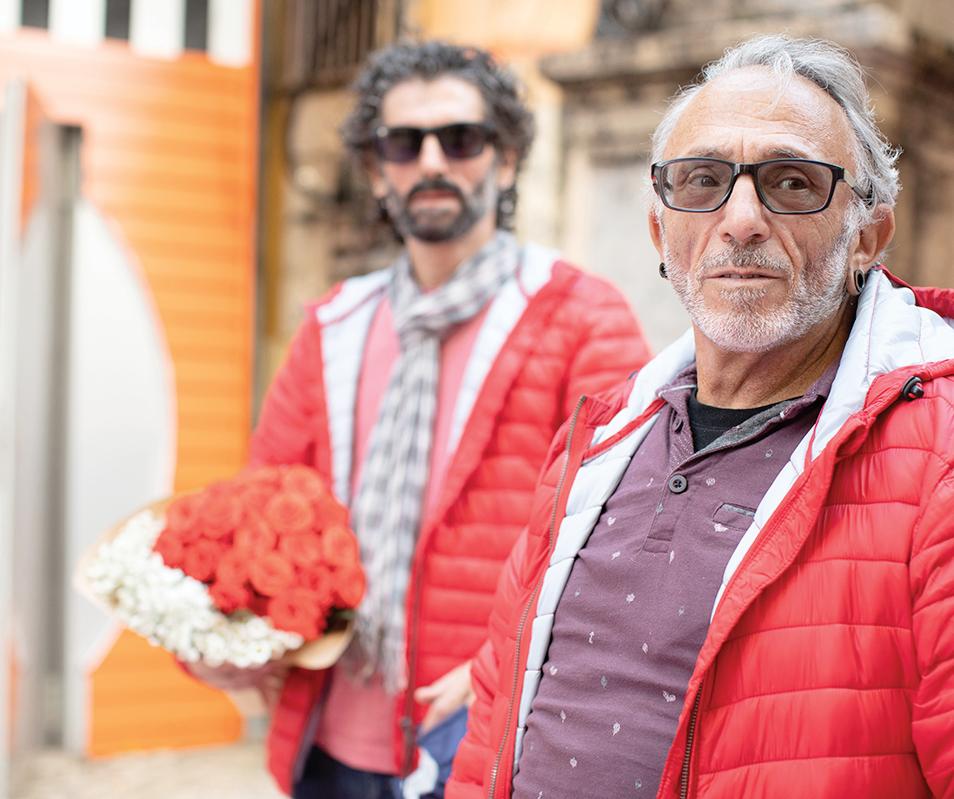
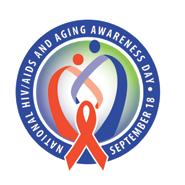
SATURDAY
explores how healthcare organizations can strengthen rapid ART initiation, support continuous engagement, and rapidly reengage people who are not in HIV care.
Through interactive discussion and practical examples, participants will learn how to apply this framework to help reduce time to viral suppression, minimize gaps in care, and design HIV systems that meet people where they are—but don’t leave them there.
Location: arcHives, meeting LeveL 4 (m4)
track: community buiLding
LeveL: beginner
Presenters:
dr tiye Link, nasHviLLe cares, nasHviLLe, tn
cory roroya, vanderbiLt university, nasHviLLe, tn
Sankofa Rising is an immersive workshop that centers the lived experiences, wisdom, and leadership of Black cisgender women aging with and impacted by HIV. Drawing from African diasporic healing traditions, the session uses four West African Adinkra symbols—Aya (resilience), Sankofa (legacy), Nkyinkyim (life’s journey), and Ese Ne Tekrema (interdependence)—to explore Black women’s narratives of survival and leadership.
The workshop begins with a screening of Songs of Our Mothers, a 17-minute film highlighting the stories of four Black women founders of HUES (Healing & Uniting Every Sista) at the San Francisco AIDS Foundation. Following the film, participants engage in small-group dialogue and legacy mapping, reflecting on inherited wisdom, personal strengths, and what they aim to pass on.
Designed for aging Black women with HIV, their care providers, and community advocates, Sankofa Rising fosters connection, visibility, and joy, advancing culturally grounded care, healing, and leadership.
Location: magnoLia, 2nd FLoor, mezzanine Foyer
track: Women aging WitH Hiv
LeveL: beginner
Presenters:
LePena reid, tamPa, FL
aLicia diggs, burLington, nc
This empowering workshop centers the lived experiences of women aging with HIV, with a focus on the often overlooked and under-discussed realities of menopause, body changes, and access to affirming care. As women navigate perimenopause, menopause, and post-menopause, they face intensified symptoms impacted by long-term HIV treatment,
compounded by stigma, systemic racism, and gender-based healthcare disparities. This session will explore how hormonal shifts, weight gain, and bone density loss intersect with HIV and aging, and how these factors affect emotional well-being, self-image, and quality of life. Particular attention will be given to Black and Brown women, whose experiences are shaped by structural inequities and cultural invisibility. Through personal narratives, community-led strategies, and discussion of care models, participants will gain insight into how women are organizing, educating, and advocating for integrated, woman-centered care. Attendees will leave with tools, language, and inspiration to support this movement for dignity, equity, and health justice.
Location: cHerry bLossom, 2nd FLoor, mezzanine Foyer
track: dandeLions and LiFetime survivors
LeveL: intermediate
Presenters:
antoinette Jones, dandeLions, inc., atLanta, ga
kim canady, conversations WitH kim LLc, brookLyn, ny
derintHia WiLLiam, dandeLions, inc., atLanta, ga
iesHia scott, Positive suPPort, sunrise, FL
Too often, people born with HIV—known as Dandelions—are left out of prevention, care, and leadership narratives. Many, especially Black and Brown women, have carried the virus since birth while navigating stigma, silence, and systemic neglect. The Dandelions Movement was founded to change that. Rooted in healing justice and community wisdom, this liberation-centered organization uplifts the voices of Lifetime Survivors and reclaims space through storytelling, peer-led support, and policy critique. This session shares the movement’s origin, purpose, and impact—offering participants a deeper understanding of how Dandelions are reshaping HIV advocacy from within. Through intergenerational dialogue and collective reflection, attendees will leave with actionable strategies for building systems that center legacy, autonomy, and care. This isn’t just about inclusion—it’s about transformation.
Location: sHaW, meeting LeveL 3 (m3)
track: beHavioraL HeaLtH and aging WitH Hiv
LeveL: intermediate
Presenter:
sHadaWn mccants LPc-s, ncc, HeaLoLogist, knoW and Live counseLing and consuLting, PLLc , Houston, tX
This interactive workshop centers on the often-overlooked neurocognitive and somatic challenges experienced by older adults aging with HIV. As the disease and treatment progress over decades, long-term survivors face a constellation of mental, emotional, and physical effects many
of which remain untreated by conventional behavioral health models. Facilitated by A Licensed Professional Counselor who has 30 years of lived experience, this session offers a restorative, evidence-informed experience that integrates somatic healing, sound therapy, and natural practices, including discussions on psychedelics as emerging adjunct therapies. Participants will learn about innovative approaches to mental health access while engaging in a sound healing and journaling experience that centers embodiment, memory, and emotional release. Designed for providers, advocates, and aging adults living with HIV, this workshop reclaims wholeness and wellness as a birthright.
Location: dogWood, 2nd FLoor, mezzanine Foyer
track: biomedicaL Hiv Prevention
LeveL: beginner
Presenters:
Freddy moLano, community HeaLtHcare netWork, neW york, ny
JanckFre steFanis, community HeaLtHcare netWork, neW york, ny
Harvey diaz, community HeaLtHcare netWork, neW york, ny
Asylum seekers face unique and compounding barriers to accessing biomedical HIV prevention and treatment—including trauma, stigma, fear of deportation, and unstable housing. This workshop explores a groundbreaking mobile healthcare initiative that delivered culturally responsive HIV services directly to asylum seekers across Queens and Manhattan. Attendees will learn how the program integrated tools like PrEP, TasP, and START into primary care, rapidly linked newly diagnosed individuals to treatment, and achieved high rates of viral suppression through trauma-informed, community-based strategies. This Model explore scalable, mobile models for equitable HIV care in diverse urban communities.
Location: union station, meeting LeveL 3 (m3)
track: aging WitH Hiv - PoLiticaL determinants oF HeaLtH
LeveL: beginner
Presenters:
benJamin ignaLino, tHe coLLaborative, san Francisco, ca
JadaWn WrigHt-morgan, tHe coLLaborative, san Francisco, ca
Jb deL rosario, tHe coLLaborative, san Francisco, ca
brian abascaL, tHe coLLaborative, san Francisco, ca
This workshop will explore the structural forces shaping health outcomes for individuals with HIV. Attendees will examine how inequities in policy and programming contribute to health disparities and identify strategies for creating more inclusive and equitable systems. Through research insights, policy analysis, and community-driven approaches, the session will highlight effective methods for addressing gaps in current policies and services. A central focus of this workshop will be placed on the meaningful
involvement of people with HIV in shaping solutions, emphasizing their expertise and lived experiences. Additionally, the workshop will discuss how stakeholder mobilization and coalition-building can serve as powerful tools for advocacy and systemic transformation. Attendees will leave with actionable ideas to promote change in their communities and institutions, advancing equity for aging populations with and impacted by HIV.
Location: scarLet oak, 2nd FLoor, mezzanine Foyer
Presenters:
tamera aryeetey, advancing connecticut togetHer, HartFord, ct
angeLique croasdaLe-miLLs, ma Psy, oFFice oF centraL grants administration, city oF HartFord, HartFord, ct
JiLL Larmett, cWdP, caPitaL WorkForce Partners, HartFord, ct
Pastor andré L. mcguire, Jd, aLm’s ministries internationaL, inc., HartFord, ct
mark misrok, ms ed, nationaL Working Positive coaLition, queens, ny
danieLLe Warren-dias, ms, connecticut cHiLdren’s | uconn HeaLtH, HartFord, ct
In Hartford, Connecticut, a partnership established in 2023 of people living with HIV, community-based HIV and workforce development service providers, and government agency policymakers has coalesced as a leadership planning group to address employment-related needs of people living with HIV. The Open Doors initiative in Hartford has developed and incrementally progressed combining resources and partners in a model that can be available and implemented in a broad range of communities. Leadership planning group participants will discuss essential values for planning and implementing community-based HIV employment initiatives and programming strategies to expand and improve employment opportunities for people living with HIV.
Location: george WasHington, meeting LeveL 1 (m1)
tracK: the science of seXuaLity
LeveL: interMediate
Presenters:
victor Luna, Protech care inc, MiaMi, FL
Moises agosto, nMac, washington, d c
cristhoFer Moreira, roLLins schooL oF PuBLic heaLth at eMory university, atLanta, ga
deKeitra griFFin, schooL oF sociaL worK, Louisiana state university, L a ace roBinson, duKe university, durhaM, nc
Individuals involved in the early days of the HIV epidemic built a legacy of resilience, activism, and radical care. Because of biomedical advances, the landscape of HIV & STI prevention and care has evolved. As newer generations navigate prevention, treatment, and sexual wellness in a hostile political environment, bridging generational wisdom with emerging voices to ensure the best outcomes is critical.
SATURDAY
A panel consisting of individuals representing Boomers, Generation X, Millennials, and Generation Z will engage in honest, uplifting conversations about sexual pleasure, HIV stigma, HIV/STI prevention, aging, and sexual identity around the evolution of prevention, care and treatment. How various generations experience sexuality with biomedical advances—and how to create inclusive spaces that celebrate joy, diversity, and connection will be discussed.
This novel session will feature storytelling, digital innovation, and strategies to build replicable models of solidarity, inspire action, and amplify pleasurecentered narratives for all impacted by HIV across generations.
Location: mount vernon square, meeting LeveL 3 (m3) track: biomedicaL Hiv Prevention
Presenter: tori cooPer, ba, mPH, Human rigHts camPaign, WasHington, dc
Attendees will learn more about trans and gender expansive people as we discuss how gender affirming care is integral to PreP and TaSP adherence as effective tools to ending the HIV epidemic; they will hear about trans and gender expansive people aging with HIV and working in the HIV service industry; they hear from graduates of ELEVATE, ELÉVATE (Spanish language), ACTIVATE and MOTIVATE, leadership development cohorts for trans and gender expansive advocates, on ways to integrate proven biomedical advancement to serve gender diverse clients; they will learn best practices for inclusive, gender affirming care in spite of a political cultural war that seeks to erase our very existence and they will learn a brief history of trans and gender expansive identities in the US and around the world.
Location: siLver Linden, 2nd FLoor, mezzanine Foyer
track: systems cHange and WorkForce deveLoPment
LeveL: intermediate
Presenter:
Jada Hicks, cHLP, WasHington, dc
kae greenberg, cHLP, PHiLadeLPHia, Pa
Joyce turner keLLy, traveLers oF cHrist evangeListic ministries, baton rouge. L a kim canady, conversations WitH kim LLc, brookLyn, ny
This session will explore how systemic ageism in public health policy, HIV prevention, and the criminal legal system increases vulnerability to HIV acquisition among aging adults and how silence around their risk and rights perpetuates harm.
Panelists will examine how ageism in public health contributes to delayed diagnoses and the lack of tailored prevention efforts and messaging for older adults. Participants will learn how age-related stigma and assumptions about the sex lives of people aging with HIV
obscure the needs of aging adults, particularly Black, brown, and LGBTQ+ communities. The panel will also explore how adults over 50 are excluded from public health strategies, advocacy agendas, and legal reform efforts— including conversations around HIV criminalization.
Panelists will highlight how this exclusion increases both risk of acquisition and vulnerability to HIV criminalization. The session will uplift lived experiences and explore how to better include aging voices in decriminalization and public health advocacy.
Location: tuLiP, 2nd FLoor, mezzanine Foyer
Presenters:
ronaLd JoHnson, us PeoPLe Living WitH Hiv caucus
danieL g garza, nmac ’s gay men oF coLor FeLLoWsHiP
eric Locquiao, nmac ’s gay men oF coLor FeLLoWsHiP
This workshop is focused on providing the tools for advocates to advocate for their own communities and influence policies. In the current political environment, increased challenges towards health, rights, and equity are escalating. It is more important than ever to understand how decisions get made and how to take action effectively.
This workshop will cover the basics of the public policy process, racial and health disparities driving advocacy, and how to develop strategies that work on Capitol Hill and in your own jurisdictions. Participants will leave with clear and actionable tools to frame their story and engage policymakers.
Location: mint, meeting LeveL 4 (m4)
Presenters:
Louis sHackeLFord, mPH, Fred HutcHinson cancer center, seattLe, Wa uLysses burLey iii, md mPH, ubtHecure LLc, cHicago, iL
In traditional faith spaces historically led by cisgender, heterosexual (CisHet) men, conversations around LGBTQIA+ inclusion and allyship often face substantial barriers. “Redemptive Masculinities” invites participants to explore how CisHet men can move beyond performative gestures towards authentic, vocal, and expressive practices of love, care, support, and advocacy for LGBTQIA+ individuals.
This workshop contextualizes “redemptive masculinities” as plural, actively challenging dominant, often harmful conceptions of masculinity tied to homophobia, transphobia, misogyny, and HIV stigma. Participants will engage in discussions around practical models of allyship where allies intentionally align their lives and livelihoods with LGBTQIA+ communities, creating affirming spaces of worship and community life. Through interactive dialogue, real-world examples, and practical tools, this workshop empowers participants and faith leaders to foster transformative allyship in their own religious communities.
6:30 pm - 7:30 pm
Sisterhood & Survival: Our Lifelong Legacy of Power and Perseverance
Location: dogWood, 2nd FLoor, mezzanine Foyer
Join us for an uplifting and empowering affinity session designed for women living long-term with HIV. This is a safe space to share our journeys, reflect on our resilience, and celebrate the strength we’ve built over time. Whether HIV has been a part of your journey for many years or your whole life, this space honors you. Your story, your voice, and your experience matter deeply.
This space is open to all women living with HIV—those aging with it, those who’ve carried it for a lifetime, and everyone in between.
6:00 pm - 8:00 pm
Surviving Voices: HIV Lifetime & Long-Term Survivors
A film viewing and panel discussion
Location: marquis baLLroom, meeting LeveL 2 (m2)
PaneL:
Jörg FockeLe, Producer/director
moisés agosto-rosario mPH, PaneL moderator
In 2025 the 10th chapter of “Surviving Voices”, the National AIDS Memorial’s awardwinning AIDS oral history and film series, honors HIV Lifetime and Long-Term Survivors - those who acquired HIV at birth or as young children and those who acquired the virus before the availability of effective treatment in the mid-1990s. It depicts their vulnerabilities and the stigma they were facing but also celebrates their individual strength, power, and resilience, and the importance of community.
8:00 pm - Midnight
Keep Fighting, Keep Dancing: A Celebration of Survival, Resilience and Dance
Location: marquis baLLroom, meeting LeveL 2 (m2)
Featuring dJ JeFF berry
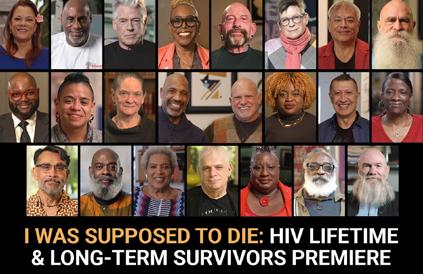
“During the darkest days of the AIDS crisis, we buried our friends in the morning, we protested in the afternoon, and we danced all night. The dance kept us in the fight because it was the dance that we were fighting for. It didn’t look like we were going to win then, and we did. It doesn’t feel like we’re going to win now, but we could. - Keep fighting, keep dancing.”
- Dan Savage
Join us as we continue to keep fighting and keep dancing!!! (see p. 24 for full description)

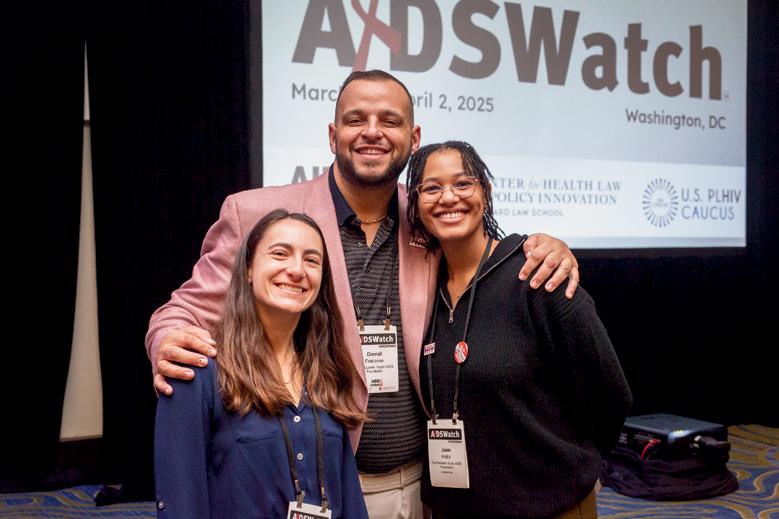
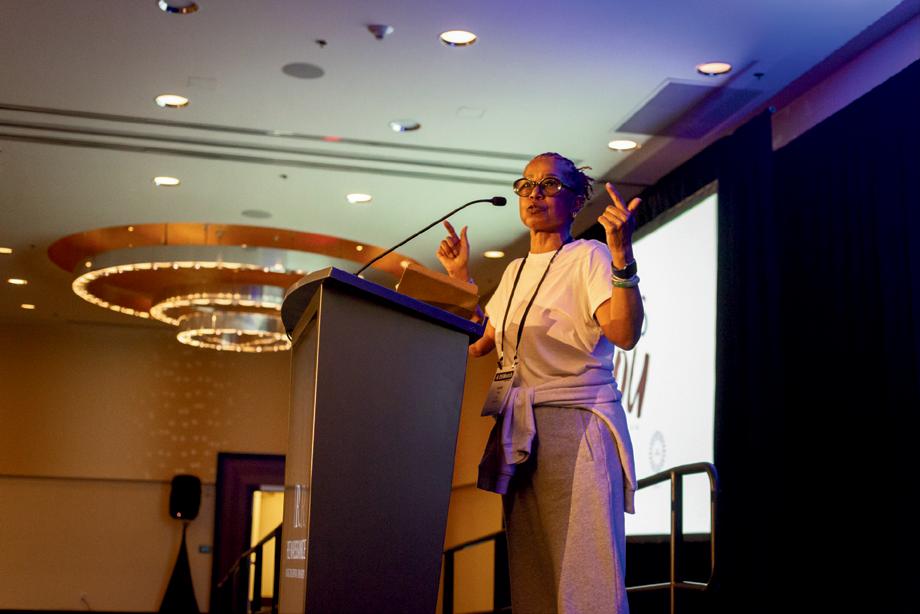


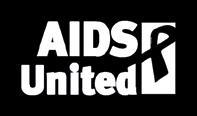


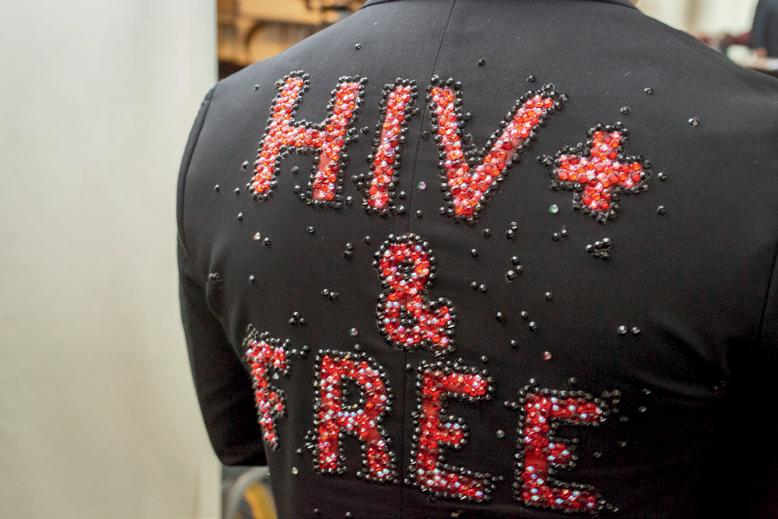
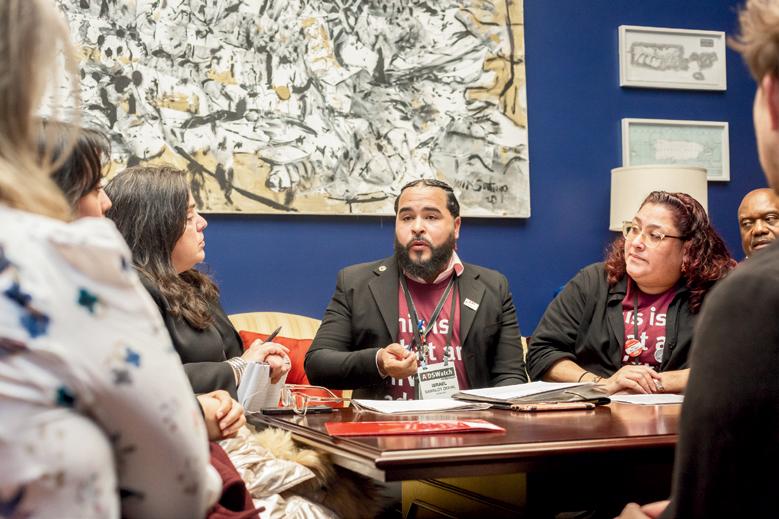
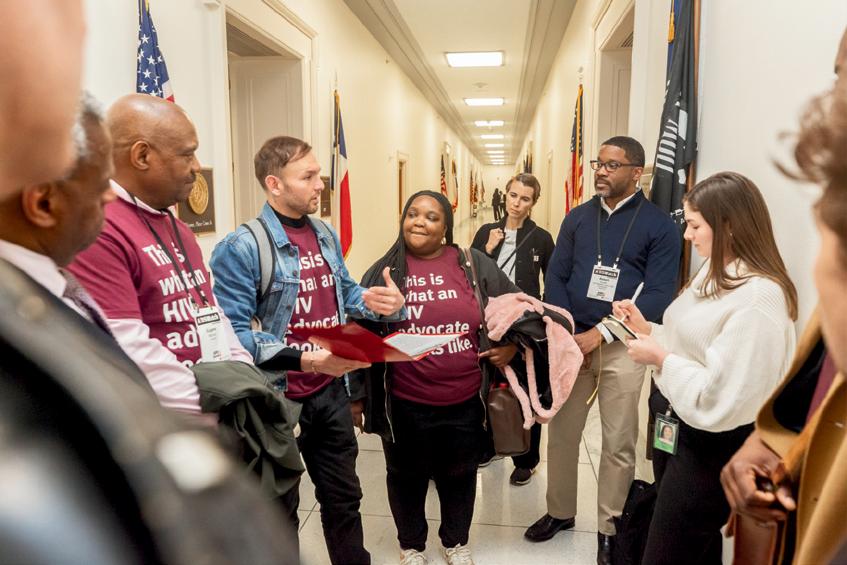


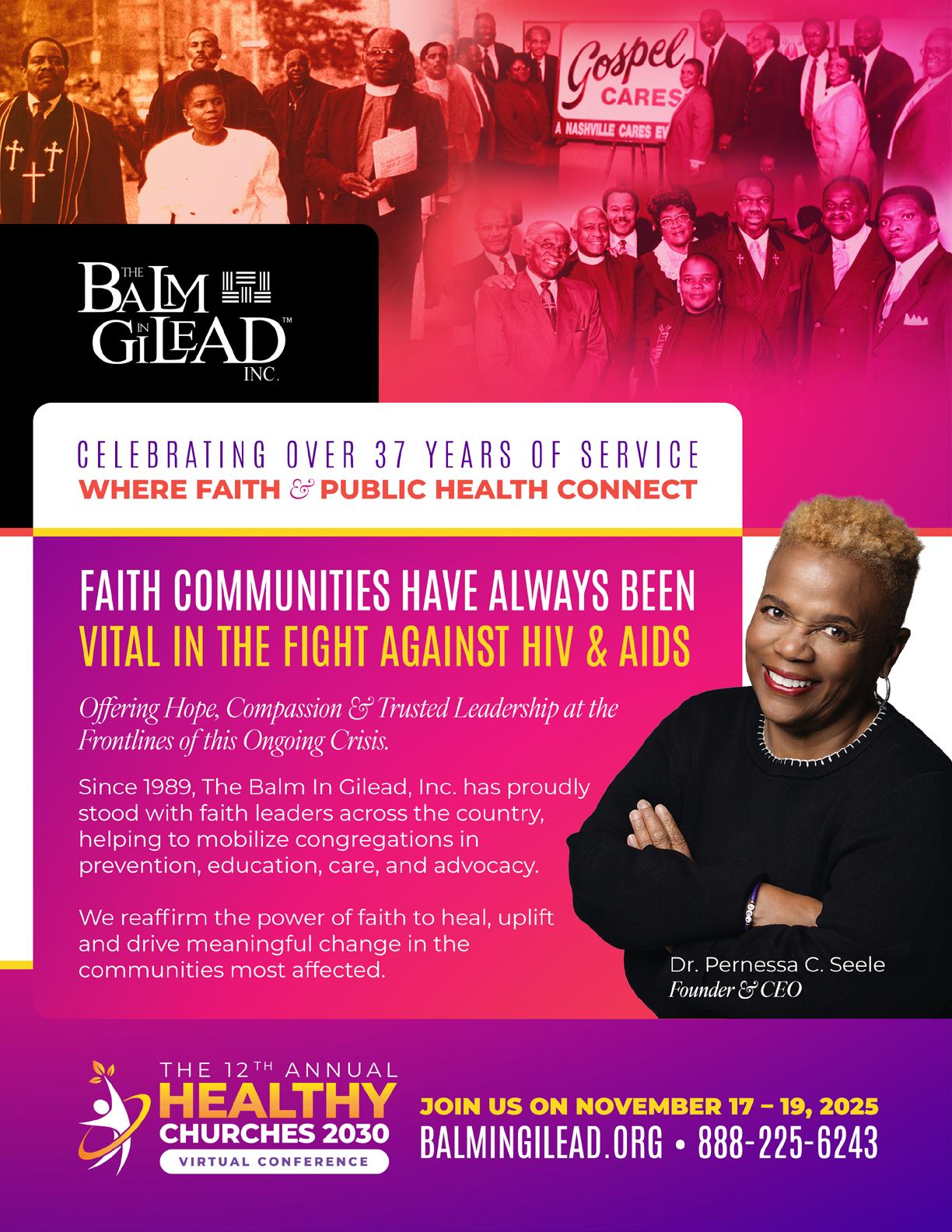
7:00 am7:45 am AM Praise
Location: Honeysuckle, 2nd Floor, Mezzanine Foyer
9:00 am11:00 am Session 7 Workshops
Long-term Intimate Relationships while Aging with HIV
Location: Archives, Meeting Level 4 (M4)
Building Power: Aging, HIV, and Political Advocacy
Location: Magnolia, 2nd Floor, Mezzanine Foyer
The Power of Us: Wellness for Women Living and Aging with HIV
Location: Marquis Salon 12, Meeting Level 2, (M2)
ADAP Formulary Innovation: Serving the Aging HIV
Community
Location: Chinatown, Meeting Level 3 (M3)
Disco to Digital: Race, Romance, Intergenerational, and Disclosure
Location: Tulip, 2nd Floor, Mezzanine Foyer
Prioritizing Long Term Mental Healthcare for Women Living with HIV
Location: Georgetown, Meeting Level 1 (M1)
Sensual Survival: Reclaiming Pleasure and Power as Lifetime Survivors
Location: Congress, Meeting Level 4 (M4)
Closing Plenary 11:30 am1:00 pm
The Rising Tide of HIV Among Black Gay Aging Populations
Location: Shaw, Meeting Level 3 (M3)
Health Literacy in Practice: Serving Older Adults Living with HIV
Location: Scarlet Oak, 2nd Floor, Mezzanine Foyer
Smarter Sex: Understanding Anal Pleasure and Health for HIV Workers
Location: Dogwood, 2nd Floor, Mezzanine Foyer
Laying the Foundation: Abolitionists Imagining a Brighter Future for PLAHIV
Location: George Washington, Meeting Level 1 (M1)
NextGen Rising: Youth Voices Leading the Charge for HIV Equity
Location: Mint, Meeting Level 4 (M4)
Navigating Towards Language Justice: Strategies for Organizational Change
Location: Cherry Blossom, 2nd Floor, Mezzanine Foyer
The Challenges of Intersecting Co-morbidities Among Older Adults Living with HIV
Location: Silver Linden, 2nd Floor, Mezzanine Foyer
Workforce Resiliency and a Blueprint for 2029, Presented by NMAC
Location: Marquis Ballroom, Meeting Level 2 (M2)
All times Eastern Standard Time (EST). See app for full Institute and Workshop descriptions and up-to-date information.
7:00 am - 7:30 am
AM Praise
AM Praise
Location: HoneysuckLe, 2nd FLoor, mezzanine Foyer
9:00 am - 11:00 am
Location: arcHives, meeting LeveL 4 (m4)
track: community buiLding
LeveL: beginner
Presenters:
Linda H scruggs and natHanieL scruggs, ribbon, Largo, md
rebecca dennison and dan JoHnson, ribbon Legacy board
JeFF berry and stePHen osgood, tHe reunion ProJect (trP)
As people living with HIV age, the dynamics of their long-term intimate relationships evolve in deeply personal and complex ways. This interactive workshop explores the intersection of aging, chronic HIV management, and relational intimacy. It includes a live panel discussion featuring two long-term couples aging with HIV, who will share their lived experiences navigating health, intimacy, caregiving, and resilience. The session will also highlight best practices for supporting aging individuals with HIV within committed partnerships, using evidence-informed strategies and clinical tools. ultimate goal was to promote HIV awareness and encourage people to get tested regularly, thus reducing the spread of the virus and increasing the knowledge of HIV status.
Location: magnoLia, 2nd FLoor, mezzanine Foyer
track: aging WitH Hiv - PoLiticaL determinants oF HeaLtH
LeveL: beginner
Presenter:
nick armstrong, tHe aids institute, WasHington dc
In an era of escalating legislative attacks on LGBTQ+ communities, immigrants, communities of color, and people living with HIV, advocacy and activism are more essential than ever—especially for older adults aging with or at risk for HIV. This interactive workshop will explore the vital role of political advocacy in confronting and transforming the policies that shape health outcomes, access to care, and quality of life for aging populations. Participants will hear from a panel of advocates working at the national, state,
and local levels, highlighting effective strategies to influence policy. The workshop will define what advocacy and activism mean, outline their critical functions in the current political landscape, and explore different tools and opportunities for engagement. Through a hands-on advocacy simulation and discussions, attendees will leave equipped with strategies to champion equitable policies and amplify the voices of older people living with HIV.
Location: marquis saLon 12, meeting LeveL 2, (m2)
track: comorbidities, and muLtiPLe cHronic conditions oF tHose aging WitH Hiv LeveL: beginner
Presenters:
meLanie reese, nationaL Hiv aging advocacy netWork Woc-rise uP sPeciaL interest grouP, baLtimore, md
denise drayton nationaL Hiv aging advocacy netWork Woc-rise uP sPeciaL interest grouP/ribbon a -center oF eXceLLence, odenton md
Older women living with HIV are navigating aging while managing complex medical conditions, emotional trauma, and persistent stigma. Traditional care models often fail to address their full range of needs, especially when gender, race, and age intersect. This session emphasizes whole-person care approaches that prioritize dignity, healing, and resilience. We will examine how integrated care models that honor physical, mental, and emotional health can support older HIV-positive women in thriving—not just surviving. Participants will leave with actionable insights to inform more inclusive and affirming service delivery.
Location: cHinatoWn, meeting LeveL 3 (m3)
track: advancing researcH and treatment For oLder aduLts
LeveL: intermediate
Presenter: aimee sHiPman, nastad, WasHington, dc
ADAPs, a critical component of the Ryan White HIV/AIDS Program, ensures access to vital antiretroviral therapy and other medications for low-income individuals living with HIV. Roughly 25% of those in US HIV care rely on ADAPs. While federal guidelines exist, state ADAPs have flexibility in areas like formulary design.
Uninterrupted, affordable medication access is vital for reducing health disparities, especially for the growing population of people aging with HIV. In 2023, 58% of ADAP clients were over 45, and 14% were over 65.
This session will examine equity in ADAP formulary design, focusing on medications needed by older adults with HIV. These include drugs for cardiovascular health, pain management, diabetes, and mental health. We will also review federal policies on ADAP formularies and explore how states ensure their formularies meet the diverse and changing needs of this aging population.
Location: tuLiP, 2nd FLoor, mezzanine Foyer
track: tHe science oF seXuaLity
LeveL: intermediate
Presenter:
von biggs, HoLy cross HeaLtH & broWard county Hiv HeaLtH services PLanning counciL, Fort LauderdaLe, FL
What happens when wisdom meets innovation, and lived experience meets digital fluency? This dynamic, intergenerational and interracial session—co-led by members of NMAC’s NexGen Youth and 50+ cohorts— explores how people across decades and racial identities navigate dating, disclosure, and desire in the age of PrEP, U=U, and mobile technology. Participants will explore the unique dynamics of intergenerational and interracial relationships in LGBTQ+ communities, where age and racial identity often intersect with stigma, communication gaps, and digital literacy. The session will highlight how dating apps and digital platforms can be used to foster safer sex, reduce stigma, and promote pleasurecentered, affirming, and stigma-free sexual health for all.
Location: georgetoWn, meeting LeveL 1 (m1) track: Women aging WitH Hiv
LeveL: beginner
Presenter:
Laura gerson, aids united, WasHington, dc
Across the lifespan, women living with HIV (WLWH) experience unique mental health challenges that are often overlooked by providers. Women constitute nearly a quarter of the individuals living with HIV in the United States but are more likely to have comorbid mental health conditions, concurrent mental and physical health comorbidities, and worse overall mental health than men living with HIV and HIV-negative women. These outcomes magnify as they age, with older women reporting lower social support and mental health-related quality of life than younger women.
Additionally, women often experience unique intersections of identities that play a role in their specific mental health needs, but these factors tend to not be considered when seeking support. This session aims to analyze the current landscape of mental healthcare for WLWH, examine the causes behind this mental health discrepancy, and demonstrate the value of an integrated mental health approach for cis and transgender women.
Location: congress, meeting LeveL 4 (m4)
track: dandeLions and LiFetime survivors
LeveL: advanced
Presenter:
kimberLy canady, conversations WitH kim, brookLyn, ny
Sensual Survival—Reclaiming Pleasure and Power as Lifetime Survivors explores sexuality through the lens of Lifetime Survivors. For Lifetime Survivors, sex is often framed by disclosure, anxiety and stigma rather than desire or agency. With perinatal HIV transmissions now reduced to under 20 U.S. cases annually (CDC, 2023), over 10,000 adults who acquired HIV at birth remain excluded from pleasure and empowerment dialogues.
This session centers their voices, using peer storytelling, facilitated dialogue, and pleasure-based frameworks like U=U (Undetectable = Untransmittable) to challenge fear-first narratives and reframe sex as a site of empowerment. A healing and justice-oriented space, it uplifts lifetime survivors not as patients but as whole, sensual beings entitled to joy. Participants will leave with tools to navigate trauma, reclaim erotic power, and integrate pleasure into mental and sexual health support.
Location: sHaW, meeting LeveL 3 (m3)
track: beHavioraL HeaLtH and aging WitH Hiv
LeveL: intermediate
Presenter:
LaWrence bryant, moreHouse scHooL oF medicine, satcHer HeaLtH LeadersHiP institute, atLanta, ga
As the global population ages, the prevalence of HIV among older Black gay men (BGM) is becoming an increasingly pressing public health concern. This workshop presents an overview of current trends, challenges, and lived experiences in addressing HIV within this vulnerable demographic. Recent studies indicate that individuals aged 50 and older represent a significant proportion of new HIV diagnoses, often due to factors such as late diagnosis, comorbidities, mental health, substance use disorders, and social stigma. The intersection of aging and HIV raises unique challenges in terms of healthcare access, treatment adherence, screening, and community support. Furthermore, older adults may experience age-related changes that complicate HIV management, including polypharmacy and cognitive decline. This workshop will explore the implications of these trends for behavioral health providers and policymakers, emphasizing the need for tailored evidence-based interventions that address the specific needs of aging Black BGM living with HIV.
THURSDAY
Location: scarLet oak, 2nd FLoor, mezzanine Foyer
track: systems cHange and WorkForce deveLoPment
LeveL: beginner
Presenters:
kristen mackay, university oF rocHester center For community Practice, rocHester ny
emiLy ryan-kaLtenbacH, university oF rocHester center For community Practice, rocHester ny
JuHua Wu, university oF rocHester center For community Practice, rocHester ny
For older adults living with HIV, low health literacy presents unique challenges. As people age, they may already face age-related health issues which interact with the complexities of managing HIV. Older adults with low health literacy are at increased risk of medication errors, difficulty adhering to complex regimens, and misunderstanding medical advice, leading to poorer management of both HIV and comorbidities. Health literacy best practices can mitigate those potential harms. But what exactly does it mean to follow health literacy guidelines in practice? This workshop will introduce the basics of implementing health literacy and inclusive design practices in digital and print materials. Following health literacy guidelines ensures services for people aging with HIV are patient-centered, age-inclusive, and culturally responsive. At the end of this interactive workshop, participants will be ready to write and design patient-facing materials that are inclusive, user-friendly, and accessible.
Location: dogWood, 2nd FLoor, mezzanine Foyer
track: tHe science oF seXuaLity
LeveL: beginner
Presenter:
bryan kutner, aLbert einstein coLLege oF medicine and monteFiore medicaL center, bronX, ny
Public health responses to HIV have often focused on the risks of anal sex, which can reinforce stigma by overlooking the pleasure many people find in it. Nearly 45 years into the epidemic, people still need accurate, reliable information – not just about HIV or STI prevention, but also about how to enjoy anal play safely and comfortably. Without trustworthy resources, many rely on harmful myths or learn through painful trial and error, worsening their risks for infectious disease along the way.
This interactive workshop, based on research with HIV workers in the U.S. South, is designed for anyone who provides or refers clients to HIV services. Participants will learn how to discuss anal health in ways that reduce stigma, support pleasure, and minimize harm, helping clients feel seen as whole people while accessing services like PrEP, Doxy-PEP, HIV testing, and treatment.
Location: george WasHington, meeting LeveL 1 (m1)
track: aging WitH Hiv - PoLiticaL determinants oF HeaLtH
LeveL: beginner
Presenters:
kae greenberg, center For Hiv LaW and PoLicy, brookLyn, ny
mandisa moore-o ’neaL, center For Hiv LaW and PoLicy, brookLyn, ny
Linda H. scruggs, ribbon, Largo, maryLand
Since January 20, 2025, we have seen the systems we rely upon for healthcare, education, etc. be destroyed. The barrage has led many to despair on how to protect those most vulnerable, particularly Black and brown LGBTQ+ folks living and aging with HIV (PLAHIV). People wonder, “Can it be fixed?” Abolitionist Mariame Kaba challenges us to consider “When something can’t be fixed, what can we build instead?” The systems being ravaged, the “status quo,” while critical to our health and wellbeing, were also inequitable, consistently not meeting PLAHIV’s needs. This workshop seeks to introduce folks to the oft-misunderstood concept of abolition, with a focus on abolitionists’ frameworks and strategies on imagining new, equitable systems that promote the health and dignity of all. Participants will be challenged to apply these frameworks and answer Kaba’s important question, leaving the room with practical steps they can take towards achieving that goal.
Location: mint, meeting LeveL 4 (m4)
Presenters:
eric garcia, WasHington, dc
Jordan smitH, WasHington, dc
miLa HeLLFyre-Hernandez, WasHington, dc
cHristeL adHemar, WasHington, dc
This interactive session spotlights the NextGen: Emerging Leaders Fellowship, NMAC’s hybrid professional development initiative for young adults ages 18–25. After completing an intensive leadership training series focused on HIV prevention, public health, and wellness, fellows receive mini grants to design and implement original campaigns in their local communities.
Presenters will share examples of their youth-driven projects, including creative outreach events, social media campaigns, and peer education workshops, along with evaluation insights that demonstrate impact. This session will celebrate how NextGen fosters leadership beyond training, positioning young people as bold messengers of health, equity, and stigma-free futures.
Location: cHerry bLossom, 2nd FLoor, mezzanine Foyer
track: community buiLding
Presenters: add
gLoria deLgadiLLo, Wave, a Language Liberation Hub, brookLyn, ny
aLLison corbett, Wave, a Language Liberation Hub, brookLyn, ny
venita ray, bLack soutH rising, Houston, tX
Practicing language justice is a potent tool for any community-building work to prevent HIV and support those impacted by it. In this workshop, we will introduce participants to a brand new toolkit developed by Wave - a Language Liberation Hub, designed to support organizational change towards long-lasting Language Justice. Participants will learn practical tools and strategies for embedding language justice into their work at a foundational level, allowing communities across all ages to build power across language differences and elevating the leadership of those living with HIV who use languages other than English. Participants will learn how to get the most out of the toolkit and how to use it in their work to advance language justice.
Location: siLver Linden, 2nd FLoor, mezzanine Foyer
track: comorbidities, and muLtiPLe cHronic conditions oF tHose aging WitH Hiv
Presenter:
sHibani s muker Ji, m d., PH d, mass generaL brigHam, boston, ma
This workshop will discuss how older adults living with HIV face a unique set of challenges that stem from the interplay between the virus, aging, and other comorbid conditions. Among them are neurocognitive impairments, diabetes mellitus, and cardiovascular disease. These challenges significantly impact their quality of life, independence, and healthcare needs. As the global population of people living with HIV continues to age due to the effectiveness of antiretroviral therapy (ART), understanding and addressing these challenges is increasingly vital. The intersection of diabetes mellitus (DM) and HIV in older adults presents an increasing public health challenge. Understanding the mechanisms, risks, and management strategies of intersecting comorbidities is crucial to optimizing care and improving outcomes for this population. HIV and aging intersect in ways that significantly increase the risk of cardiovascular disease (CVD). As people with HIV live longer due to effective antiretroviral therapy (ART), age-related comorbidities have become a leading cause of illness and death.
11:30 am - 1:00 pm
Closing Plenary
Location: marquis baLLroom, meeting LeveL 2 (m2)
The story of HIV/AIDS was a story of tragedy that has been transformed by our communities into remarkable resilience, activism, and scientific advancement over four decades. Activists, advocates, and medical professionals played a crucial role in demanding action and pushing for research and treatment. More than 30 years after NMAC released its groundbreaking publication, “The Impact of HIV on Communities of Color: A Blueprint for the Nineties,” long-time survivors and esteemed medical professionals reflect on where we started, where we are now, and the development of an updated blueprint for HIV treatment and optimal quality of life for those aging with HIV as a manageable, chronic health condition.
Presenters:
aLLison agWu, md, associate ProFessor oF Pediatric and aduLt inFectious diseases, JoHns HoPkins university scHooL oF medicine
PorcHia dees, ceo LiFetime survivor’s netWork
antHony Fauci, md, distinguisHed university ProFessor, georgetoWn university scHooL oF medicine and mccourt scHooL oF PubLic PoLicy
biLL HaLL, community advocate For tHe native american community in seattLe, Wa
admiraL (ret.) racHeL Levine, md, 17tH assistant secretary For HeaLtH, u s dePartment oF HeaLtH and Human services
araceLis quiñones, coordinator, Poder Latino, Latino commission on aids
caroLe treston, eXecutive director, association oF nurses in aids care

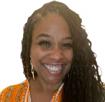
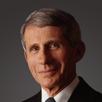
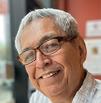
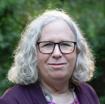
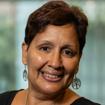
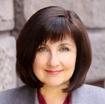
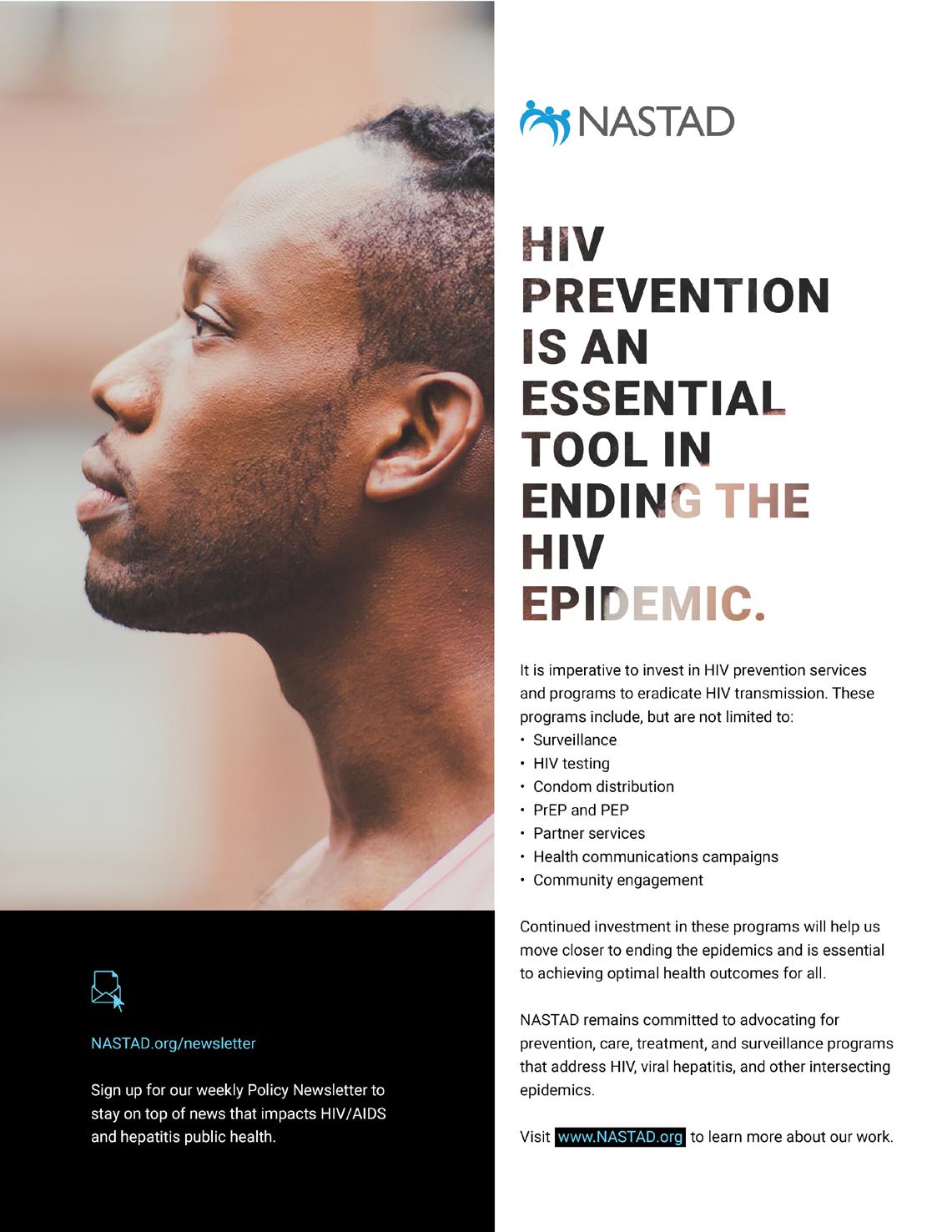




Assessments for Evaluating Health
Aging with HIV
Presenters: micHaeL virata, md, yaLe scHooL oF medicine, neW Haven, ct cHLoe JoHnson, yaLe scHooL oF medicine, neW Haven, ct Lisa sHeeHan, yaLe-neW Haven HosPitaL, neW Haven, ct erika Payne, PHarmd, yaLe-neW Haven HosPitaL, neW Haven, ct
eveLyn HsieH-donroe, md, yaLe scHooL oF medicine, neW Haven, ct ricHard marottoLi, md, yaLe scHooL oF medicine, neW Haven, ct karina danvers, yaLe scHooL oF medicine, neW Haven, ct micHaeL Lauro, yaLe scHooL oF medicine, neW Haven, ct Wynnett steWart, rn, yaLe-neW Haven HosPitaL, West Haven, ct
JuLie Womack, msn, PHd, va connecticut HeaLtHcare system, West Haven, ct Lydia barakat, md, yaLe scHooL oF medicine, neW Haven, ct
Presenters: nicoLa d’souza JeFFerson einstein PHiLadeLPHia HosPitaL. PHiLadeLPHia, Pa
sHana WiLson JeFFerson einstein PHiLadeLPHia HosPitaL. PHiLadeLPHia, Pa
bertHa Jackson JeFFerson einstein PHiLadeLPHia HosPitaL. PHiLadeLPHia, Pa
aviva JoFFe JeFFerson einstein PHiLadeLPHia HosPitaL. PHiLadeLPHia, Pa
Hussein saFa JeFFerson einstein PHiLadeLPHia HosPitaL. PHiLadeLPHia, Pa
HIV in Older Adults: Prevalence & Outcomes Across African Nations
Presenters: J. miLLer, mHs, md(c), m ed.(c), Penn state university coLLege oF medicine, dePt oF PubLic HeaLtH sciences, HersHey, Pa
Efficacy of Housing Assistance Programs to Increase ART Medication Adherence
Presenters: FabrieL torres Jr., san antonio aids Foundation, san antonio, tX
cHerise roHr- aLLegrini, san antonio aids Foundation, san antonio, tX
Criminalization and Syndemic Burden Among LGB
Adults with HIV Risk
Presenters: Juan soLis, ucL a, Los angeLes, ca
Using Virtual Strengths-Based Case Management for Rural PLH Age 50+
Presenters: oLivia aLgiers, medicaL coLLege oF Wisconsin, miLWaukee, Wi
September 5 & 6
1:30 -2:00 PM
Poster Sessions are located in M1 Foyer, Meeting Level 1 (M1)
Improving Depression Screening Protocols for Adults Aging with HIV
Presenters: Frankie snoW, immunodeFiciency center at JeFFerson einstein, PHiLadeLPHia, Pa
avani daLaL, immunodeFiciency center at JeFFerson einstein, PHiLadeLPHia, Pa
bertHa Jackson, immunodeFiciency center at JeFFerson einstein, PHiLadeLPHia, Pa
aviva JoFFe, immunodeFiciency center at JeFFerson einstein, PHiLadeLPHia, Pa
Life Beyond the Diagnosis: A Photovoice Study of Long-term Survivors
Presenters: J. ricHeLLe Joe, university oF centraL FLorida, orLando, FL
ida starks, orLando, FL
tHom bLand, orLando, FL
ciciLy martin, orLando, FL
Biomedical HIV Prevention
Blending Implementation Science Frameworks to Advance HIV Prevention Among Key Populations
Presenters: darLene Louis cHarLes, mPH
tyreLL manning, cHW, yoLanda West, mPH, Frederick robinson, cHW
Preferences for PrEP Program Attributes Among Aging Cisgender Black Women
Presenters: aLeX dubov, scHooL oF beHavioraL HeaLtH, Loma Linda university, Loma Linda, ca
Jason W. mitcHeLL, robert stemPeL coLLege oF PubLic HeaLtH & sociaL Work, FLorida internationaL university, miami, FL
Joanna Fernandez, scHooL oF beHavioraL HeaLtH, Loma Linda university, Loma Linda, ca
sHaWndasia coLLins, scHooL oF beHavioraL HeaLtH, Loma Linda university, Loma Linda, ca
Rebuilding the Forgotten: A Tailored, HumanCentered Approach Supporting “Aged-Out” Community
Presenters: Jasson robbins evans dominican Women deveLoPment center, neW york city , ny
LOVE Initiative: Supporting African Diaspora Immigrant Elders’ Wellbeing
Presenters: emiLy goLdberg-HaLL/ aFrican services committee, neW york, ny
maHLet maru/ aFrican services committee, neW york, ny
Comorbidities, and Multiple Chronic Conditions of Those Aging with HIV
Improving Screening and Integrated Care for Aging
Adults with HIV
Presenters: dr saniya moHsin, mary WasHington, staFFord, va
Cardiovascular Disease Risk in Patients at the Jackson HIV Clinic
Presenters: vaLeria botero, ma; miLLer scHooL oF medicine, dePartment oF inFectious diseases, university oF miami, miami, FL aLLan e rodriguez, md; miLLer scHooL oF medicine, dePartment oF inFectious diseases, university oF miami, miami, FL
Reducing Stigma & Improving Comorbidity
Screening in PLAWH Using AI
Presenters: kHader moHammed, versante LLc city: carmeL, in maLcoLm reid, unity arc advocacy grouP, LLc, atLanta, ga
Mapping Smoking Cessation Gaps for Aging People
Living with HIV
micHaeL ceLestin, PHd, Lsu HeaLtH sciences center, neW orLeans, L a
Dandelions and Lifetime Survivors
More Than HIV Positive: How ART Shapes Her Fertility Future
Presenters: aLLyssa tomLin, rocky vista university coLLege oF osteoPatHic medicine, Parker, co
We’ve Always Been Here: Visibility and Leadership of Lifetime Survivors
Presenters: antoinette knoWLes, dandeLions inc, atLanta, ga derintHia WiLLiams, dandeLions inc, detroit, mi kimberLy canady, conversations WitH kim, brookLyn, ny PorcHia dees, LiFetime survivors netWork, san bernardino, ca
DoxyPEP Use and Sexual Satisfaction
Over Age 50
Presenters: oLivia cHoLeWa, music city PreP cLinic, nasHviLLe, tn
September 5 & 6
1:30 -2:00 PM
Poster Sessions are located in M1 Foyer, Meeting Level 1 (M1)
Systems Change and Workforce Development
Realigning HIV Care Systems for an Aging Population
Presenters: dHara dangar, nastad, WasHington, dc
Adapting Employment-Focused HIV Prevention for Latino MSM in Florida
Presenters: JaHn JaramiLLo, university oF miami, miami, FL FeLicia casanova, university oF miami, miami, FL brandon J. HiLL, vivent HeaLtH, cHicago, iLLinois audrey Harkness, university oF miami, miami, FL
The Status Neutral Model for Older Adults
Presenters: eLys, vasquez-iscan, LeHman coLLege, city university oF neW york, neW york city, ny coLLette broWn, LeHman coLLege, city university oF neW york, neW york city, ny Lazara, Paz-gonzaLez, Hetrick-martin institute, neW york city, ny marsHa ricHards, LeHman coLLege, city university oF neW york, neW york city, ny zyair, simPson, Jacobi medicaL center, bronX, neW york city, ny karen, boveLL, neW york state aids institute, aLbany, ny karina, escamiLLa, Latino commission on aids, neW york city, ny Windy, Jacques, tHe brookLyn PatH center, brookLy, neW york city, ny WiLLiam, cHambers, PubLic HeaLtH soLutions, neW york city, ny divine Prince, aLLaH, coPe, neW york city, ny cristian, eduardo, consuLtant on Human traFFicking, neW york city, ny monica stanton-koko, borougH oF manHattan community coLLege, neW york city ny
Presenters: nadine keLa-murPHy, neW york state dePartment oF HeaLtH aids institute, neW york, ny
sanya Peck, neW york state dePartment oF HeaLtH aids institute, aLbany, ny
Presenters: soPHie genigeorgis, mPH, WorLd, oakLand, ca
Patricia bermudez, mba, WorLd, oakLand, ca
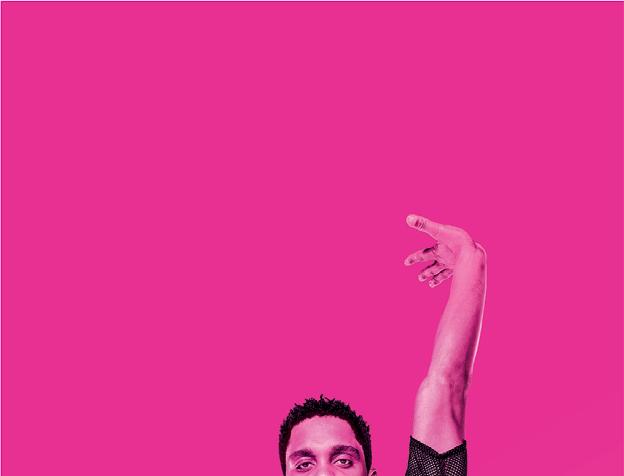




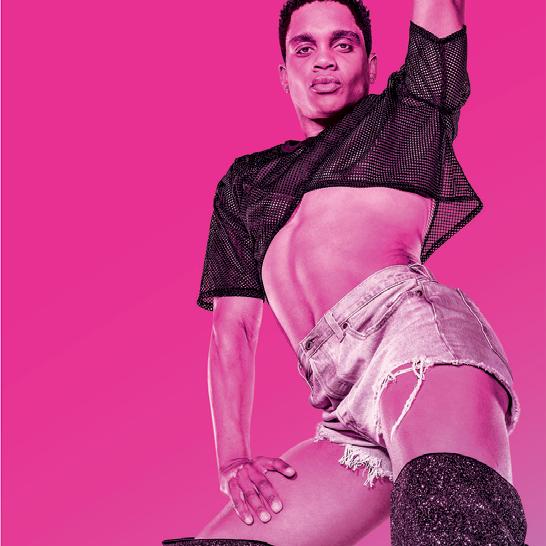






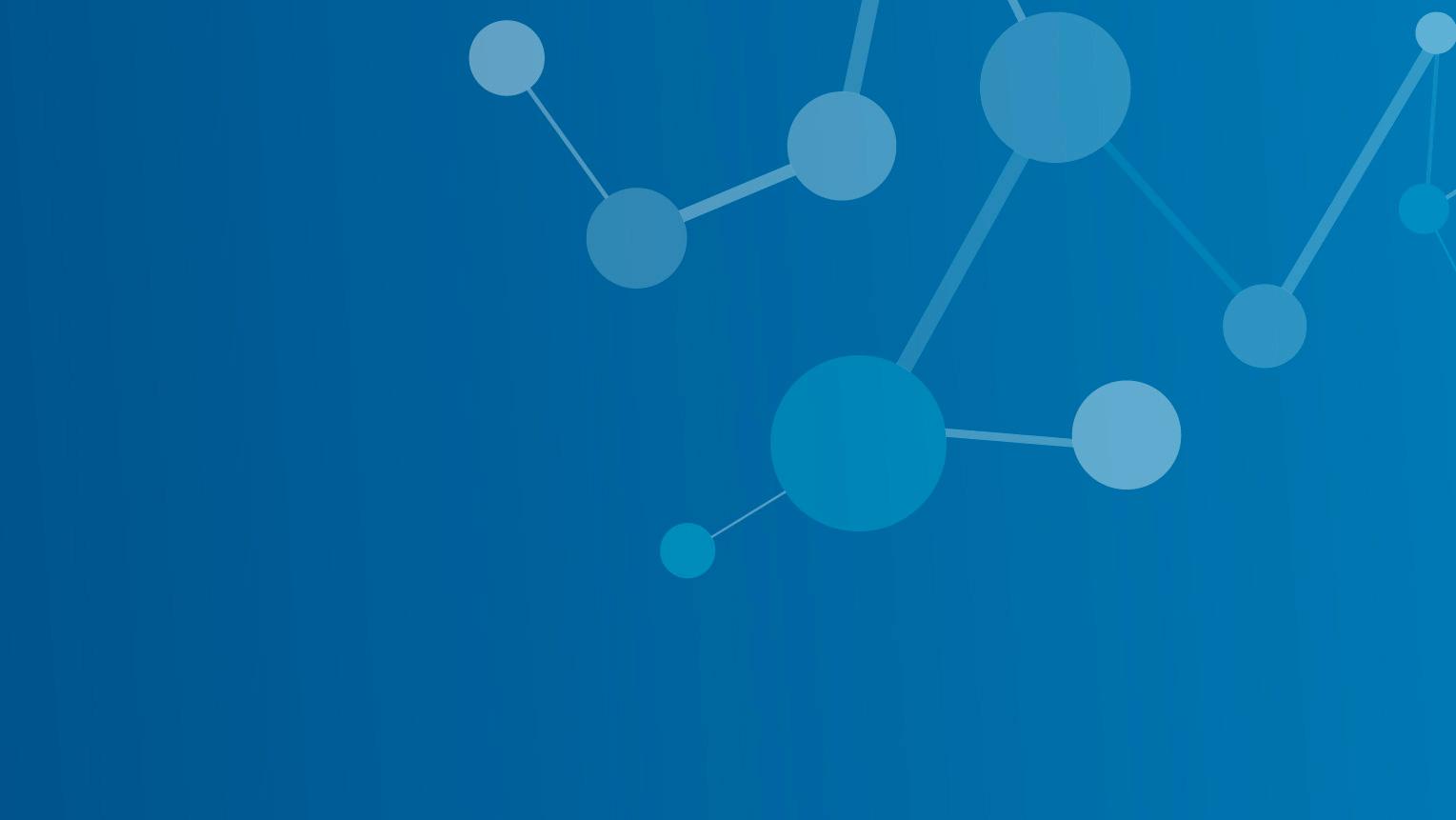
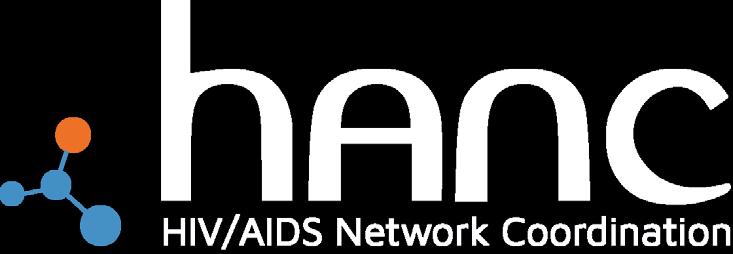
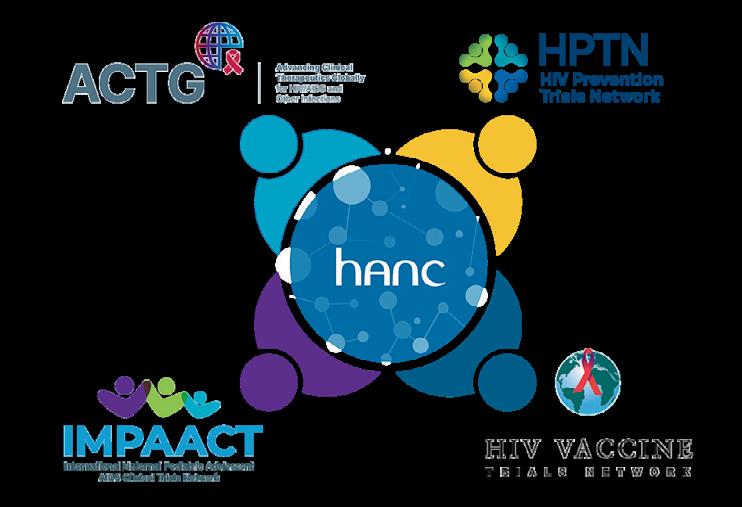
The Office of HIV/AIDS Network Coordination (HANC) is an independent group funded by the Division of AIDS (DAIDS) of the U.S. National Institutes of Health, National Institute of Allergy and Infectious Diseases (NIAID). HANC's mission is to support the science and operations of the HIV/AIDS Clinical Trials Networks by increasing efficiency and resource-sharing. HANC coordinates critical activities across the networks and with other research and advocacy partners.
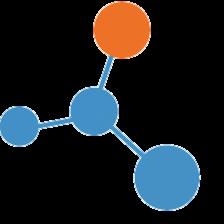

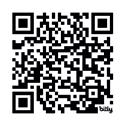

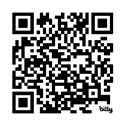

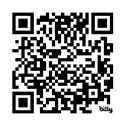
Todas las actividades son el Horario del Este
8:00 am5:00 pm
Preconferencias de la USCHA
8:00am – 4:00pm
Aprovechar el progreso: La colaboración para el cambio de los sistemas de PrEP
Lugar: Judiciary Square, Tercer nivel de reuniones (M3)
8:00am – 5:00pm
Sanación, esperanza y derechos humanos: Fortalecer las respuestas basadas en la fe al VIH y el envejecimiento
Lugar: Tulip, Segundo nivel, Vestíbulo del mezzanine
8:00am - 5:00pm
Taller de mentoría para gerentes (MtM): Adentrarse en el liderazgo: gestión para el crecimiento y el impacto en la prevención del VIH.
Lugar: Union Station, Tercer nivel de reuniones (M3)
8:00am - 5:00pm
Reunión sobre desarrollo y gestión organizativa (solo por invitación)
Lugar: Gallaudet, Primer nivel de reuniones (M1)
8:30am – 4:30pm
Catalizar la colaboración: Preparar a los proveedores de edad avanzada para el panorama del VIH
Lugar: Patio del Marriott, Shaw A
2:00 pm6:00 pm
INSCRIPCIONES ABIERTAS
Lugar: Vestíbulo del Salón Liberty, Cuarto nivel de reuniones (M4)
7:00 am7:45 am
7:30 am5:00 pm
INVOCACIÓN MATUTINA
Lugar: Honeysuckle, Segundo piso, Vestíbulo del mezzanine
INSCRIPCIONES ABIERTAS
Lugar: Vestíbulo del Salón Liberty, Cuarto nivel de reuniones (M4)
8:00 am11:00 am Institutos 1
Sí, aunque camine: Historias de sanación, esperanza y regocijo sagrado
Lugar: Magnolia, Segundo piso, Vestíbulo del mezzanine
Perspectivas de la AARP: Enfoques unificados sobre el VIH, el envejecimiento y las necesidades de cuidados
Lugar: University of DC, Primer nivel de reuniones (M1)
Vivir, prosperar y exigir lo mejor: Envejecer con el VIH en un clima político cambiante
Lugar: Georgetown, Primer nivel de reuniones (M1)
En todas las etapas: Promover la equidad en salud para los hombres trans mayores que viven con el VIH
Lugar: George Washington, Primer nivel de reuniones (M1)
Curar la hepatitis C: Estrategia nacional y liderazgo federal en acción
Lugar: Tulip, Segundo piso, Vestíbulo del mezzanine
Envejecer con el VIH: Enfermedades crónicas a lo largo del ciclo vital
Lugar: Congress, Cuarto nivel de reuniones (M4)
Envejecer con el VIV: Condiciones crónicas a lo largo del ciclo de vida
Lugar: Dogwood, Segundo piso, Vestíbulo del mezzanine
Convertirse en activista de la vivienda
Lugar: Silver Linden, Segundo piso, Vestíbulo del mezzanine
Nuestras voces, nuestras historias: Narración indígena como forma de sanación y resistencia
Lugar: Scarlet Oak, Segundo piso, Vestíbulo del mezzanine
El pasado, presente y futuro de la prevención del VIH: un legado en movimiento
Lugar: Mount Vernon Square, Tercer nivel de reuniones (M3)
Hay que levantarse temprano: Financiar la brecha en la prestación de servicios para las organizaciones negras
Lugar: Tesorería, Cuarto nivel de reuniones (M4)
El VIH y la ley: Cómo las leyes sobre la tercera edad perjudican a las personas que viven con el VIH
Lugar: Union Station: Tercer nivel de reuniones (M3)
Hablar de la muerte: Un enfoque basado en el trauma para afrontar nuestra mortalidad
Lugar: Cherry Blossom, Segundo piso, Vestíbulo del mezzanine
IAS 2025, 13ra Conferencia Internacional de la Sociedad del Sida sobre la Ciencia del VIH: Un instituto de tratamiento e investigación
Lugar: Mint, Cuarto nivel de reuniones (M4)
10:00 am5:00 pm
11:30 am1:30 pm
APERTURA DE LA SALA DE EXPOSICIONES
Lugar: Independence and Liberty Salones, Cuarto nivel de reuniones (M4)
Almuerzo Inaugural
Sesión plenaria: Más allá de lo creíble, presentado por ViiV
Lugar: Salón Marquis, Segundo nivel de reuniones (M2)
1:45 pm3:45 pm
4:00 pm6:00 pm
Sesión 1 Talleres
Se necesita todo un pueblo: Una comunidad en acción
Lugar: Archivos, Cuarto nivel de reuniones (M4)
Romper barreras: Atención comunitaria para la salud mental de las personas transgénero y no conformes con su género (TGNC)
Lugar: Salón Marquis 12, Segundo nivel de reuniones, (M2)
Envejecer con el VIH y su farmacéutico: Más años, más medicamentos
Lugar: Chinatown, Tercer nivel de reuniones (M3)
Utilizar la fe como catalizador espiritual para las mujeres que envejecen con el VIH
Lugar: Magnolia, Segundo piso, Vestíbulo del mezzanine
Desencadenar el potencial de las terapias inyectables de acción prolongada
Lugar: Scarlet Oak, Segundo piso, Vestíbulo del mezzanine,
Echar mano de la salud digital para cerrar las brechas en la prevención del VIH
Lugar: Georgetown, Primer nivel de reuniones (M1)
Por siempre indetectable: Aprovechar la consigna I=I en adultos mayores
Lugar: University of DC, Primer nivel de reuniones (M1)
¿Adónde se fueron todos los niños?
Lugar: Silver Linden, Segundo piso, Vestíbulo del mezzanine
Sesión 2 Talleres
Tender puentes intergeneracionales: Activismo de políticas intergeneracionales para adultos que viven con el VIH
Lugar: Congress, Cuarto nivel de reuniones (M4)
Arraigados en la resistencia: 30 años de sanación y soluciones sindémicas
Lugar: Salón Marquis 12, Segundo nivel de reuniones, (M2)
Desaprender la supervivencia: Salud mental y la mujer agobiada
Lugar: Shaw, Tercer nivel de reuniones (M3)
El proyecto Guys Like Us / Bailar sobre el colchón
Lugar: Tesorería, Cuarto nivel de reuniones (M4)
Explorar el envejecimiento reproductivo en mujeres que viven con el VIH
Lugar: Congress, Cuarto nivel de reuniones (M4)
El bienestar de las personas con VIH y el impacto del edadismo y el racismo en las comunidades de inmigrantes latinos
Lugar: Mount Vernon Square, Tercer nivel de reuniones (M3)
Resistencia: Criar a un niño seropositivo durante la epidemia perinatal - serie
Lugar: Union Station, Tercer nivel de reuniones (M3)
Charla franca: Salud auditiva y VIH
Mint, Cuarto nivel de reuniones (M4)
Poder, prevención y conexión: La experiencia educativa sobre el VIH para mayores de 50 años
Lugar: Cherry Blossom, Segundo piso, Vestíbulo del mezzanine
HOLD: Taller de Medicare
Lugar: Dogwood, Segundo piso, Vestíbulo del mezzanine
Matriarcas trans en la comunidad: Implicaciones para tiempos difíciles
Lugar: Chinatown, Tercer nivel de reuniones (M3)
Del silencio a la fuerza: Las mujeres latinas y negras con VIH
Lugar: George Washington, Primer nivel de reuniones, (M1)
Creación de alianzas clínicas para apoyar a las personas que envejecen con el VIH
Lugar: Tesorería, Cuarto nivel de reuniones (M4)
La PrEP como placer: Replanteamiento de la prevención del VIH a través de la educación sexual positiva
Lugar: Georgetown, Primer nivel de reuniones (M1)
Salud mental, memoria y trauma médico: Sanación para los supervivientes de por vida
Lugar: University of DC, Primer nivel de reuniones (M1)
Las coaliciones como herramientas para el cambio político y la justicia en materia de VIH y envejecimiento
Lugar: Mint, Cuarto nivel de reuniones (4)
“Superar” los estándares del cuidado médico
Lugar: Union Station, Tercer nivel de reuniones (M3)
Cómo se ve envejecer de manera saludable: Un modelo de cuidado residencial
Lugar: Archivos, Cuarto nivel de reuniones (M4)
Tecnologías de monitorización de la carga viral: Actualizaciones del NIH (Instituto Nacional de la Salud) y opiniones de la comunidad
Lugar: Cherry Blossom, Segundo piso, Vestíbulo del mezzanine
6:30 pm8:30 pm RECEPCIÓN DE BIENVENIDA
Lugar: Salón Marquis, Segundo nivel de reuniones (M2)
El duelo va más allá la muerte y el morir: Cómo afrontar las pérdidas no relacionadas con la muerte
Lugar: Shaw, Tercer nivel de reuniones (M3)
Trans para el amor trans: Cómo afrontar el placer, el estatus y la identidad
Lugar: Silver Linden, Segundo piso, Vestíbulo del mezzanine
Romper el silencio: Sanar a través de la divulgación y el empoderamiento
Lugar: Magnolia, Segundo piso, Vestíbulo del mezzanine
Transiciones sagradas: La compasión y el camino hacia los cuidados paliativos
Lugar: Dogwood, Segundo piso, Vestíbulo del mezzanine
Vínculo con los cuidados a través de la reducción de daños: Soluciones impulsadas por la comunidad
Lugar: Mount Vernon Square, Segundo nivel de reuniones (M3)
6:30pm – 8:30pm RECEPCIÓN DE BIENVENIDA
Lugar: Salón Marquis, Segundo nivel de reuniones (M2)
7:00 am7:45 am INVOCACIÓN MATUTINA
Lugar: Honeysuckle, Segundo piso, Vestíbulo del mezzanine
8:00 am5:00 pm INSCRIPCIONES ABIERTAS
Lugar: Vestíbulo del Salón Liberty, Cuarto nivel de reuniones (M4)
8:00 am11:00 am Institutos 2
El sexo nunca pasa de moda: Prevención del VIH y las ITS para adultos mayores
Lugar: Georgetown, Primer nivel de reuniones (M1)
Preparados para servir: Un manual para implementar servicios de prevención del VIH en farmacias comunitarias
Lugar: George Washington, Primer nivel de reuniones, (M1)
Pautas clínicas y recomendaciones para satisfacer las necesidades de una población envejeciente con VIH
Lugar: Dogwood, Segundo piso, Vestíbulo del mezzanine
Adaptación rápida de la atención del VIH en medio de una infraestructura de salud pública transformada de manera radical
Lugar: Congress, Cuarto nivel de reuniones, (M4)
Navegar por la red de políticas: El VIH en un sistema de salud complejo
Lugar: Magnolia, Segundo piso, Vestíbulo del mezzanine
Vivir con visibilidad: Salud, resistencia y equidad para las mujeres trans mayores con VIH
Lugar: University of DC, Primer nivel de reuniones (M1)
10:00 am5:00 pm
APERTURA DE LA SALA DE EXPOSICIONES
El Instituto de Liderazgo Hispano/Latino en Salud
Lugar: Mint, Cuarto nivel de reuniones (M4)
Envejecer con el VIH y la importancia de la vivienda
Lugar: Tesorería, Cuarto nivel de reuniones (M4)
Ampliar la infraestructura de salud pública: Creación de coaliciones para las comunidades que envejecen con el VIH
Lugar: Silver Linden, Segundo piso, Vestíbulo del mezzanine
Pregúntele a un proveedor: ¡I=I y más!
Lugar: Cherry Blossom, 2nd Floor Level/Mezzanine Foyer
De la ley a la liberación: ADA, organización comunitaria y herramientas de financiación en la lucha contra la criminalización del VIH
Lugar: Union Station, Tercer nivel de reuniones (M3)
Resistir la tormenta: Sanación y resistencia en sobrevivientes de toda la vida
Lugar: Mount Vernon Square, Tercer nivel de reuniones (M3)
Lugar: Independence and Liberty Salones, Cuarto nivel de reuniones (M4)
11:30 am1:30 pm
1:30 pm2:00 pm
Almuerzo plenario
Supervivencia y legado, presentado por NMAC
Lugar: Salón Marquis, Segundo nivel de reuniones (M2)
SESIÓN DE AFICHES
Lugar: M1 Foyer, Primer nivel de reuniones (M1)
2:00 pm4:00 pm Sesión 3 Talleres
Innovación en la PrEP: Estrategias en el contexto actual para alcanzar, retener y volver a involucrar a los clientes de la PrEP
Lugar: Georgetown, Primer nivel de reuniones (M1)
Recuperar el espacio: Envejecimiento, identidad y VIH/SIDA en las comunidades latinas
Lugar: Archivos, Cuarto nivel de reuniones (M4)
Descanso en la inquietud: Una respuesta de fe al VIH en el clima sociopolítico actual
Lugar: Dogwood, Segundo piso, Vestíbulo del mezzanine
Placeres sexuales y tabúes en un entorno de financiación inestable
Lugar: Silver Linden, Segundo piso, Vestíbulo del mezzanine
Abordar el trastorno por consumo de opioides y la sindemia del VIH y la hepatitis C a través de clínicas móviles
Lugar: Union Station, Tercer nivel de reuniones (M3)
Todavía aquí: Comunidad para lesbianas y mujeres queer que envejecen con el VIH
Lugar: Magnolia, Segundo piso, Vestíbulo del mezzanine
Asegurar el futuro: Crecimiento financiero y profesional como sobreviviente de por vida
Lugar: Congress, Cuarto nivel de reuniones, (M4)
De la teoría a la práctica de la sindemia: Conectar y retener a las personas con VIH
Lugar: Tulip, Segundo piso, Vestíbulo del mezzanine
Financiadores intermediarios: Catalizadores para un cambio equitativo en los sistemas
Lugar: Cherry Blossom, Segundo piso, Vestíbulo del mezzanine
Salón “Equidad de la salud en acción”
Lugar: Tesorería, Cuarto nivel de reuniones (M4)
Belleza y bienestar: Reimaginar los espacios de prevención del VIH para las mujeres negras
Lugar: University of DC, Primer nivel de reuniones (M1)
Intervenciones basadas en estilos de vida para la prevención y el tratamiento de las comorbilidades asociadas al VIH
Lugar: Mint, Cuarto nivel de reuniones (M4)
El nexo entre el VIH y el sida: Desesperación, investigación, esperanza y movimiento
Lugar: Shaw, Tercer nivel de reuniones (M3)
Giro hacia el poder: La fuerza en el colectivo
Lugar: Scarlet Oak, Segundo piso, Vestíbulo del mezzanine
¿Qué quieren los sobrevivientes a largo plazo en una cura para el VIH?
Lugar: Chinatown, Tercer nivel de reuniones (M3)
La PrEP como placer: Replanteamiento de la prevención del VIH a través de la educación sexual positiva
Lugar: George Washington, Primer nivel de reuniones (M1)
Conexión en acción: PrEP, DoxyPEP, telesalud y navegación
Lugar: Mount Vernon Square, Tercer nivel de reuniones (M3)
2:00 pm4:00 pm
Sesión 4 Talleres
La pausa y lo positivo: Cómo afrontar la menopausia con el VIH
Lugar: Silver Linden, Segundo piso, Vestíbulo del mezzanine
Estrategias para abordar las necesidades médicas de las personas que envejecen con el VIH
Lugar: Chinatown, Tercer nivel de reuniones (M3)
Envejecer con propósito: Cultivar el bienestar en cada etapa
Lugar: Scarlet Oak, Segundo piso, Vestíbulo del mezzanine
Nuestros cuerpos, nuestro deseo: Placer, poder, sanación y orgullo trans
Lugar: Union Station, Tercer nivel de reuniones (M3)
Heridas que sanan: Abrazar la resistencia, honrar la vida y reclamar la integridad
Lugar: Congress, Cuarto nivel de reuniones (M4)
Programa de embajadores de pacientes de Gilead: Una travesía más allá del VIH
Lugar: Georgetown, Primer nivel de reuniones (M1)
Envejecer con el VIH: Procesar lo que se ha perdido para dar la bienvenida a lo que está por venir
Lugar: Tesorería, Cuarto nivel de reuniones (M4)
7:00 am7:45 am
8:00 am -
INVOCACIÓN MATUTINA
Lugar: Honeysuckle, Segundo piso, Vestíbulo del mezzanine
3:00 pm INSCRIPCIONES ABIERTAS
Lugar: Vestíbulo del Salón Liberty, Cuarto nivel de reuniones (M4)
Ampliar el acceso a la PrEP mediante la iniciación dirigida por farmacéuticos
Lugar: Magnolia, Segundo piso, Vestíbulo del mezzanine
Las dinámicas generacionales de vivir con el VIH
Lugar: George Washington, Primer nivel de reuniones (M1)
Divulgación y violencia de pareja: ¡Es complicado!
Lugar: Cherry Blossom, Segundo piso, Vestíbulo del mezzanine
De la política a la infraestructura: Explorar la integración del VIH y los sistemas de envejecimiento
Lugar: Tulip, Segundo piso, Vestíbulo del mezzanine
Facilitar el compromiso entre las mujeres y los proveedores sobre el sexo y el placer
Lugar: Dogwood, Segundo piso, Vestíbulo del mezzanine
Sentirse enredado: La salud sexual a lo largo de la vida
Lugar: Archivos, Cuarto nivel de reuniones (M4)
Envejecer siendo negro y LGBTQ+ o SLGs: Política, poder y posibilidades
Lugar: University of DC, Primer nivel de reuniones (M1)
Legado, liderazgo e influencia: El poder del Consejo
Nacional Panhelénico
Lugar: Mint, Cuarto nivel de reuniones (M4)
9:00 am11:00 am
10:00 am5:00 pm
11:30 am1:30 pm
Sesión 4 Talleres
VIH y envejecimiento: Comprender el panorama normativo y jurídico
Lugar: Silver Linden, Segundo piso, Vestíbulo del mezzanine
Envejecer con dignidad: Crear un programa LAI ART dirigido por la comunidad y neutral en cuanto al estado serológico
Lugar: Chinatown, Tercer nivel de reuniones (M3)
Placer con propósito: Apropiarse del deseo, la identidad y la alegría
Lugar: Dogwood, Segundo piso, Vestíbulo del mezzanine
Voces de veteranos militares: Construir comunidades inclusivas con el VIH a través del diálogo
Lugar: Archivos, Cuarto nivel de reuniones (M4)
Centrarse en las mujeres negras en el acceso a la PrEP y la prevención del VIH
Lugar: Georgetown, Primer nivel de reuniones (M1)
El VIH y envejecimiento: Centrarnos en la justicia para las personas con discapacidad y las enfermedades crónicas complejas
Lugar: Salón Marquis 12, Segundo nivel de reuniones, (M2)
Envejecer con VIH, modelo de bienestar para mujeres cis heterosexuales negras
Lugar: Union Station, Tercer nivel de reuniones, (M3)
APERTURA DE LA SALA DE EXPOSICIONES
Ser padres seropositivos: Lidiar con la fertilidad, la planificación familiar y el miedo
Lugar: George Washington, Segundo nivel de reuniones (M2)
Fortalecer las colaboraciones entre las organizaciones políticas comunitarias y las instituciones más grandes
Lugar: Magnolia, Segundo piso, Vestíbulo del mezzanine
Escucha: Cómo los artistas musicales dan forma a la prevención del VIH y la narración de historias
Lugar: Tesorería, Cuarto nivel de reuniones (M4)
Mujeres que lideran el cambio: Acción local, impacto nacional
Lugar: Mint, Cuarto nivel de reuniones (M4)
Equidad en el envejecimiento: Cuidado médico del VIH adaptado a las mujeres mayores
Lugar: Cherry Blossom, Segundo piso, Vestíbulo del mezzanine
El proyecto de investigación sobre el envejecimiento con VIH+ (HARP-PS)
Lugar: Tulip, Segundo piso, Vestíbulo del mezzanine
Comprender las perspectivas de los diseños de estudios clínicos para la cura del VIH que incluyen una interrupción analítica del tratamiento (ATI)
Lugar: Mount Vernon Square, Tercer nivel de reuniones (M3)
Lugar: Independence and Liberty Salones, Cuarto nivel de reuniones (M4)
Almuerzo plenario
Cronología de la innovación: Momentos que cambiaron el VIH, presentado por Gilead
Lugar: Salón Marquis, Segundo nivel de reuniones (M2)
1:30 pm2:00 pm
SESIÓN DE AFICHES
Lugar: M1 Foyer, Primer nivel de reuniones (M1)
2:00 pm4:00 pm
6:30 pm7:30 pm
Sesión 6 Talleres
Cartografía comunitaria para lograr un impacto: Fortalecimiento el alcance de servicios relacionados con el VIH en poblaciones envejecientes
Lugar: Tesorería, Cuarto nivel de reuniones (M4)
Llegar a cero, “¡No hay nada para nosotros sin nosotros!”
Lugar: Congress, Cuarto nivel de reuniones (M4)
Fuera. Dentro: Un nuevo enfoque para involucrar a las comunidades rurales del sur
Lugar: Chinatown, Tercer nivel de reuniones (M3)
Comenzar-Permanecer-Regresar: Un enfoque innovador para el compromiso continuo y el reenganche en la atención del VIH
Lugar: Georgetown, Primer nivel de reuniones (M1)
Sankofa Rising: Honrar el legado y el liderazgo de las mujeres negras mayores
Lugar: Archivos, Cuarto nivel de reuniones (M4)
Envejecer con poder: Abordar la menopausia, el peso, el VIH y la salud ósea
Lugar: Magnolia, Segundo piso, Vestíbulo del mezzanine
Dandelions Movement: El camino hacia una vida de liberación
Lugar: Cherry Blossom, Segundo piso, Vestíbulo del mezzanine
Sabiduría en el cuerpo: Sanar lo que la terapia conversacional no puede alcanzar
Lugar: Shaw, Tercer nivel de reuniones (M3)
SESIÓN DE AFINIDAD:
Prevención y tratamiento innovadores del VIH basados en dispositivos móviles para solicitantes de asilo político en la ciudad de Nueva York
Lugar: Dogwood, Segundo piso, Vestíbulo del mezzanine
Transformar el cuidado de los adultos que envejecen con VIH
Lugar: Union Station, Tercer nivel de reuniones (M3)
Community Model: Addressing Employment Needs of People Living with HIV
Lugar: Scarlet Oak, Segundo piso, Vestíbulo del mezzanine
Placer sexual, prevención del VIH y las ITS entre generaciones
Lugar: George Washington, Primer nivel de reuniones (M1)
Salvarnos a nosotros mismos: Activistas trans que navegan por la terapia hormonal sustitutiva, la PrEP y el TaSP
Lugar: Mount Vernon Square, Tercer nivel de reuniones (M3)
Edadismo, VIH y el impacto ignorado de la criminalización del VIH
Lugar: Silver Linden, Segundo piso, Vestíbulo del mezzanine
Tomar las riendas: Herramientas políticas para homosexuales de color en la política actual
Lugar: Tulip, 2nd Floor, Mezzanine Level
Masculinidades redentoras: Explorar la alianza LGBTQIA+ entre hombres cisgénero heterosexuales en espacios religiosos
Lugar: Mint, Cuarto nivel de reuniones (M4)
Sororidad y supervivencia: Nuestro legado de poder y perseverancia para toda la vida
ugar: Gallaudet, Primer nivel de reuniones (M1)
7:00 am7:45 am INVOCACIÓN MATUTINA
Lugar: Honeysuckle, Segundo piso, Vestíbulo del mezzanine
9:00 am11:00 am Sesión 7 Talleres
Relaciones íntimas a largo plazo durante el envejecimiento con VIH
Lugar: Archivos, Cuarto nivel de reuniones (M4)
Construir poder: Envejecimiento, VIH y activismo político
Lugar: Magnolia, Segundo piso, Vestíbulo del mezzanine
El poder de nosotras: Bienestar para las mujeres que viven y envejecen con VIH
Lugar: Salón Marquis 12, Segundo nivel de reuniones, (M2)
Innovación en el formulario de ADAP: Al servicio de la comunidad de personas mayores con VIH
Lugar: Chinatown, Tercer nivel de reuniones (M3)
Del disco a lo digital: Raza, romance, intergeneracionalidad y divulgación
Lugar: Tulip, Segundo piso, Vestíbulo del mezzanine
Priorizar la salud mental a largo plazo en mujeres que viven con VIH
Lugar: Georgetown, Primer nivel de reuniones (M1)
Supervivencia sensual: Recuperar el placer y el poder como sobrevivientes de por vida
Lugar: Congress, Cuarto nivel de reuniones (M4)
11:30 am1:30 pm Almuerzo plenario del Domingo
El aumento del VIH entre la población gay negra de edad avanzada
Lugar: Shaw, Tercer nivel de reuniones (M3)
Alfabetización salubrista en la práctica: Cuidado de personas mayores que viven con VIH
Lugar: Scarlet Oak, Segundo piso, Vestíbulo del mezzanine
Sexo más inteligente: Comprender el placer anal y la salud para los trabajadores del VIH
Lugar: Dogwood, Segundo piso, Vestíbulo del mezzanine
Sentar las bases: Abolicionistas que imaginan un futuro mejor para las personas que viven con VIH
Lugar: George Washington, Primer nivel de reuniones (M1)
El auge de la próxima generación: Las voces de los jóvenes lideran la lucha por la equidad en materia de VIH
Lugar: Mint, Cuarto nivel de reuniones (M4)
Navegar hacia la justicia lingüística: estrategias para el cambio organizativo
Lugar: Cherry Blossom, Segundo piso, Vestíbulo del mezzanine
Los retos de las comorbilidades entre las personas mayores que viven con el VIH
Lugar: Silver Linden, Segundo piso, Vestíbulo del mezzanine
Resistencia de la fuerza laboral y un plan para 2029, presentado por NMAC
Lugar: Salón Marquis, Segundo nivel de reuniones (M2)
































































































































































































































































































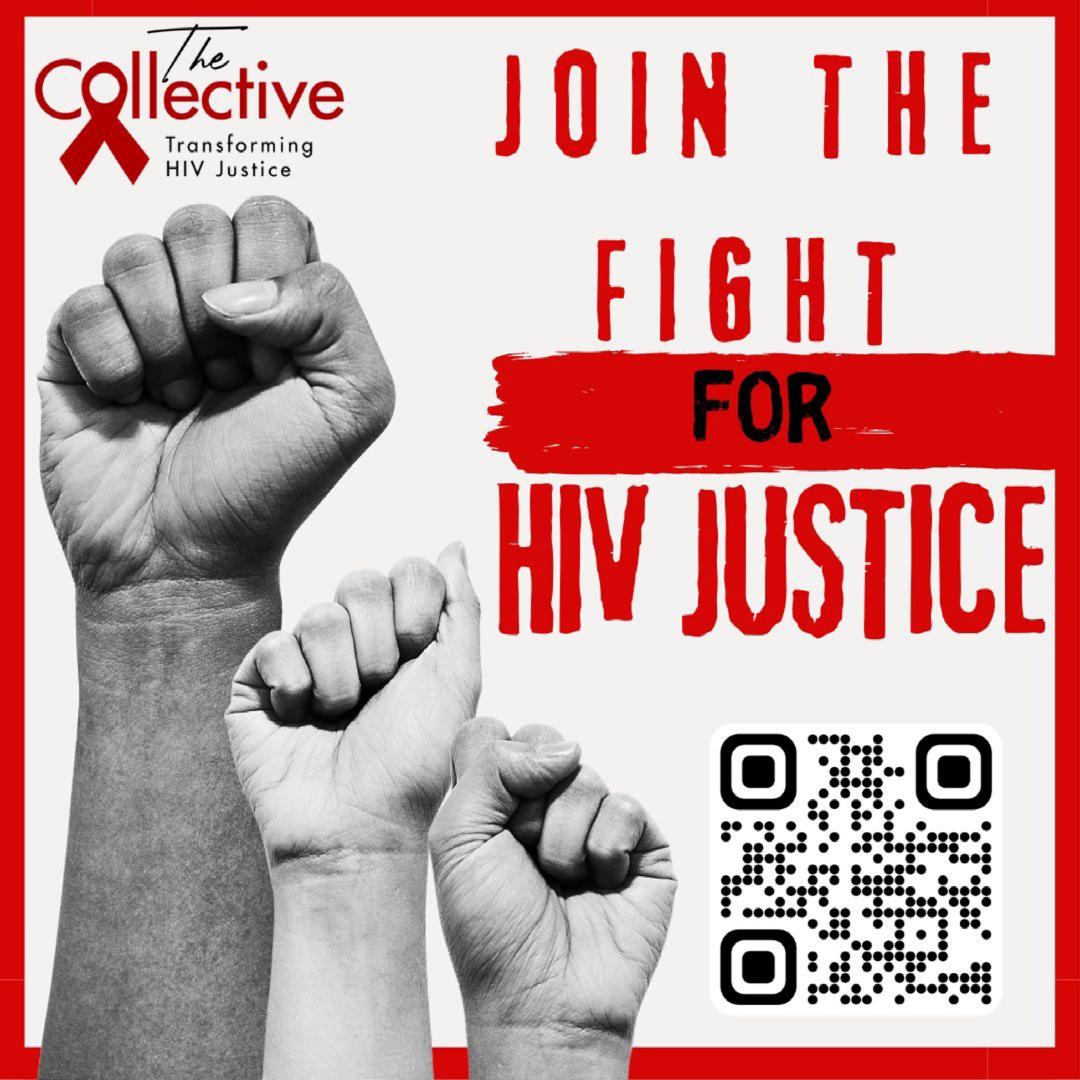


PrEP can be about 99% effective in preventing HIV?*


PrEP (pre-exposure prophylaxis) is a prescription medicine that’s taken as part of a routine before you’re exposed to HIV to help reduce your chances of getting it. Remember that PrEP doesn’t protect against other STIs, so be sure to use condoms and other healthy sex practices. Your healthcare provider can help you determine whether PrEP is the best option for your situation.
*When taken as prescribed.
Scan the code to learn more about PrEP or visit Healthysexuals.com